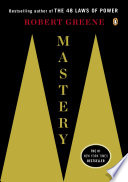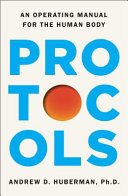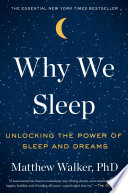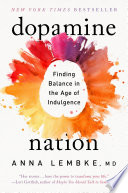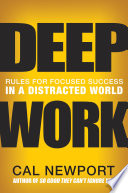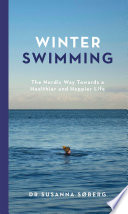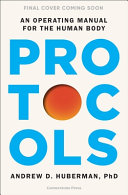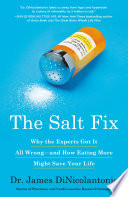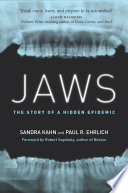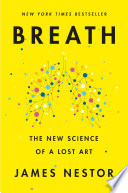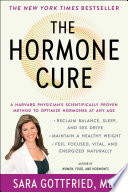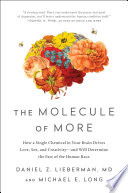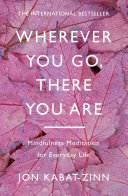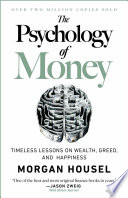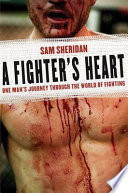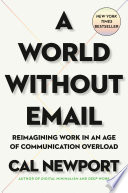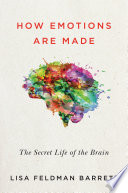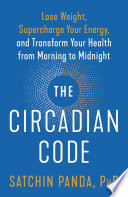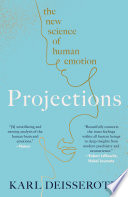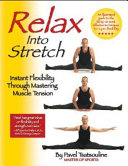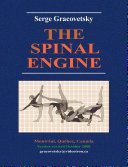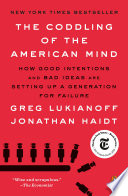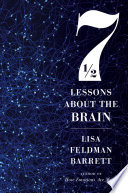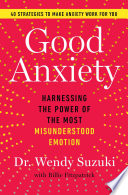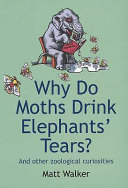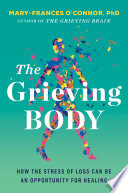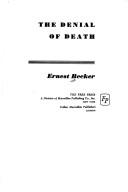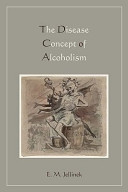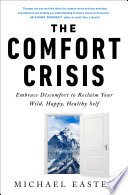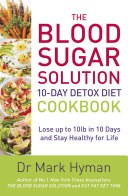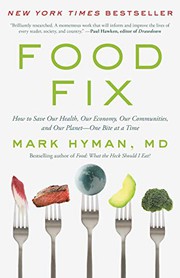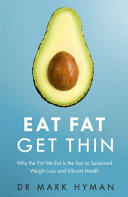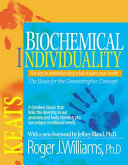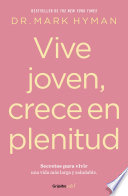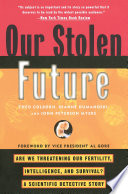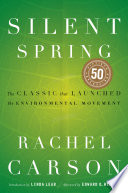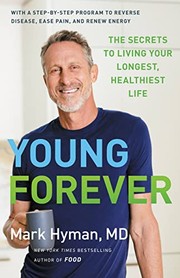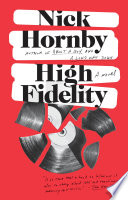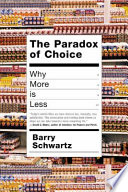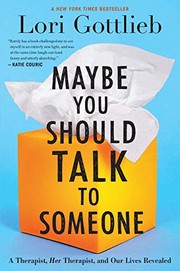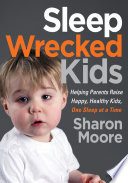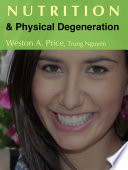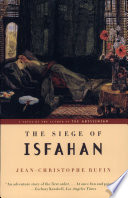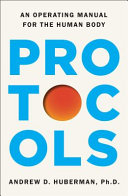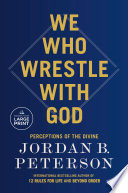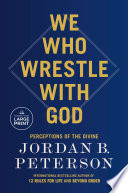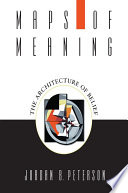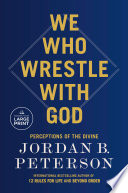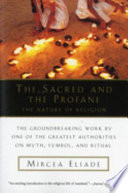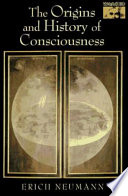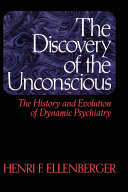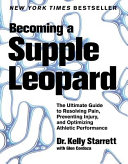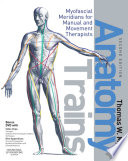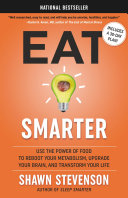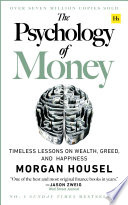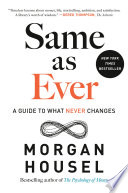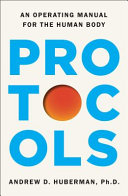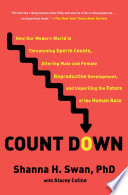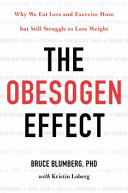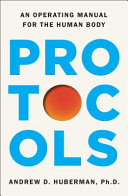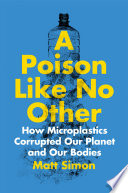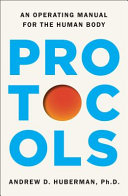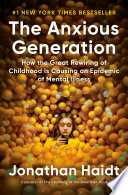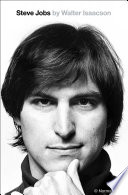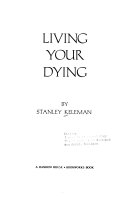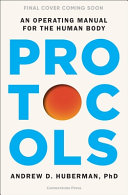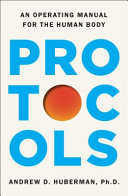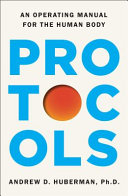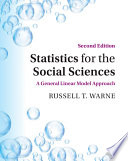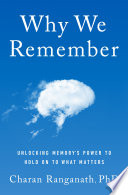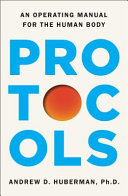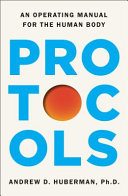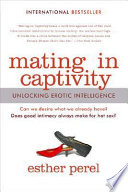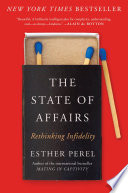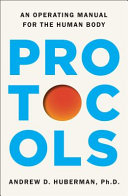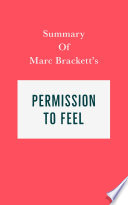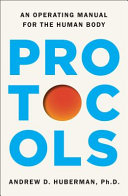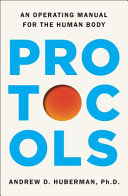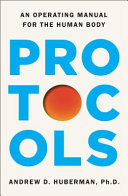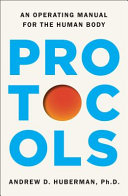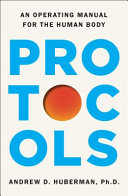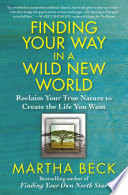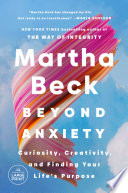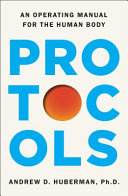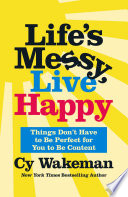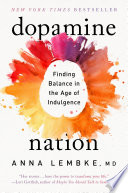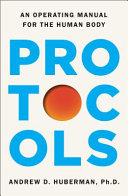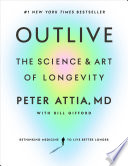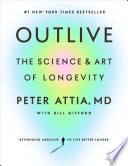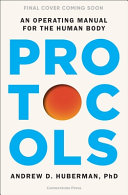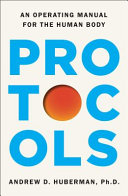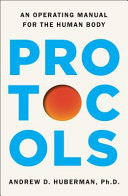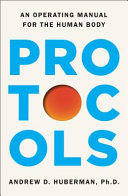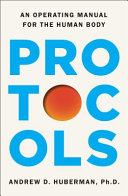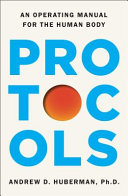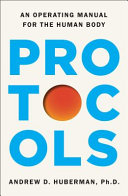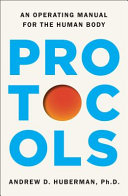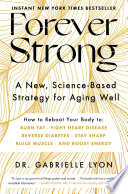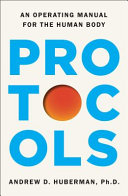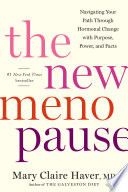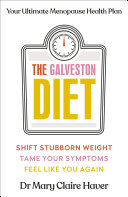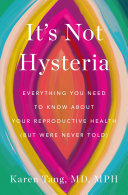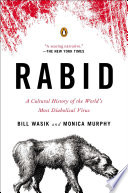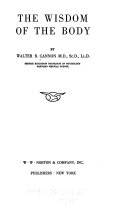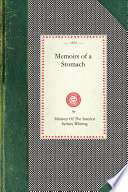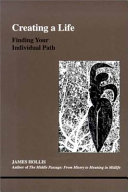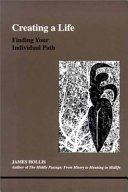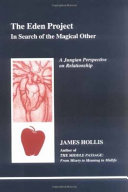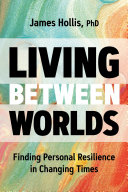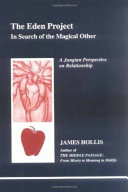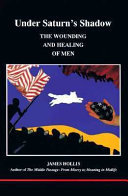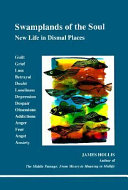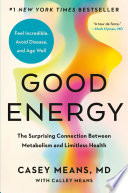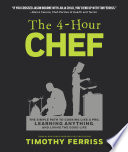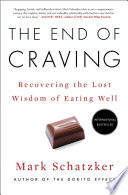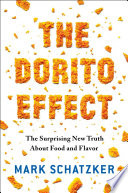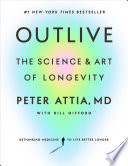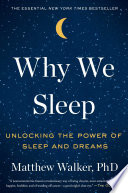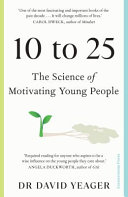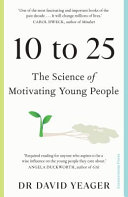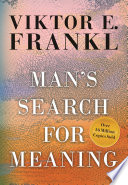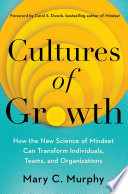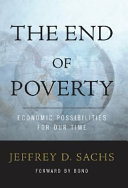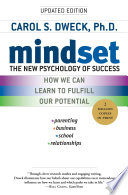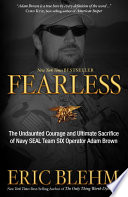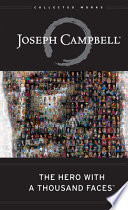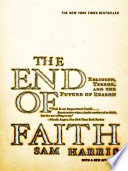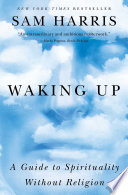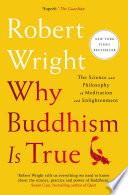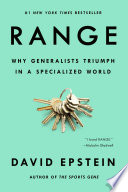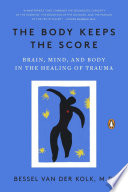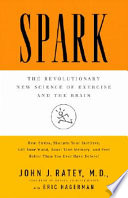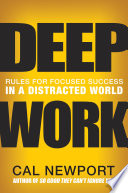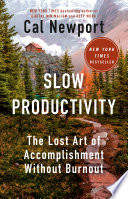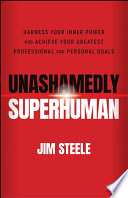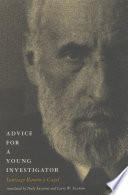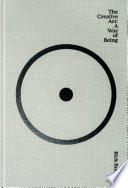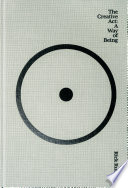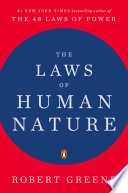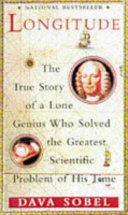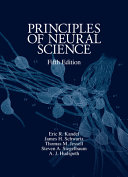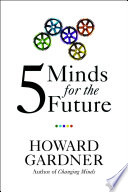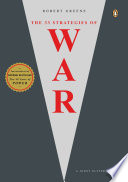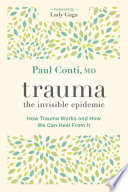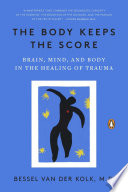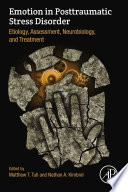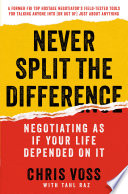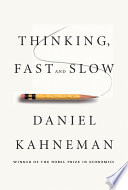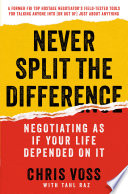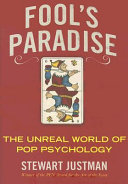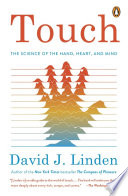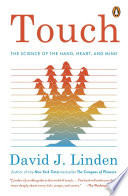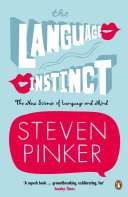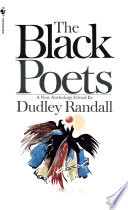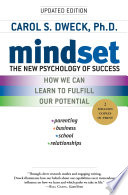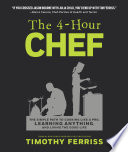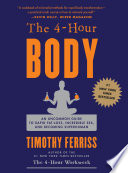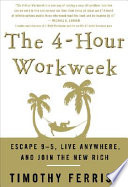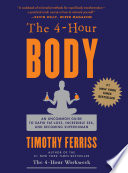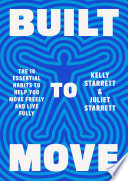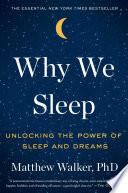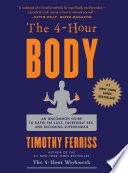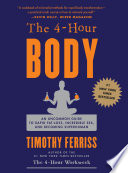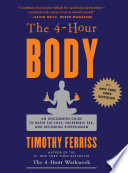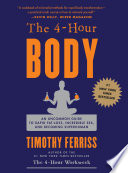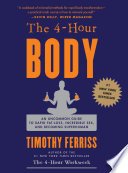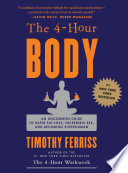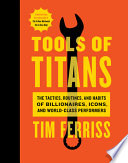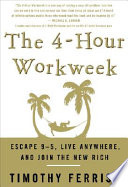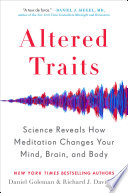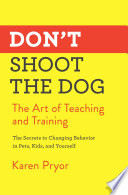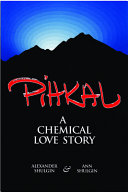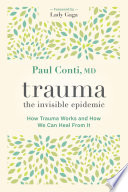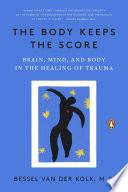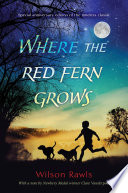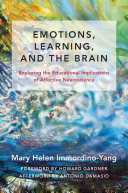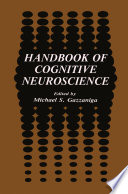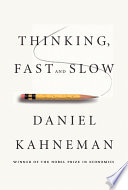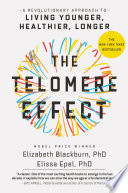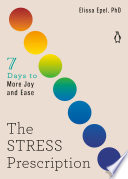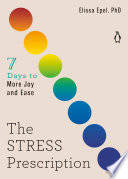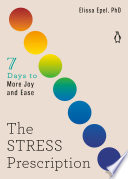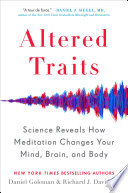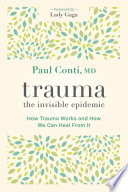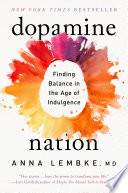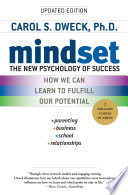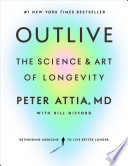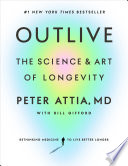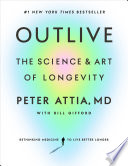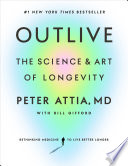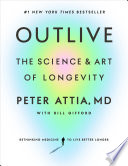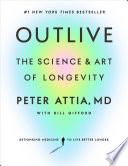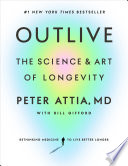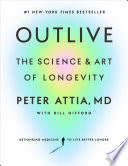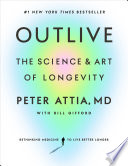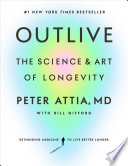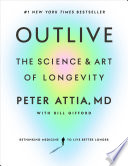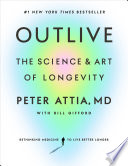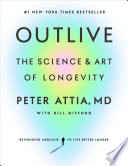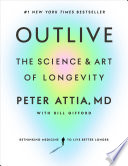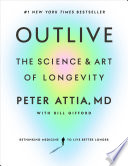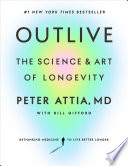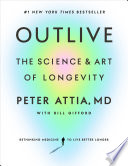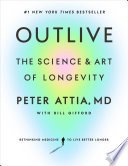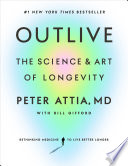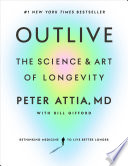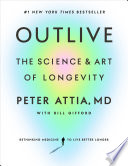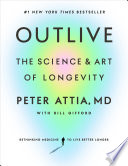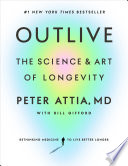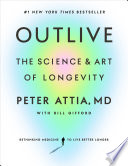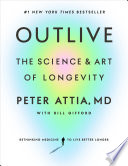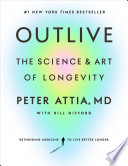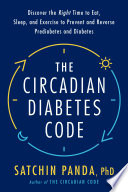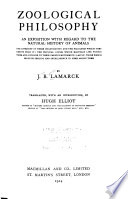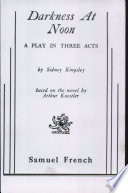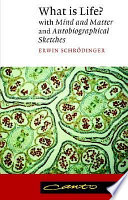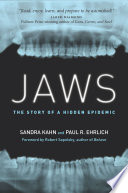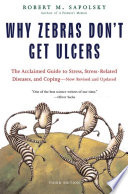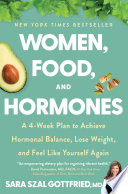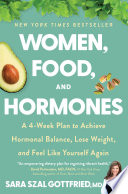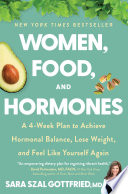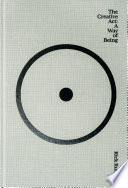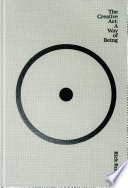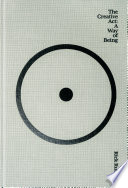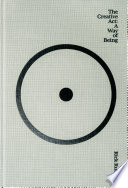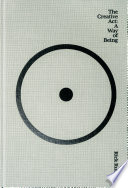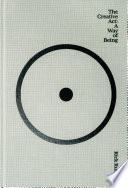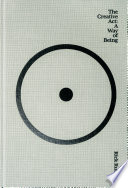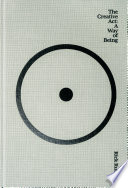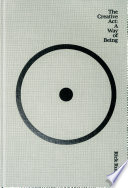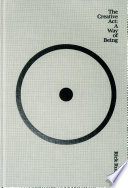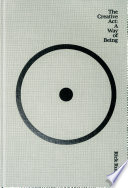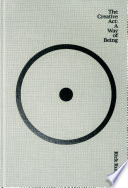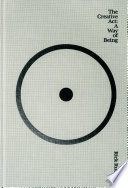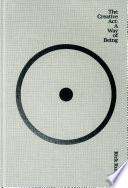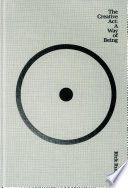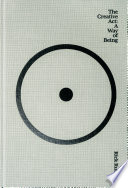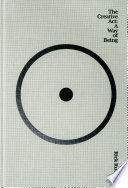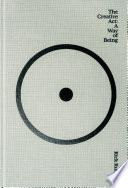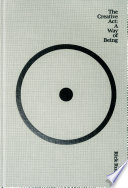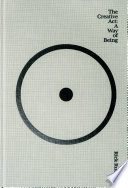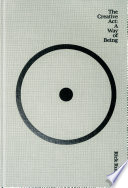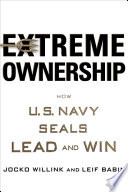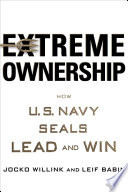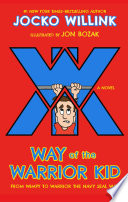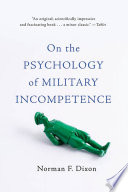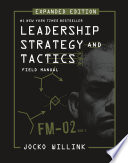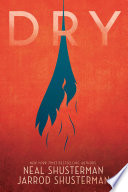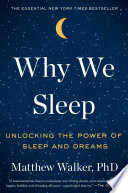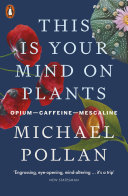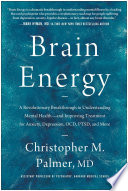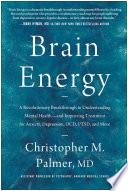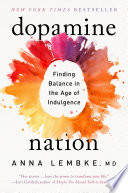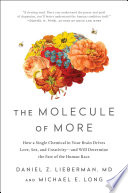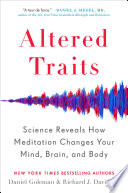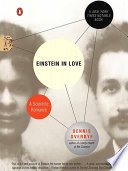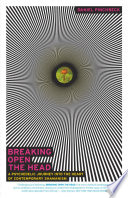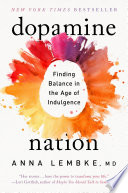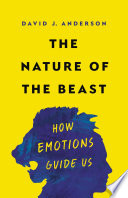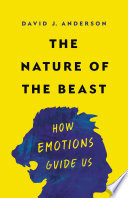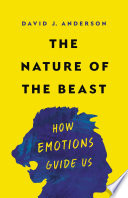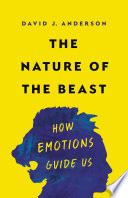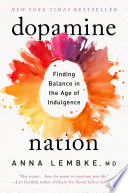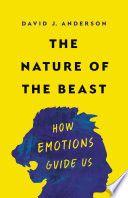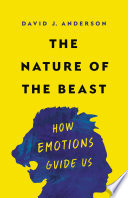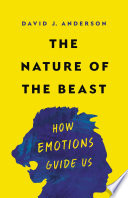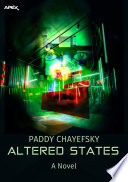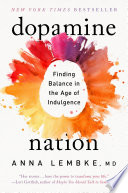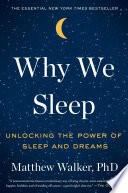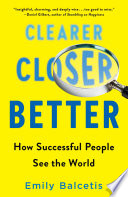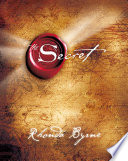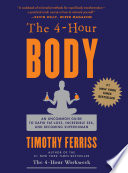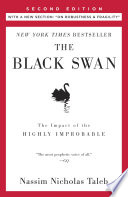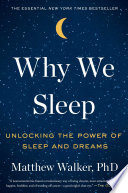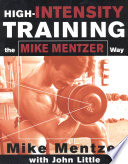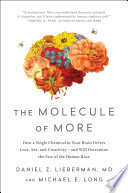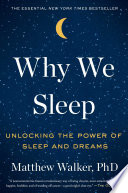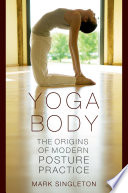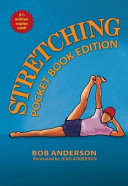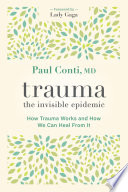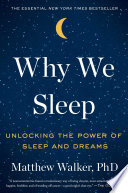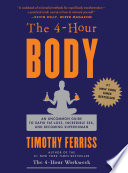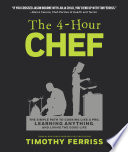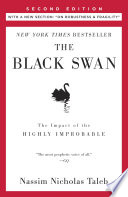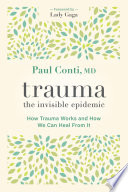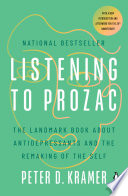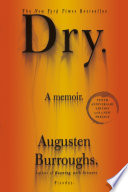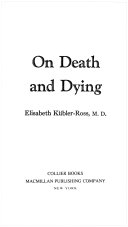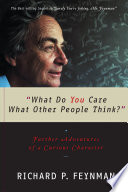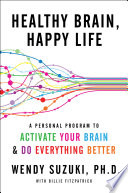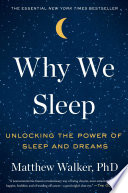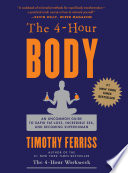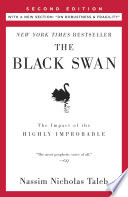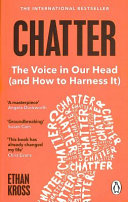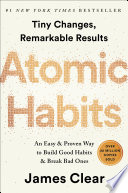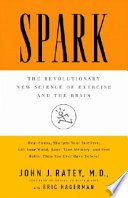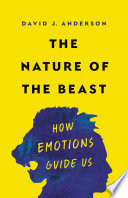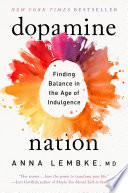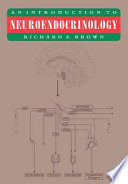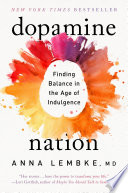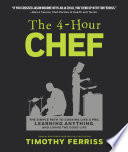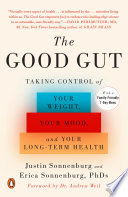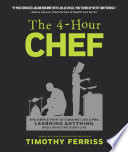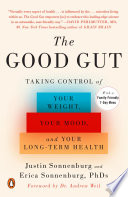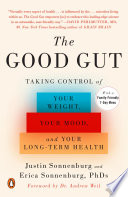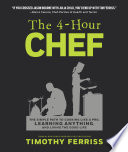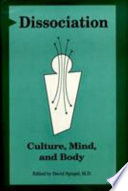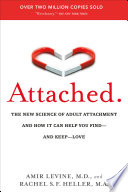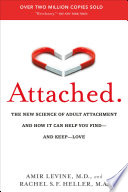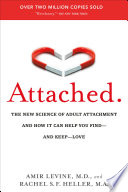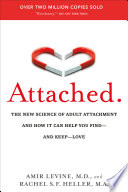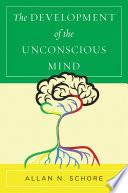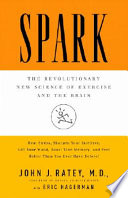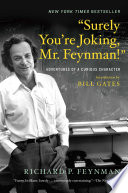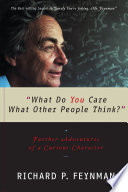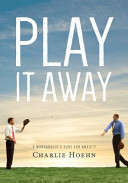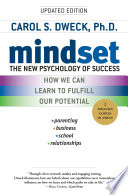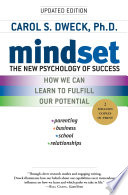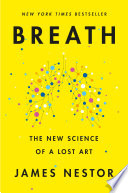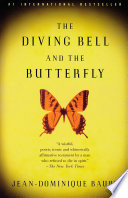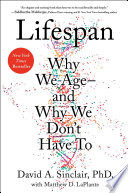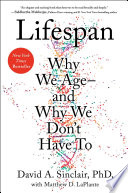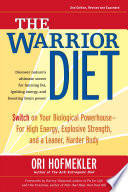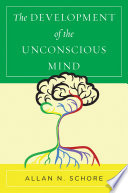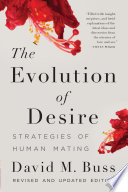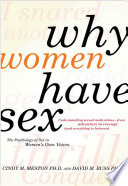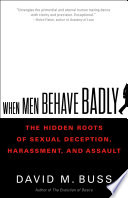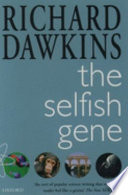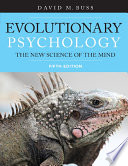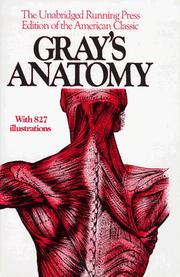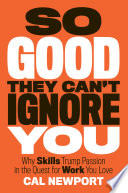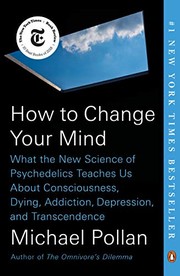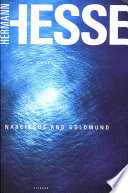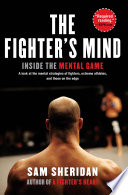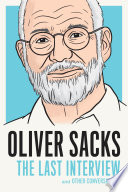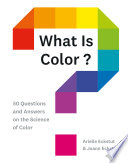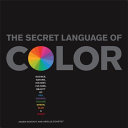Podcast: Huberman Lab
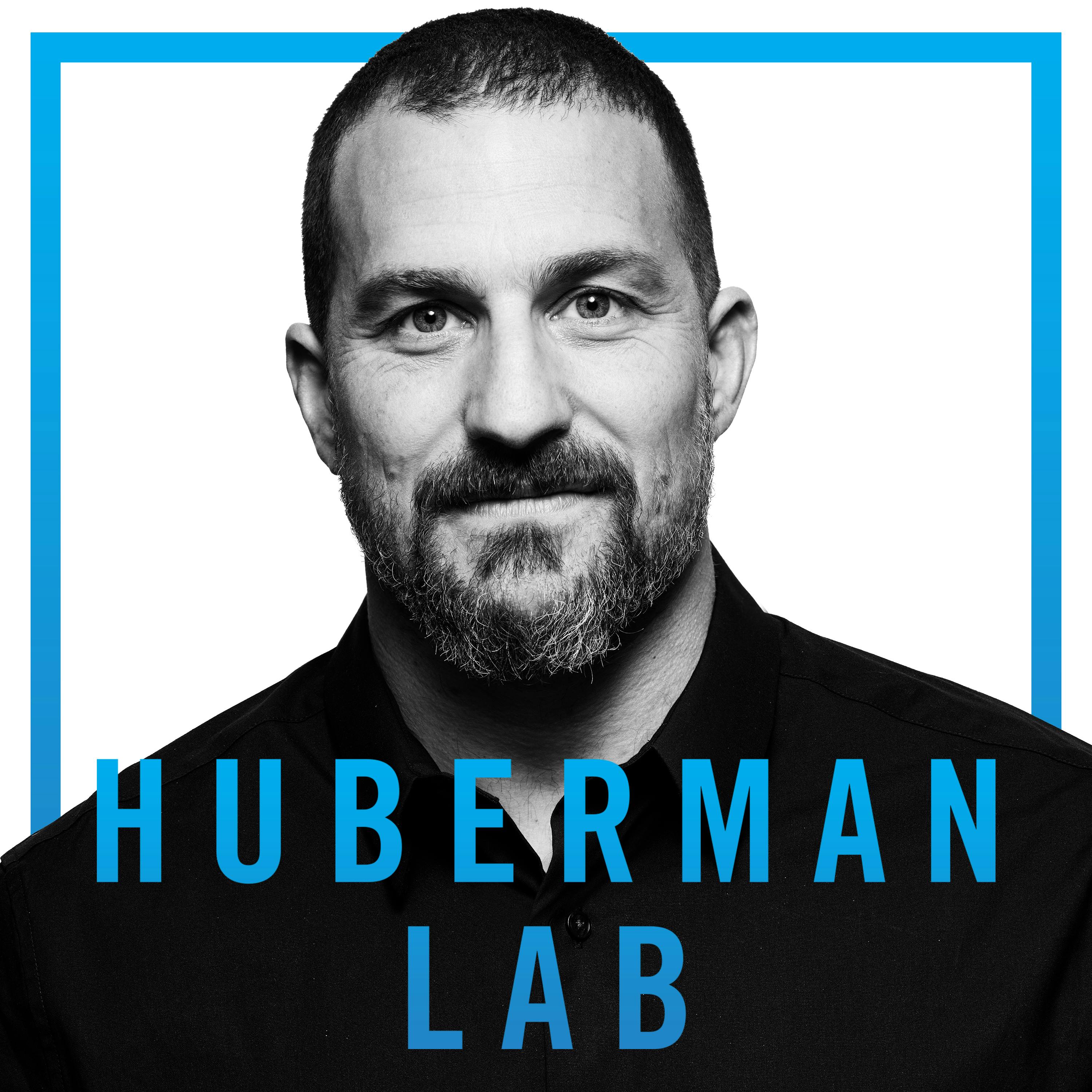
The Huberman Lab podcast is hosted by Andrew Huberman, Ph.D., a neuroscientist and tenured professor in the department of neurobiology, and by courtesy, psychiatry and behavioral sciences at Stanford School of Medicine. The podcast discusses neuroscience and science-based tools, including how our brain and its connections with the organs of our body control our perceptions, our behaviors, and our health, as well as existing and emerging tools for measuring and changing how our nervous system works.Huberman has made numerous significant contributions to the fields of brain development, brain function, and neural plasticity, which is the ability of our...
363 episodes processed, 344 books extracted
Podcast Playlist: View on YouTube
Books Mentioned Most Often
Mastery
Buy Mastery by Robert Greene on Amazon
Mentioned 8 times
Robert Greene is an author who has written more than five bestselling books, including The 48 Laws of Power, The Laws of Human Nature, and Mastery.
In this segment, Andrew Huberman introduces Robert Greene, highlighting him as a successful author. He specifically mentions Greene's bestselling book 'Mastery', which leads into a broader discussion about Greene's influential body of work.
I first learned about Robert's work from reading the book Mastery, which to my mind is a brilliant exploration and a practical tool for how to think about and pursue one's purpose.
Andrew Huberman shares that he first learned about Robert Greene's insights through his book 'Mastery.' He highlights it as a valuable resource for understanding and pursuing one's purpose.
Whenever I'm asked for book suggestions, I always include Mastery in my top three recommendations.
Andrew Huberman often recommends 'Mastery' by Robert Greene as one of his top three book suggestions.
And your book, 'Mastery.'
Andrew Huberman explicitly mentions Robert Greene's book 'Mastery' while discussing books he recommended to his students.
The reason I recommended 'Mastery' is because these students were soon going to enter the great jungle of post-undergraduate education.
Andrew Huberman shares his reasoning for recommending 'Mastery' to his students, highlighting its relevance as they prepare for the challenges of post-undergraduate education.
For me, I found 'Mastery' to be an absolutely transformative book in that it taught me so much about how to learn from others and how to expect certain types of interactions when one kind of assigns themselves to a mentor and vice versa.
In this segment, Andrew Huberman reflects on the book 'Mastery,' describing it as transformative. He emphasizes its insights on learning from others and the dynamics of mentorship.
I usually end with a great debt of gratitude, and I'll probably do that again at the end, but I want to start with a great debt of gratitude; 'Mastery' transformed my entire life, and in many ways this podcast probably wouldn't exist were it not for 'Mastery.'
Andrew Huberman expresses deep gratitude for the book 'Mastery,' stating that it significantly transformed his life and suggesting that the podcast may not have been created without its influence.
Actually, the first time I heard about it was from Robert Greene, who wrote the book Mastery and some important writings; what was it? I think it was the— I forget how many laws of power, but those books, Robert Greene's Mastery is actually a book that I highly recommend people read because it talks about mentorship and finding mentors and the fact that we're supposed to break up and move on from mentors, and that mentors aren't always people that we know or that know us, etc. Amazing book, really.
Andrew Huberman highly recommends the book 'Mastery' by Robert Greene, explaining its insights on mentorship and the importance of evolving relationships with mentors.
Protocols
Buy Protocols by Andrew D. Huberman on Amazon
Mentioned 7 times
For those of you that haven't heard, I have a new book coming out. It's my very first book. It's entitled Protocols: An Operating Manual for the Human Body.
Andrew Huberman announces his upcoming first book, 'Protocols: An Operating Manual for the Human Body', and describes its content.
For those of you that haven't heard, I have a new book coming out. It's my very first book. It's entitled Protocols: An Operating Manual for the Human Body.
The host announces his new book, its title, and describes its content.
For those of you that haven't heard, I have a new book coming out. It's my very first book. It's entitled Protocols, an operating manual for the human body.
The host announces his upcoming first book and states its title.
It's my very first book. It's entitled Protocols: An Operating Manual for the Human Body.
Andrew Huberman announces his upcoming first book.
For those of you that haven't heard, I have a new book coming out. It's my very first book. It's entitled Protocols, an operating manual for the human body.
Andrew Huberman announces his upcoming first book and provides the title.
it's entitled protocols an operating manual for the human body
The host announces his upcoming book, Protocols: An Operating Manual for the Human Body, describing its content and availability for pre-sale.
For those of you that haven't heard, I have a new book coming out; it's my very first book; it's entitled 'Protocols: An Operating Manual for the Human Body.'
In the podcast outro, Andrew Huberman shares exciting news about his upcoming book, 'Protocols: An Operating Manual for the Human Body,' highlighting it as his very first book and mentioning that it is available for presale.
Why We Sleep
Buy Why We Sleep by Matthew Walker on Amazon
Mentioned 6 times
This is based on some work that I will provide a reference for, which was published in the journal Science. Matt Walker also discusses studies done by others in his book Why We Sleep.
In this segment, Andrew Huberman references the book 'Why We Sleep' by Matt Walker, highlighting its discussion on various studies related to sleep and learning.
I’m aware, and we can delve deeper into this, that there is evidence—from Matt Walker's six-episode series on sleep—that THC helps some individuals fall asleep but may significantly disrupt sleep architecture in undesirable ways.
The mention highlights the insights from Matt Walker's work on sleep, particularly in relation to THC's effects. It discusses how Walker's series provides evidence on how THC might assist in falling asleep yet poses risks to the overall quality of sleep architecture.
He is also the author of the bestselling book 'Why We Sleep.'
Andrew Huberman introduces Dr. Matthew Walker as the guest on the podcast, highlighting his authorship of the bestselling book 'Why We Sleep.'
And I'm going to interrupt intentionally, not to puff you up, just because I think it's fair to say, I know, it's fair to say that the cautionary notes you spoke about in those early TED talks and in your book, 'Why We Sleep,' while they may have stimulated some anxiety for some people, they absolutely had and have a net positive effect in the sense that they cued people to the importance of this thing called sleep.
Andrew Huberman recognizes the significant influence of Matthew Walker's book, 'Why We Sleep', in emphasizing the critical importance of sleep and its positive effect on public awareness.
And I don't mean to be overly negative, but this was discussed in a previous Huberman Lab Podcast episode with Dr. Matthew Walker from UC Berkeley. Walker is a leading expert on sleep and has authored the remarkable book, 'Why We Sleep.'
In this segment, Andrew Huberman references 'Why We Sleep' by Matthew Walker, emphasizing the significance of the book in the context of discussing the effects of alcohol on sleep quality. He describes Walker's work as a 'remarkable' resource that lends credibility to the conversation about the interplay between alcohol consumption and sleep.
Dr. Walker is also the author of the international best selling book "Why We Sleep".
Andrew Huberman introduces Dr. Matt Walker and mentions he is the author of the international best-selling book "Why We Sleep".
Dopamine Nation
Buy Dopamine Nation by Dr. Anna Lembke on Amazon
Mentioned 6 times
Regarding Huberman Lab resources, if you search for addiction on hubermanlab.com, you’ll find specific timestamps, primarily from an episode with Dr. Anna Lembke, the director of the Dual Diagnosis Addiction Clinic at Stanford, who wrote Dopamine Nation and skillfully describes the underlying biological mechanisms related to dopamine and addiction treatment. You can overcome addiction; people achieve sobriety.
Andrew Huberman discusses addiction resources available on the Huberman Lab website. He references an episode featuring Dr. Anna Lembke, the author of 'Dopamine Nation', who explains the biological mechanisms related to dopamine and the treatment of addiction.
It’s noteworthy that cold showers can elevate dopamine levels, a concept discussed in Dr. Anna Lembke's book, "Dopamine Nation."
In this segment, the host references 'Dopamine Nation' by Dr. Anna Lembke while discussing how cold showers can increase dopamine levels. The book serves as a key reference to help explain the relationship between temperature and dopamine.
One previous guest on the Huberman Lab Podcast, Dr. Anna Lembke, our director at the Dual Diagnosis Addiction Clinic at Stanford, authored the book 'Dopamine Nation,' discussing dopamine's uses and dangers in addiction. She illustrates the case of a patient who used deliberate cold exposure to maintain dopamine levels while withdrawing from drugs that were heavily increasing his dopamine, leading him toward addiction.
Dr. Anna Lembke, a previous guest on the Huberman Lab Podcast, is mentioned as the author of the book 'Dopamine Nation.' This book discusses the complex role of dopamine in addiction and highlights how techniques like deliberate cold exposure can help manage dopamine levels during drug withdrawal.
There, I'm paraphrasing what Dr. Anna Lembke has said and has written about in her beautiful book, 'Dopamine Nation.' If you haven't read that book, I highly recommend it.
In this segment, Andrew Huberman discusses Dr. Anna Lembke's book 'Dopamine Nation,' recommending it as a valuable resource for understanding the dynamics of motivated behaviors and dopamine pathways, particularly in the context of the pleasure-pain balance in the brain.
Has this amazing book, "Dopamine Nation: Finding Balance in the Age of Indulgence".
The host mentions Dr. Anna Lembke and her book about dopamine and addiction.
I'm excited to tell you that she has a new book coming out called "Dopamine Nation, Finding Balance in the Age of Indulgence". The book comes out August 24th and is an absolutely fascinating read into addiction and ways to treat various types of addiction.
The host announces the guest's new book, its title, release date, and subject matter.
Deep Work
Buy Deep Work by Cal Newport on Amazon
Mentioned 6 times
I'm a huge fan. I've been a huge fan ever since I read "Deep Work."
Andrew Huberman expresses his admiration for Cal Newport, stating that he's been a fan since reading his book 'Deep Work,' while speaking directly to Newport during the podcast.
So I call this productive meditation in "Deep Work."
In this segment, Cal Newport discusses his book 'Deep Work' and explains how its concepts about focus influence his thoughts on productivity.
We have a future guest on this podcast named Cal Newport; he wrote the book Deep Work, and he has another book called The World Without Email. He's a computer science professor at Georgetown where he talks extensively about the tremendous career, but also relationship and life value of doing essentially what you're describing.
In this segment, Andrew Huberman highlights Cal Newport's book 'Deep Work' as he discusses the importance of minimizing distractions to focus on meaningful tasks. This conversation occurs during a discussion on time management and reducing the impact of email and social media.
I'm a big fan of Cal Newport's work, Deep Work.
In this segment, Andrew Huberman expresses his admiration for Cal Newport's book 'Deep Work,' highlighting its significance in the discourse about managing distractions effectively.
I'm a big fan of Cal Newport who wrote the book "Deep work." He's also written an excellent book, "A world without Email."
Andrew Huberman mentions being a fan of Cal Newport and his book "Deep work" in the context of avoiding constant context switching from smartphone use.
But he's gone on to write books, "Deep Work", which is all about removing yourself from technology and doing deep work.
The host mentions Cal Newport's subsequent book and its theme of removing technology for deep work.
Winter Swimming
Buy Winter Swimming by Susanna Søberg on Amazon
Mentioned 6 times
In fact, she is the author of a recent book entitled 'Winter Swimming,' which I must say is a terrific book because it breaks down chapter by chapter the different aspects of deliberate heat and cold into its various constituent parts, including cold acclimation, the cold shock response, the dangers and safety of cold water, the impact of cold, and the impact of heat on various aspects of human health, as well as specifics relating to sauna versus ice versus cold swimming showers, etc.
The podcast host, Andrew Huberman, highlights 'Winter Swimming,' a book authored by Susanna Søberg. He describes it as an excellent resource that thoroughly examines the effects of heat and cold exposure. Huberman emphasizes that the book is an easy and accessible read, providing insightful information on cold acclimation and other related topics.
By doing this, I also measured the temperature every time they went in, resulting in a graph shown in the winter swimming book.
In this segment, Susanna Søberg briefly refers to her book 'Winter Swimming', mentioning that a graph illustrating the temperature measurements is included in the book.
Although in your book, you dedicated some pages to naked winter swimming, or I should say naked cold water exposure as opposed to wearing a bathing suit.
In this segment, Andrew Huberman discusses the book 'Winter Swimming' by Dr. Susanna Søberg, highlighting the topic of naked cold water exposure that the author covers in detail.
I included it in my book because people want to know if they have to swim with their bathing suit on or if they can take it off; what's the difference?
In this segment, Susanna Søberg explains why she includes a note about swimming attire in her book 'Winter Swimming', addressing common questions about whether one should swim with or without a bathing suit.
Thank you for your significant public education efforts on social media and through your book.
Andrew Huberman expresses gratitude to Susanna Søberg for her contributions to public education, highlighting her work on social media and her book, 'Winter Swimming'.
You will also find a link to Dr. Søberg's excellent book, Winter Swimming.
In this segment, Andrew Huberman highlights that listeners can find a link to Dr. Susanna Søberg's notable book 'Winter Swimming' in the show notes.
Protocols
Buy Protocols by Andrew Huberman on Amazon
Mentioned 5 times
For those of you that haven't heard, I have a new book coming out. It's my very first book. It's entitled Protocols: An Operating Manual for the Human Body. This is a book that I've been working on for more than 5 years, and that's based on more than 30 years of research and experience.
Andrew Huberman announces his upcoming first book, stating its title and describing its content.
It's my very first book. It's entitled Protocols, an operating manual for the human body.
Andrew Huberman announces his first book and states its title.
it's entitled protocols an operating manual for the human body This is a book that I've been working on for more than 5 years
Andrew Huberman announces his upcoming first book and its title.
Again the book is called protocols an operating manual for the human body if you're not already following me on social media I am huberman lab on all social media platforms so that's Instagram X formerly known as Twitter Facebook LinkedIn and thread
Andrew Huberman repeats the title of his upcoming book.
For those of you that haven't heard, I have a new book coming out; it's my very first book. It's entitled 'Protocols: An Operating Manual for the Human Body.'
In this segment, podcast host Andrew Huberman shares exciting news about the launch of his first book, titled 'Protocols: An Operating Manual for the Human Body.'
The Salt Fix
Buy The Salt Fix by Dr. James DiNicolantonio on Amazon
Mentioned 5 times
The resource is a book authored by Dr. James DiNicolantonio, who is a scientist in cardiovascular physiology and a doctor of pharmacy. The title of the book is "The Salt Fix."
The podcast host, Andrew Huberman, introduces a book by Dr. James DiNicolantonio titled 'The Salt Fix'. This resource discusses the history of salt, its impact on health, and questions the accuracy of current salt intake recommendations.
That's when things really do seem to get hazardous, and it makes sense to avoid very high salt intake, so "The Salt Fix" describes the rationale behind those recommendations.
In this segment, Andrew Huberman mentions 'The Salt Fix' again, highlighting how the book explains the reasoning behind recommendations for salt intake.
"The Salt Fix" also describes, in detailed terms, the relationship between salt intake, potassium intake, and the relationship to sugar consumption.
In this segment, Andrew Huberman discusses 'The Salt Fix,' emphasizing its detailed exploration of how salt intake relates to potassium and sugar consumption.
Several reviews and studies, including those discussed in "The Salt Fix," indicate that when people increase their sodium intake against a backdrop of minimally processed foods, their cravings for sugar can indeed be significantly diminished, which syncs with how the neural pathways for salty and sweet interact.
Andrew Huberman refers to the research in "The Salt Fix" once again, explaining that the reviews and studies discussed describe the relationship between minimally processed foods and decreased cravings for sugar when increasing sodium intake.
I mentioned 'The Salt Fix,' which I believe is an interesting read, noting that much of the information runs counter to conventional narratives about salt.
Andrew Huberman brings up "The Salt Fix" again, praising the book for its insights that often contradict the common beliefs about salt.
Jaws
Buy Jaws by Sandra Kahn, Paul R. Ehrlich on Amazon
Mentioned 4 times
and then of course the book Jaws which was published by Paul erck and Sandra Khan my amazing colleagues at Stanford years ago
The host mentions the book Jaws by Paul Erlich and Sandra Khan in the context of nasal breathing and facial development, noting that it was initially dismissed as pseudoscience.
I'm a big fan of a book called 'Jaws: A Hidden Epidemic' written by colleagues of mine at Stanford; are you familiar with it?
During a discussion about the benefits of nasal breathing, Andrew Huberman mentions the book 'Jaws: A Hidden Epidemic,' highlighting that it is authored by his colleagues at Stanford, though he does not provide their names.
There's also the book "Jaws" by my colleagues, Paul Ehrlich and Sandra Kahn, with a foreword by Jared Diamond and an introduction by Robert Sapolsky from Stanford. So, that's a book chockablock with heavy hitter authors that describes how being a nasal breather is beneficial for jaw structure, for immune system function, et cetera
The host mentions this book by his colleagues, highlighting its focus on nasal breathing benefits for jaw structure and immune function.
As well as "Jaws" which is from Sandra Kahn, Paul Ehrlich with a foreword by Jared Diamond and Robert Sapolsky. So, a collection of people from Stanford. Jared Diamond is not at Stanford, but the rest are. And some heavy hitters on that book, which is about the benefits of nasal breathing.
Andrew Huberman mentions the book 'Jaws' by Sandra Kahn and Paul Ehrlich, noting its focus on the benefits of nasal breathing.
Breath
Buy Breath by James Nestor on Amazon
Mentioned 4 times
If parents are out there there's two books three I'd recommend if you're very interested in this since it impacts so many people Certainly Breath by James Nester
Dr. Whitman recommends the book Breath by James Nestor as a resource for parents interested in airway health issues.
James Nestor's book, 'Breath: The New Science of a Lost Art,' touches on this, alongside various podcasts, including those discussed here.
The host references James Nestor's book, 'Breath: The New Science of a Lost Art,' explaining its focus on the significance of nasal breathing and how it impacts sleep, suggesting that the book explores this topic in greater detail.
There are excellent books and data on this, there's the recent book "Breath" by James Nestor, which is an excellent book that describes some of the positive effects of nasal breathing as well as other breathing practices.
The host mentions this book as an excellent resource on nasal breathing and other breathing practices.
A note about nasal versus mouth breathing, there's a plethora of information out there now because of James Nestor's book, "Breath: The New Science of a Lost Art," which came out this last year. Excellent book.
Andrew Huberman mentions James Nestor's book 'Breath' as a source of information on nasal breathing.
The Hormone Cure
Buy The Hormone Cure by Sara Gottfried on Amazon
Mentioned 4 times
The two books I'd like to highlight, for which we have provided links in the show notes, are 'Women, Food, and Hormones' and 'The Hormone Cure.'
In this segment, Andrew Huberman highlights 'The Hormone Cure' by Dr. Sara Gottfried as one of two important books, noting that links to the book are available in the show notes. This mention is part of the introduction for Dr. Sara Gottfried in the episode centered on optimizing female hormone health.
I read 'The Hormone Cure' and found it to be tremendously interesting and informative.
In this episode, Andrew Huberman shares his insights on 'The Hormone Cure' by Dr. Sara Gottfried, describing it as tremendously interesting and informative. This mention occurs during the introduction of Dr. Gottfried, who discusses optimizing female hormone health.
I highly recommend 'The Hormone Cure' for anyone interested in hormones and hormone health, and 'Women, Food, and Hormones' in particular for women.
In the episode, Andrew Huberman recommends 'The Hormone Cure' by Dr. Sara Gottfried to anyone interested in hormones and hormone health, highlighting it as a valuable resource for women.
We've linked two of them, notably 'Women, Food, and Hormones' and her book 'The Hormone Cure,' in the show notes.
In this segment, Andrew Huberman brings attention to the book 'The Hormone Cure' authored by Dr. Sara Gottfried, directing listeners to find further details in the show notes. This mention occurs during the conclusion of the episode featuring Dr. Sara Gottfried, focusing on optimizing female hormone health.
The Molecule of More
Buy The Molecule of More by Daniel Z. Lieberman, Michael E. Long on Amazon
Mentioned 3 times
so we're going to talk about all all of those in the book The molecule of more wonderful book uh those were described as the Here and Now molecules the ones that allow you to experience your Sensations and pleasure in the present and for which the brain stops projecting into the future
Andrew Huberman mentions this book and describes its content regarding 'Here and Now molecules' like serotonin and endocannabinoids.
Certainly, I would suggest neurochemicals like dopamine related to craving and desire, as seen in literature; there’s even a book called The Molecule of More, for example. Dopamine is a complex molecule and can elicit feelings of pleasure alongside a powerful craving for more—this interaction is well-recognized, and it’s understandable how sugar can create an overwhelming desire for even more.
Dr. Charles Zuker references the book 'The Molecule of More' to illustrate the role of dopamine, a neurochemical associated with craving and desire. He explains how dopamine functions as a complex molecule that can evoke both pleasure and a strong craving for more, particularly in the context of sugar consumption, which often leads individuals to desire even greater quantities.
The other terrific book about dopamine is the "Molecule of More", which is a similar in some regard, but isn't so much about addiction, it's more about other types of behaviors.
The host mentions another book about dopamine, comparing it to the previous one.
Wherever You Go, There You Are
Buy Wherever You Go, There You Are by Jon Kabat-Zinn on Amazon
Mentioned 3 times
they're kind of like a push pull and if you were to say do the um you know in the book wherever you go there you are John katzin talks about this meditation practice that's different than most meditation prct ractic is where you eat one almond and you focus all of your attention on the Almond
Andrew Huberman mentions this book and attributes a specific mindfulness practice (eating one almond) to its author, John katzin (likely Jon Kabat-Zinn).
But in addition to that book, what are some other books you recommend to stimulate thought or for health purposes—things you've found particularly beneficial in book form? My favorite book about meditation is called 'Wherever You Go, There You Are.'
In the discussion, Rick Rubin shares his favorite book about meditation, titled 'Wherever You Go, There You Are,' highlighting its impact on his perspective toward mindfulness and health.
I was first introduced to meditation through a book during high school, as I was a bit of a rebel in my early years and, as part of a program, received a book on the subject. The book is titled 'Wherever You Go, There You Are' by Jon Kabat-Zinn. He was one of the first individuals to popularize meditation and mindfulness practices in the United States during the late 1980s.
In a discussion about his early exposure to meditation, Andrew Huberman mentions the book 'Wherever You Go, There You Are' by Jon Kabat-Zinn. He reveals that this book was integral to his introduction to meditation during high school. Additionally, he highlights Jon Kabat-Zinn's role in popularizing meditation and mindfulness practices in the United States since the late 1980s.
The Psychology of Money
Buy The Psychology of Money by Morgan Housel on Amazon
Mentioned 3 times
He is also the author of the spectacularly bestselling book, The Psychology of Money.
In this episode, Andrew Huberman introduces Morgan Housel and highlights his bestselling book, The Psychology of Money, discussing its insights into the psychology surrounding financial decisions.
I read Morgan's book, The Psychology of Money, and I loved it.
In this episode, Andrew Huberman expresses his appreciation for Morgan Housel's book, The Psychology of Money, which he read and enjoyed.
To learn more about Morgan's work and to find links to his two superb books, The Psychology of Money and Same as Ever, please see the links in the show note captions.
In this segment, Andrew Huberman highlights Morgan Housel's book, The Psychology of Money, along with his other book, Same as Ever. Both titles are recommended, and listeners are encouraged to check the show notes for links to learn more.
A Fighter's Heart
Buy A Fighter's Heart by Sam Sheridan on Amazon
Mentioned 3 times
I think there are two phrases that come to mind; there's a book called 'A Fighter's Heart' by Sam Sheridan, and it's a pretty interesting account of all the different forms of martial arts and fighting. There's an interesting part of the book where he says, 'You can't have your 20th birthday until you're 19,' which is a big giant duh; but it's actually a pretty profound statement.
Andrew Huberman mentions the book 'A Fighter's Heart' by Sam Sheridan, describing it as an intriguing account of martial arts and fighting. He highlights a particular statement from the book that emphasizes the importance of recognizing we can't skip steps in life.
I think it was Sam Sheridan who wrote 'A Fighter's Heart,' an excellent book, and for anyone, male or female, age—who's interested in the human spirit, I recommend 'A Fighter's Heart' because it's about the different fight sports, but it's really about the path of self-discovery that occurs in various martial arts.
In this segment, podcast host Andrew Huberman talks about 'A Fighter's Heart' by Sam Sheridan. He highly recommends the book to anyone interested in exploring the human spirit or martial arts, emphasizing its focus on self-discovery through various fight sports.
years ago, I read a book that I really enjoyed, which is Sam Sheridan's book, 'A Fighter's Heart,' he talks about all these different forms of martial arts.
Andrew Huberman mentions reading this book by Sam Sheridan and that it discusses different forms of martial arts.
A World Without Email
Buy A World Without Email by Cal Newport on Amazon
Mentioned 3 times
We have a future guest on this podcast named Cal Newport; he wrote the book Deep Work, and he has another book called The World Without Email. He's a computer science professor at Georgetown where he talks extensively about the tremendous career, but also relationship and life value of doing essentially what you're describing.
Andrew Huberman refers to Cal Newport's book 'The World Without Email' during a discussion about the significance of reducing distractions and concentrating on important tasks. This mention arises while K Tye shares her insights on effective time management and the benefits of minimizing email and social media usage.
I'm a big fan of Cal Newport who wrote the book "Deep work." He's also written an excellent book, "A world without Email."
Andrew Huberman mentions another excellent book by Cal Newport, "A world without Email," in the context of avoiding constant context switching.
His new book is called "A World Without Email." I'm beginning to realize, as I cite off these books and your book, "Dopamine Nation, Finding Balance in the Age of Indulgence", that maybe the reason why you two don't know about one another is because neither of you are on social media.
The host mentions Cal Newport's new book and links it and the guest's book to the authors' lack of social media presence.
How Emotions Are Made
Buy How Emotions Are Made by Lisa Feldman Barrett on Amazon
Mentioned 3 times
The first one is entitled 'How Emotions Are Made,' and the second book, which includes information about emotions but extends beyond that, is entitled 'Seven and a Half Lessons About the Brain.'
In this segment, Andrew Huberman highlights the book 'How Emotions Are Made' by Lisa Feldman Barrett, referring to it as one of her two excellent works on the subject of emotions in the brain, which sets the stage for the upcoming discussion on emotions in this episode.
The book, "How Emotions Are Made," was written for her and for myself because it encapsulated the knowledge I wanted her, and others, to understand about emotions.
Lisa Feldman Barrett discusses her book 'How Emotions Are Made,' sharing that she wrote it for both herself and her daughter to convey important knowledge about emotions.
She's written two books that are really wonderful. One is "How Emotions Are Made," which was her first book. The second one is "Seven and a Half Facts About the Brain." It's a wonderful book as well.
Andrew Huberman mentions Lisa Feldman Barrett's first book, 'How Emotions Are Made', as wonderful.
The Circadian Code
Buy The Circadian Code by Satchin Panda, PhD on Amazon
Mentioned 3 times
Those books include 'The Circadian Code' and a more recent book, 'The Circadian Diabetes Code,' both of which we've provided links to in the show note captions.
During the podcast, host Andrew Huberman mentions 'The Circadian Code' by Satchin Panda, indicating that they have included links to it in the show notes. This title is highlighted as part of a selection of books centered around intermittent fasting and health.
Yeah, we're referring to Satchin Panda's work, he wrote a beautiful book called "The Circadian Code." Maybe Samer, with some luck you'll write a book as well.
Andrew Huberman mentions Satchin Panda's work and his book, 'The Circadian Code', in the context of time-restricted eating and its health benefits.
I would refer you to Satchin Panda's book, "The Circadian Code," which talks all about that, he's an expert, a former colleague of mine from the Salk Institute in San Diego, you can explore intermittent and circadian fasting, so to speak, through Satchin's literature...
Andrew Huberman recommends Satchin Panda's book "The Circadian Code" for learning about intermittent and circadian fasting.
Projections
Buy Projections by Karl Deisseroth on Amazon
Mentioned 2 times
And this is something I talk about in projections in the in the book uh uh quite a bit is many of these are filtered out before they get to our our conscious mind.
Dr. Deisseroth refers to his book 'Projections' when explaining how the brain filters hypotheses before they reach conscious awareness.
"Projections" is absolutely masterfully written.
Andrew Huberman praises the writing quality of "Projections".
Relax Into Stretch
Buy Relax Into Stretch by Pavel Tsatsouline on Amazon
Mentioned 2 times
I love your book relax into stretch I think it's a really important concept this idea that the nervous system and our mental state is preventing inhibiting a good amount of our natural flexibility that we can work with the mental state and Progressive relaxation and contraction of muscles and related tissues to well absolutely can
Andrew Huberman mentions Pavel's book 'Relax Into Stretch' and praises its concept about the nervous system's role in flexibility.
Now, relaxing into the stretch is something that has been talked about in martial arts circles, and Pavel Tsatsouline has an excellent book on stretching. We can provide a link to that, which talks about this and has a lot to do with relaxation of the nervous system and the way that the nerves innervate muscles and allow for stretch, if you will.
In this segment, the host discusses the book 'Relax into Stretch: Mastering the Gentle Art of Flexibility' by Pavel Tsatsouline, highlighting its insights on effective stretching techniques that promote relaxation in both muscles and the nervous system. The book is noted for its focus on how nerves influence muscle behavior during stretching.
The Spinal Engine
Buy The Spinal Engine by Serge Gracovetsky on Amazon
Mentioned 2 times
Um, really a book that makes the rounds from time to time is a book called The Spinal Engine by Serge Gracovetsky, and he really talks about the trunk as a driver of power, not just as a chassis of which the big engine moves, and that really is a nice conceptual way of simplifying movement!
In this segment, Kelly Starrett discusses the book 'The Spinal Engine' by Serge Gracovetsky, highlighting how the author emphasizes the importance of the trunk in human movement, describing it not merely as a passive component but as a key driver of power.
For example, the work of Gracovetsky on the spine in 'The Spinal Engine' illustrates how ancient movement patterns, perhaps stemming even from exoskeletons, persist within us.
In this segment, Andrew Huberman discusses the book 'The Spinal Engine' by Gracovetsky, highlighting how it explores the relationship between ancient movement patterns and human movement, suggesting that insights from animals with exoskeletons can shed light on our own biomechanics.
The Coddling of the American Mind
Buy The Coddling of the American Mind by Greg Lukianoff, Jonathan Haidt on Amazon
Mentioned 2 times
But I think between what you're saying and what Jonathan Haidt, who was on this podcast, the author of 'Anxious Generation,' 'Coddling of the American Mind,' professor at NYU, etc., has said, I'm starting to really believe that, yes, the human brain can focus on past, present, or future, or some combination, but that something about the architecture of our technologies and our human interactions, because those are so closely interwoven, that's taking place now has us really locked in the present, in stimulus and response.
During the podcast, Andrew Huberman discusses insights from Jonathan Haidt's book, 'Coddling of the American Mind'. He explores the effects of technology and human interactions on our cognitive abilities, particularly how they influence our focus on the present rather than the past or future.
as well as Steven Pinker and Jonathan Haidt, who wrote The Coddling of the American Mind.
Andrew Huberman mentions Jonathan Haidt as an endorser of Dr. Buss's book and names a book Haidt wrote.
Seven and a Half Lessons about the Brain
Buy Seven and a Half Lessons about the Brain by Lisa Feldman Barrett on Amazon
Mentioned 2 times
The first one is entitled 'How Emotions Are Made,' and the second book, which includes information about emotions but extends beyond that, is entitled 'Seven and a Half Lessons About the Brain.'
Andrew Huberman refers to 'Seven and a Half Lessons About the Brain' as the second book by Lisa Feldman Barrett, highlighting that it contains information on emotions while also exploring broader topics, during the introduction of the episode.
One is "How Emotions Are Made," which was her first book. The second one is "Seven and a Half Facts About the Brain." It's a wonderful book as well. It came out more recently.
Andrew Huberman mentions Lisa Feldman Barrett's second book, 'Seven and a Half Facts About the Brain' (misquoting the title), as wonderful and more recent.
Good Anxiety
Buy Good Anxiety by Wendy Suzuki on Amazon
Mentioned 2 times
Her most recent book is entitled 'Good Anxiety: Harnessing the Power of the Most Misunderstood Emotion,' and she has a previous book entitled 'Healthy Brain, Happy Life: A Personal Program to Activate Your Brain and Do Everything Better.'
Dr. Suzuki's most recent book, 'Good Anxiety: Harnessing the Power of the Most Misunderstood Emotion', is highlighted as part of her introduction to establish her expertise. The host, Andrew Huberman, refers to her works to provide context about her background.
And don't forget YouTube, which has millions of freely accessible exercise videos. If you don't want to do your jumping jacks by yourself, there are countless options available; I always mention breath meditation in my book, 'Good Anxiety.'
Dr. Wendy Suzuki discusses her book 'Good Anxiety' while highlighting resources related to exercise and breath meditation, underscoring its relevance to the topics being explored.
Why Do Moths Drink Elephants' Tears?
Buy Why Do Moths Drink Elephants' Tears? by Matt Walker on Amazon
Mentioned 2 times
Excellent journal, Matt Walker also talks about some of these studies done by others in his book "Why We Sleep".
Andrew Huberman mentions that Matt Walker discusses some studies about learning in sleep in his book.
it's been shown many times, and now I'm borrowing from some items that were in Matt Walker's book, "Why We Sleep," where he stated there is evidence that, in commercially available melatonin, the amount of melatonin has been tested for various brands...
Andrew Huberman mentions borrowing information about melatonin supplement variability from Matt Walker's book "Why We Sleep".
The Grieving Body
Buy The Grieving Body by Mary-Frances O'Connor on Amazon
Mentioned 1 time
You know, I will say that in in the book that I wrote recently, The Grieving Body, some of these lessons have come to me because I have multiple sclerosis.
Dr. Mary-Frances O'Connor mentions her recent book, 'The Grieving Body', and how her experience with multiple sclerosis informed some of the lessons within it.
The Denial of Death
Buy The Denial of Death by Ernest Becker, Ernest Becker on Amazon
Mentioned 1 time
Um you know if you read uh the denial of death you learn about this. So as people get closer and closer to the end um their time perception changes.
Andrew Huberman mentions the book 'The Denial of Death' in the context of learning about how time perception changes as people approach the end of life.
Disease Concept of Alcoholism
Buy Disease Concept of Alcoholism by E. M. Jellinek on Amazon
Mentioned 1 time
Emelick, he was at at Stanford for a bit, the end of his career. and he had done a lot of research on alcoholism and I wrote a book in the ' 50s or 60s called the disease concept of alcoholism and out of that book there was a curve and you can look this up it's called the gel curve I don't think he actually created the curve it was credited towards him in fact I think he even uh kind of dissociated himself from it but it came out of his works and it it starts off with at the top and it's for alcoholism like where people start drinking and it's in the um crucial phase as they start drinking more.
The guest mentions a book from the 1950s or 60s about the disease concept of alcoholism, linking it to research and the Jellinek curve.
The Comfort Crisis
Buy The Comfort Crisis by Michael Easter on Amazon
Mentioned 1 time
You know, I mean, Michael Easter’s book Comfort Crisis is great. You know, it's it's like, you know, we used to walk like 10 miles a day and, you know, we're not burning that energy.
The guest mentions Michael Easter's book 'Comfort Crisis' in the context of modern lack of physical exertion.
The Blood Sugar Solution 10-Day Detox Diet Cookbook
Buy The Blood Sugar Solution 10-Day Detox Diet Cookbook by Mark Hyman on Amazon
Mentioned 1 time
I mean, I've written so many books on this. The pagan diet, food, what the heck should I eat?
Mark Hyman mentions one of the books he has written, referring to it as 'The pagan diet' (likely 'The Pegan Diet').
Food Fix
Buy Food Fix by Dr. Mark Hyman MD on Amazon
Mentioned 1 time
I mean, I've written so many books on this. The pagan diet, food, what the heck should I eat?
Mark Hyman mentions another book he has written.
Eat Fat Get Thin
Buy Eat Fat Get Thin by Mark Hyman on Amazon
Mentioned 1 time
And I wrote a book called Eat Fat Get Thin where I cataloged the whole history of how we got there and what the problems were and what the science is telling us about what we should be eating about the reconsidering saturated fat being bad.
Mark Hyman mentions a book he wrote about the history of dietary fat recommendations.
Biochemical Individuality
Buy Biochemical Individuality by Roger Williams on Amazon
Mentioned 1 time
He wrote a book called biochemical individuality.
Mark Hyman mentions a book by Roger Williams that influenced his thinking on functional medicine.
Nutrition Against Disease
Buy Nutrition Against Disease by Roger J. Williams on Amazon
Mentioned 1 time
he gave me a book called nutrition against disease by Roger Williams and it was this is like in 1980 and I read it I was like oh wow this is nutrition is such an important thing.
Mark Hyman mentions a book by Roger Williams that got him interested in nutrition.
Vive joven, crece en plenitud
Buy Vive joven, crece en plenitud by Mark Hyman on Amazon
Mentioned 1 time
I started to go down that rabbit hole and I wrote a book called Food Fix: How to Save Our Health, our communities, uh, our economy, our communities, and our planet one bite at a time where I mapped out from field to fork the problems with our food industry, how it's making us sick, how it's costing us trillions of dollars, and how to fix it.
Mark Hyman mentions a book he wrote about the problems with the food industry and how to fix them.
Our Stolen Future
Buy Our Stolen Future by Theo Colborn, Dianne Dumanoski, John Peterson Myers on Amazon
Mentioned 1 time
And there's a whole book on this that I read like almost 30 years ago called Our Stolen Future by Theo Coburn which lays out it was kind of like the Rachel Carson silent spring version of a few years ago which talked about the reproductive effects of these petrochemical toxins that are everywhere in our food and our water and our air and they affect fertility rates.
Mark Hyman mentions a book about the reproductive effects of petrochemical toxins, attributing it to Theo Coburn (Theo Colborn).
Silent Spring
Buy Silent Spring by Rachel Carson on Amazon
Mentioned 1 time
it was kind of like the Rachel Carson silent spring version of a few years ago which talked about the reproductive effects of these petrochemical toxins that are everywhere in our food and our water and our air and they affect fertility rates.
Mark Hyman compares 'Our Stolen Future' to Rachel Carson's 'Silent Spring'.
Young Forever
Buy Young Forever by Dr. Mark Hyman MD on Amazon
Mentioned 1 time
I wrote a book called Young Forever I talk about longevity and the pathways and when you look at the fundamental regulatory systems in the body around cellular repair healing renewal regeneration
Mark Hyman mentions a book he wrote about longevity and cellular repair pathways.
High Fidelity
Buy High Fidelity by Nick Hornby on Amazon
Mentioned 1 time
There's a great line in that movie High Fidelity based on the Nick Hornby novel, which I also highly recommend where he's like, you know, people tell me that we should listen to our gut.
Andrew Huberman mentions the novel by Nick Hornby that the movie High Fidelity is based on and recommends it.
The Paradox of Choice
Buy The Paradox of Choice by Barry Schwartz on Amazon
Mentioned 1 time
Well, I think what the apps do is there's a phenomenon that Barry Schwarz talks about in his book, The Paradox of Choice.
Lori Gottlieb mentions this book by Barry Schwartz to explain why dating apps can make people less happy due to too many options.
Maybe You Should Talk to Someone
Buy Maybe You Should Talk to Someone by Lori Gottlieb on Amazon
Mentioned 1 time
So, the workbook came about because um, I wrote this book called Maybe You Should Talk to Someone and it's the stories of it's my story going to therapy and then it's the story of these four other patients that I had and um, when I working with them and um, and people said, "Wow, there was so much that made me think or feel or resonate with, but I need some structured like a sort of a step-by-step guide to how I can make those kinds of changes, too."
Lori Gottlieb mentions writing this book and how it led to the creation of a companion workbook.
Sleep Wrecked Kids
Buy Sleep Wrecked Kids by Sharon Moore on Amazon
Mentioned 1 time
and um sleep wrecked kid by Sharon Moore
Dr. Whitman recommends the book Sleep-Wrecked Kid by Sharon Moore as a resource for parents to understand airway issues and sleep-disordered breathing in children.
Nutrition and Physical Degeneration: A Comparison of Primitive and Modern Diets and Their Effects
Mentioned 1 time
this is kind of Western price stuff
Dr. Whitman refers to 'Western price stuff' in the context of optimizing minerals and fat-soluble vitamins, likely referencing the work of Weston A. Price on traditional diets and health.
Deprecated: ltrim(): Passing null to parameter #1 ($string) of type string is deprecated in /home/mentionedinpodcasts/mentionedinpodcasts.com/wp-includes/formatting.php on line 4496
Mentioned 1 time
For those of you that haven't heard I have a new book coming out it's my very first book it's entitled protocols an operating manual for the human body This is a book that I've been working on for more than 5 years and that's based on more than 30 years of research and experience
Andrew Huberman announces his upcoming first book, 'Protocols: An Operating Manual for the Human Body', describing its content and availability for pre-sale.
Protocols
Buy Protocols by Andrew D. Huberman on Amazon
Mentioned 1 time
As some of you may already know, I have a book coming out in 2025 entitled 'Protocols: An Operating Manual for the Human Body.' I'm super excited about this book, which includes actionable steps anyone can take to improve their sleep, motivation, creativity, gut microbiome health, nutrition, exercise, stress modulation, and much more.
Andrew Huberman mentions his upcoming book, 'Protocols: An Operating Manual for the Human Body,' set to be released in 2025. He shares his excitement about the book, which aims to provide actionable steps for enhancing various aspects of health, such as sleep, motivation, and nutrition. This mention serves as a promotional highlight for his next release.
We Who Wrestle with God
Buy We Who Wrestle with God by Jordan B. Peterson on Amazon
Mentioned 1 time
As Dr. Peterson emphasizes in his new book, "We Who Wrestle with God," he highlights the use of story, in this case, biblical stories, to understand oneself and to best guide one's actions toward the most positive and generative outcomes.
In this segment, Andrew Huberman discusses Jordan Peterson's new book, "We Who Wrestle with God," where Peterson emphasizes the power of storytelling, especially biblical narratives, to foster self-awareness and guide individuals toward positive, fulfilling actions.
We Who Wrestle with God
Buy We Who Wrestle with God by Jordan B. Peterson on Amazon
Mentioned 1 time
The reason I lay out this framework as opposed to starting with a question is because there are so many amazing questions that you ask in this book, "We Who Wrestle with God," and it occurred to me to step back from all of that and ask, is part of the reason that we have a concept of God—the consequence of some humans at some point realizing, or perhaps God himself realizing, that what we are equipped with as humans, which we've just described, is insufficient to allow us to evolve as a species and be the best version of ourselves?
Andrew Huberman, the podcast host, references Jordan Peterson's book "We Who Wrestle with God," framing a discussion on the human condition and our need for guidance beyond our biological limits.
Maps of Meaning
Buy Maps of Meaning by Jordan B. Peterson on Amazon
Mentioned 1 time
In my class, 'Maps of Meaning,' I used to have students do this as a project, and one of the projects was to find something in your neighborhood or family that isn’t right and see if you can set it right—just write down what happens.
In a discussion about a class project, Jordan Peterson mentions 'Maps of Meaning' as part of his teaching materials, suggesting that students explore and address issues in their neighborhoods or families.
We Who Wrestle with God
Buy We Who Wrestle with God by Jordan B. Peterson on Amazon
Mentioned 1 time
In my book 'We Who Wrestle with God,' I outline that Eric Neumann, Carl Jung, and a host of others found recurring themes of profound religious thinking throughout the 20th century.
Jordan Peterson discusses his book, "We Who Wrestle with God," where he explores the recurring themes of profound religious thought identified by scholars like Eric Neumann and Carl Jung throughout the 20th century.
The Sacred and the Profane
Buy The Sacred and the Profane by Mircea Eliade on Amazon
Mentioned 1 time
I would start with 'The Sacred and the Profane' by Mircea Eliade and also Eric Neumann’s book 'The Origins and History of Consciousness.'
Jordan Peterson suggests starting with 'The Sacred and the Profane' by Mircea Eliade, highlighting its significance for those exploring psychology and neuroscience.
The Origins and History of Consciousness
Buy The Origins and History of Consciousness by Erich Neumann on Amazon
Mentioned 1 time
I would start with 'The Sacred and the Profane' by Mircea Eliade and also Eric Neumann’s book 'The Origins and History of Consciousness.'
In the podcast, Jordan Peterson recommends Eric Neumann's book, 'The Origins and History of Consciousness', highlighting it as a valuable resource for those exploring this topic.
The Discovery Of The Unconscious
Buy The Discovery Of The Unconscious by Henri F. Ellenberger on Amazon
Mentioned 1 time
If you like that book and you’re interested in all three of them, there’s a great book called 'Discovery of the Unconscious' by Henri Ellenberger, who was the foremost exponent of existential psychology in the 1950s—a brilliant scholar.
In this segment, Jordan Peterson recommends Henri Ellenberger’s book, 'Discovery of the Unconscious', to anyone interested in the works of Freud, Jung, and Adler.
Becoming a Supple Leopard
Buy Becoming a Supple Leopard by Kelly Starrett, Glen Cordoza on Amazon
Mentioned 1 time
In today's episode, there's an immense amount of actionable information that I'm certain all of you will benefit from. Dr. Kelly Starrett has authored several best-selling books, some of which you may know, such as 'Supple Leopard.' He was actually one of the first people to become synonymous with the use of a lacrosse ball or foam roller.
In this episode, Andrew Huberman highlights Kelly Starrett as the author of several best-selling books, notably including 'Supple Leopard.' He emphasizes Starrett's significance in popularizing the use of tools like the lacrosse ball and foam roller for mobility and flexibility.
Anatomy Trains
Buy Anatomy Trains by Thomas W. Myers on Amazon
Mentioned 1 time
One of the things that we want to look at is... and this is a Philip Beach muscles meridian idea — there are contractual fields, and this goes along with if we look at Thomas Meyer's Anatomy trains of seeing the system as a system of systems. So we start to look at your back and your erectors, and then we tie that into the glutes, and then we tie that into the hamstrings and tie the calf.
In this discussion, Kelly Starrett references 'Thomas Meyer's Anatomy Trains', suggesting it is a seminal book or methodology while explaining the fascial connections throughout the body.
Eat Smarter
Buy Eat Smarter by Shawn Stevenson on Amazon
Mentioned 1 time
Sean Stevenson wrote a beautiful book about creating a table culture and a culture around eating for your family. For me, the functional unit of change is the household; that's where I want to invest my energy. That's how we'll transform society—one household at a time.
In this segment, Kelly Starrett talks about Sean Stevenson’s book that focuses on fostering a family-oriented dining culture. He emphasizes the importance of household dynamics in promoting healthier eating habits.
The Psychology of Money
Buy The Psychology of Money by Morgan Housel on Amazon
Mentioned 1 time
I'm excited that you have a new book coming out next year about the art of spending money. Is that right?
In this episode, Andrew Huberman expresses excitement about Morgan Housel's forthcoming book, which focuses on 'the art of spending money'.
Same as Ever
Buy Same as Ever by Morgan Housel on Amazon
Mentioned 1 time
To learn more about Morgan's work and to find links to his two superb books, The Psychology of Money and Same as Ever, please see the links in the show note captions.
In this episode, Andrew Huberman highlights Morgan Housel's book, Same as Ever, along with another of his works, The Psychology of Money, both of which are available through the links in the show notes.
Protocols
Buy Protocols by Andrew D. Huberman on Amazon
Mentioned 1 time
For those of you that haven't heard, I have a new book coming out; it's my very first book entitled Protocols: An Operating Manual for the Human Body.
In this episode, Andrew Huberman shares the exciting news about his upcoming book, titled Protocols: An Operating Manual for the Human Body, marking his debut as an author.
Count Down
Buy Count Down by Shanna H. Swan, Stacey Colino on Amazon
Mentioned 1 time
We can talk about that later, but let's just focus on the chemicals, as that's what led me to much of my research and to writing the book that I authored.
Dr. Swan discusses how her research into chemicals influenced her work and ultimately led her to write her own book, though she does not specify the title.
The Obesogen Effect
Buy The Obesogen Effect by Bruce Blumberg, Kristin Loberg on Amazon
Mentioned 1 time
And you know, a lot of these chemicals, just to let you know, are obesogens; they increase obesity; there's a book out called Obesogens; you can read about them, and so you know it'll be very—there is some overlap so by reducing some of these chemicals that are in your food storage containers, you're also reducing obesogens, so it's not a clear, you know, yes, no, we gave them a box, each couple; I went to their house, six couples around the United States with a big box, and in this box were these alternative products.
Dr. Swan discusses the book *Obesogens*, which explores the impact of certain chemicals on obesity. She highlights its relevance while explaining how reducing these chemicals in food storage can help mitigate obesity risks.
Protocols
Buy Protocols by Andrew D. Huberman on Amazon
Mentioned 1 time
For those of you that haven’t heard, I have a new book coming out. It’s my very first book, entitled Protocols: An Operating Manual for the Human Body.
In this segment, Andrew Huberman, the podcast host, shares the exciting news of his upcoming book, titled *Protocols: An Operating Manual for the Human Body,* marking his debut as an author.
A Poison Like No Other
Buy A Poison Like No Other by Matt Simon on Amazon
Mentioned 1 time
In fact, there's a book that I read in preparation for this episode; gosh, it was so depressing but important for me to read; maybe you want to read it as well. It's quite good, although it will be a bit of a downer; the title of the book is 'A Poison Like No Other: How Microplastics Corrupted Our Planet and Our Bodies' by Matt Simon. I listened to this book, and gosh, it really convinces you that there are microplastics everywhere: both on land, in the air, and in the ocean, unfortunately.
In this episode, Andrew Huberman discusses the book 'A Poison Like No Other' by Matt Simon, highlighting its importance despite its depressing content. He shares that the book effectively illustrates the widespread issue of microplastics in our environment, including land, air, and oceans.
Protocols
Buy Protocols by Andrew D. Huberman on Amazon
Mentioned 1 time
For those who haven’t heard, I have a new book coming out, which is my very first book, entitled "Protocols: An Operating Manual for the Human Body." This book, which I’ve been working on for over five years, is based on more than thirty years of research and experience, covering protocols on various topics, from sleep and exercise to stress management and motivation. I provide scientific substantiation for the protocols included.
The podcast host, Andrew Huberman, promotes his upcoming book, 'Protocols: An Operating Manual for the Human Body,' detailing that it is based on his research and experience over the past 30 years, encompassing various protocols from sleep to stress management.
The Anxious Generation
Buy The Anxious Generation by Jonathan Haidt on Amazon
Mentioned 1 time
But I think between what you're saying and what Jonathan Haidt, who was on this podcast, the author of 'Anxious Generation,' 'Coddling of the American Mind,' professor at NYU, etc., has said, I'm starting to really believe that, yes, the human brain can focus on past, present, or future, or some combination, but that something about the architecture of our technologies and our human interactions, because those are so closely interwoven, that's taking place now has us really locked in the present, in stimulus and response.
In this episode, Andrew Huberman discusses the impact of technology on our cognitive abilities, referencing Jonathan Haidt's book, 'Anxious Generation.' The conversation highlights how our interactions with technology and one another may limit our ability to think about the future, focusing instead on immediate responses.
Steve Jobs
Buy Steve Jobs by Walter Isaacson on Amazon
Mentioned 1 time
And the reason I say this is, um, you know, I remember when Steve Jobs was alive because I was a postdoc in Palo Alto then and would see him occasionally around Palo Alto, um, there; and then, you know, read the Walter Isaacson biography about him, and it seemed like he had a very clear sense that someday he would die, and he lived his life essentially according to that principle.
Andrew Huberman reflects on reading Walter Isaacson's biography of Steve Jobs. He recalls the way Jobs appeared to understand his own mortality, suggesting that this awareness influenced how he chose to live his life, possibly shaping his decisions amidst a sense of urgency.
Living Your Dying
Buy Living Your Dying by Stanley Keleman on Amazon
Mentioned 1 time
In 1972, Ernest Becker wrote a book, which you'll know all about, the book based on the title called The Denial of Death; he won the Pulitzer Prize for it. And Becker's contention was that we are the only species that at a very early age recognizes that we are only here for a short period of time, but more than anything, at one point in time we will die; we will cease to exist.
Ari Wallach discusses the book 'The Denial of Death' by Ernest Becker, highlighting Becker's argument that human awareness of mortality drives us to create culture as a means to cope with the fear of death. This is mentioned within the broader context of contemplating actions and thoughts concerning the distant future.
Protocols
Buy Protocols by Andrew Huberman on Amazon
Mentioned 1 time
For those of you that haven’t heard, I have a new book coming out; it’s my very first book entitled, 'Protocols: An Operating Manual for the Human Body.' This is a book that I’ve been working on for more than five years and it’s based on more than 30 years of research and experience.
Andrew Huberman discusses his first book, 'Protocols: An Operating Manual for the Human Body,' which he has been working on for over five years. He highlights that it is based on over 30 years of research and covers various protocols related to sleep, exercise, and focus.
Protocols
Buy Protocols by Andrew D. Huberman on Amazon
Mentioned 1 time
For those of you who don't know, I have a new book coming out; it’s my very first book. It's entitled 'Protocols: An Operating Manual for the Human Body.'
Andrew Huberman, the podcast host, talks about his upcoming book titled 'Protocols: An Operating Manual for the Human Body,' which he has been working on for five years. The book focuses on various protocols related to health, well-being, and performance.
Protocols
Buy Protocols by Andrew D. Huberman on Amazon
Mentioned 1 time
Once again, the book is titled 'Protocols: An Operating Manual for the Human Body.'
In this segment, Andrew Huberman, the host, emphasizes the title of his new book, 'Protocols: An Operating Manual for the Human Body.'
Statistics for the Social Sciences
Buy Statistics for the Social Sciences by Russell T. Warne on Amazon
Mentioned 1 time
That's why I titled it for the book. And the question is what do you want to remember?
Dr. Ranganath talks about his book titled 'Why We Remember,' discussing how it relates to the choices people make about what memories to retain and the significance of intentionality in the process of remembering.
Why We Remember
Buy Why We Remember by Charan Ranganath, PhD on Amazon
Mentioned 1 time
Second of all, I want to thank you for writing your book, 'Why We Remember,' because it's a fantastic exploration of the modern understanding of memory.
Andrew Huberman expresses his gratitude to Dr. Ranganath for authoring the book 'Why We Remember', describing it as an excellent examination of contemporary insights into memory. This acknowledgment occurs during a segment of closing remarks in the interview.
Protocols
Buy Protocols by Andrew D. Huberman on Amazon
Mentioned 1 time
For those who haven't heard, I have a new book coming out; it's my very first book, entitled 'Protocols: An Operating Manual for the Human Body.'
In this segment, Andrew Huberman shares the news of his upcoming book titled 'Protocols: An Operating Manual for the Human Body.' He highlights it as a major milestone, incorporating insights drawn from his extensive 30 years of research and professional experience.
Protocols
Buy Protocols by Andrew D. Huberman on Amazon
Mentioned 1 time
Again, the book is called 'Protocols: An Operating Manual for the Human Body.'
During his outro, Andrew Huberman emphasizes the title of his book, 'Protocols: An Operating Manual for the Human Body,' reminding the audience of its significance.
Mating in Captivity
Buy Mating in Captivity by Esther Perel on Amazon
Mentioned 1 time
She's also the author of best-selling books such as "Mating in Captivity" and "The State of Affairs."
During the episode, Andrew Huberman introduces Esther Perel by highlighting that she is the author of the best-selling book 'Mating in Captivity.'
The State of Affairs
Buy The State of Affairs by Esther Perel on Amazon
Mentioned 1 time
She's also the author of best-selling books such as "Mating in Captivity" and "The State of Affairs."
In this segment, Andrew Huberman highlights Esther Perel's work, noting that she is the author of the acclaimed book, The State of Affairs, alongside other best-selling titles.
Protocols
Buy Protocols by Andrew D. Huberman on Amazon
Mentioned 1 time
For those of you that haven't heard, I have a new book coming out; it's my very first book entitled 'Protocols: An Operating Manual for the Human Body.'
In this segment, Andrew Huberman shares exciting news about the upcoming release of his first book, titled 'Protocols: An Operating Manual for the Human Body.'
Summary of Marc Brackett's Permission to Feel
Buy Summary of Marc Brackett's Permission to Feel by Swift Reads on Amazon
Mentioned 1 time
Thank you for joining me for today's discussion with Dr. Mark Brackett, to learn more about his work and to find links to his book, Permission to Feel, which by the way, I highly recommend, as well as other links to his laboratory and other resources please see the links in the show note captions.
In this segment, Andrew Huberman expresses gratitude for having Dr. Marc Brackett as a guest and highly recommends his book, 'Permission to Feel'. He encourages listeners to check the show notes for links to the book and additional resources.
Protocols
Buy Protocols by Andrew D. Huberman on Amazon
Mentioned 1 time
For those of you that haven’t heard, I have a new book coming out; it’s my very first book, it’s entitled Protocols: An Operating Manual for the Human Body.
In this segment, Andrew Huberman, the host, excitedly shares the news of his first book titled 'Protocols: An Operating Manual for the Human Body'. He invites the audience to visit protocolsbook.com to pre-order their copies.
Protocols
Buy Protocols by Andrew D. Huberman on Amazon
Mentioned 1 time
Again, the book is called Protocols: An Operating Manual for the Human Body.
In this segment, Andrew Huberman emphasizes the title of his upcoming book, which is 'Protocols: An Operating Manual for the Human Body'.
Protocols
Buy Protocols by Andrew D. Huberman on Amazon
Mentioned 1 time
For those who may not know, I have a new book coming out, titled 'Protocols: An Operating Manual for the Human Body,' based on over 30 years of research and experience.
In this segment, podcast host Andrew Huberman shares details about his upcoming book, 'Protocols: An Operating Manual for the Human Body.' He notes that the book is informed by over 30 years of research and covers various protocols that are scientifically supported.
Protocols
Buy Protocols by Andrew D. Huberman on Amazon
Mentioned 1 time
It's entitled 'Protocols: An Operating Manual for the Human Body.' This is a book that I've been working on for more than five years, and that's based on more than 30 years of research and experience, and it covers protocols for everything from sleep to exercise to stress control, protocols related to focus and motivation, and of course, I provide the scientific substantiation for the protocols that are included.
In this segment, Andrew Huberman discusses his upcoming book titled 'Protocols: An Operating Manual for the Human Body.' He explains that the book is the result of over five years of work and more than 30 years of research, providing protocols on various topics such as sleep, exercise, and stress management, along with the scientific evidence supporting these protocols.
Protocols
Buy Protocols by Andrew D. Huberman on Amazon
Mentioned 1 time
Again, the book is called 'Protocols: An Operating Manual for the Human Body.' If you're not already following me on social media, I am Huberman Lab on all social media platforms, so that's Instagram, Twitter, now known as X, Threads, Facebook, and LinkedIn.
In this segment, Andrew Huberman emphasizes the title of his latest book, 'Protocols: An Operating Manual for the Human Body', encouraging listeners to engage with him on social media.
Finding Your Way in a Wild New World
Buy Finding Your Way in a Wild New World by Martha Beck on Amazon
Mentioned 1 time
She is also considered one of the foremost experts in the personal development field, having authored many best-selling books, including her upcoming book, 'Beyond Anxiety: Curiosity, Creativity, and Finding Your Life's Purpose.'
In this episode, Andrew Huberman introduces Dr. Martha Beck, a leading figure in personal development, and talks about her upcoming book titled 'Beyond Anxiety: Curiosity, Creativity, and Finding Your Life's Purpose.'
Beyond Anxiety
Buy Beyond Anxiety by Martha Beck on Amazon
Mentioned 1 time
Yeah, I know, and I call it what I—in the book that I just wrote called Beyond Anxiety.
In this segment, the podcast guest mentions her newly released book titled 'Beyond Anxiety', which explores her concepts around anxiety and personal growth.
Protocols
Buy Protocols by Andrew D. Huberman on Amazon
Mentioned 1 time
Again, the book is called 'Protocols: An Operating Manual for the Human Body.'
In this segment, host Andrew Huberman reiterates the title of his book, emphasizing that it is called 'Protocols: An Operating Manual for the Human Body.'
Life's Messy, Live Happy
Buy Life's Messy, Live Happy by Cy Wakeman on Amazon
Mentioned 1 time
Right now I'm working on some bonus chapters of my book. And while I'm a pretty motivated person, I'm excited to share that information with the world, I must say that setting aside time to do these bonus chapters has been challenging because I've got a lot else going on.
In this segment, Andrew Huberman shares his current efforts in working on bonus chapters for his book. He expresses his excitement to share his insights while also acknowledging the challenge of finding time amidst his busy schedule.
Dopamine Nation
Buy Dopamine Nation by Dr. Anna Lembke on Amazon
Mentioned 1 time
Ana’s book, Dopamine Nation, is also excellent; it elucidates the brain mechanisms at work, providing understanding that addiction is not simply a lack of willpower, but rather a disruption in neurochemical regulation. Realizing that can offer some relief, as it highlights that while it may not be your fault, it is your responsibility to address it, and you can do so with available zero-cost resources.
Andrew Huberman emphasizes the outstanding qualities of the book 'Dopamine Nation' by Anna Lembke, which explores the brain mechanisms involved in addiction. He highlights that the book offers insights into how addiction is influenced by neurochemical regulation rather than just willpower, and underscores the importance of taking responsibility for addressing such issues.
Protocols
Buy Protocols by Andrew D. Huberman on Amazon
Mentioned 1 time
If you want to pre-order a copy, visit protocolsbook.com; it’s available in multiple languages. I’d be grateful if you did, but if you choose to wait for its release, that's fine too; I just appreciate the chance to compile this information into one accessible location.
In this segment, host Andrew Huberman shares the pre-order URL for his upcoming book, encouraging listeners to check it out as it's available in several languages.
Outlive
Buy Outlive by Peter Attia, MD on Amazon
Mentioned 1 time
Your book, *Outlive*, beautifully covers these, and I tend to regurgitate some of what you say on this podcast; namely, you want to move appropriately and often enough, so get enough Zone 2 cardio, do your resistance training, keep the nerve-to-muscle connection strong, and avoid the sorts of things that can lead to falls and immobility.
Andrew Huberman refers to Peter Attia's book, *Outlive*, highlighting its insights on maintaining physical health and mobility. He underscores the importance of regular exercise, including Zone 2 cardio and resistance training, as well as avoiding activities that may lead to falls or immobility.
Outlive
Buy Outlive by Peter Attia, MD on Amazon
Mentioned 1 time
If I want to live longer, I described in chapter four of *Outlive* that this is mathematically equivalent in modern society to delaying the onset of chronic diseases.
In this segment, Peter Attia refers to his own book *Outlive*, where he explains that a key to living longer is delaying the onset of chronic diseases.
Protocols
Buy Protocols by Andrew Huberman on Amazon
Mentioned 1 time
I also want to announce that I have a new book coming out—my very first book—entitled 'Protocols and Operating Manual for the Human Body.'
During the episode, podcast host Andrew Huberman announces the upcoming release of his first book titled 'Protocols and Operating Manual for the Human Body.' He shares that the book encapsulates over 30 years of research and experience, presenting protocols on topics such as sleep, exercise, stress management, and focus.
Protocols
Buy Protocols by Andrew D. Huberman on Amazon
Mentioned 1 time
Once again, it's called 'Protocols: An Operating Manual for the Human Body.'
In this segment, Andrew Huberman emphasizes the title of his upcoming book, 'Protocols: An Operating Manual for the Human Body.'
Protocols
Buy Protocols by Andrew D. Huberman on Amazon
Mentioned 1 time
For those who haven't heard, I have a new book coming out— my very first book— titled 'Protocols: An Operating Manual for the Human Body.'
In the episode, Andrew Huberman announces the release of his first book, titled 'Protocols: An Operating Manual for the Human Body.' He shares that the book has been developed over five years, drawing upon his extensive 30 years of research, and highlights some of the themes and topics that will be explored in it.
Protocols
Buy Protocols by Andrew D. Huberman on Amazon
Mentioned 1 time
Again, the book is titled 'Protocols: An Operating Manual for the Human Body.'
In this segment, Andrew Huberman emphasizes the title of his new book, encouraging listeners to pre-order it.
Protocols
Buy Protocols by Andrew D. Huberman on Amazon
Mentioned 1 time
I'm pleased to announce that my new book, which I've been working on for more than five years, is now available for pre-sale purchase.
Andrew Huberman shares that his new book, which he has dedicated over five years to, is now available for pre-sale. The title of the book, 'Protocols: An Operating Manual for the Human Body', is revealed later.
Protocols
Buy Protocols by Andrew D. Huberman on Amazon
Mentioned 1 time
The book is entitled 'Protocols: An Operating Manual for the Human Body,' and within the book, you can find, as the title suggests, protocols for everything from how to improve and even optimize your sleep to increasing your motivation and focus.
Andrew Huberman mentions his new book, 'Protocols: An Operating Manual for the Human Body,' explaining that it includes various protocols designed to enhance different aspects of human health and performance.
Protocols
Buy Protocols by Andrew D. Huberman on Amazon
Mentioned 1 time
Within the book, you'll also find the scientific basis for these protocols, including the mechanisms and specific studies that substantiate them.
Andrew Huberman discusses his book, which outlines the scientific foundations of various protocols, detailing the mechanisms and studies that support them.
Protocols
Buy Protocols by Andrew D. Huberman on Amazon
Mentioned 1 time
To order 'Protocols,' go to protocolsbook.com, where you'll find links to a variety of vendors so you can select the one you prefer.
In this segment, Andrew Huberman informs listeners about his new book, 'Protocols,' and invites them to visit protocolsbook.com to find links for purchasing from various vendors.
Forever Strong
Buy Forever Strong by Gabrielle Lyon on Amazon
Mentioned 1 time
To learn more about her work and find links to her book, Forever Strong, as well as links to her excellent podcast and website with additional resources, please see the show notes and captions.
In this segment, Andrew Huberman highlights Dr. Gabrielle Lyon's book titled 'Forever Strong', encouraging listeners to check the show notes for links to her work and additional resources.
Protocols
Buy Protocols by Andrew D. Huberman on Amazon
Mentioned 1 time
I also want to emphasize once again that my new book, which has been in development for more than 5 years and researched for over three decades, titled Protocols: An Operating Manual for the Human Body, is now available for pre-sale at protocolsbook.com, where you can find links to various vendors.
Andrew Huberman once again highlights his book 'Protocols: An Operating Manual for the Human Body,' now available for pre-sale at protocolsbook.com. He underscores the extensive research and development process that has spanned over 5 years.
The New Menopause
Buy The New Menopause by Mary Claire Haver, MD on Amazon
Mentioned 1 time
Thank you for joining me for today's discussion with Dr. Mary Claire Haver. To learn more about her work, please see the link to her website in the show notes, as well as the link to her excellent book, 'The New Menopause: Navigating Your Path Through Hormonal Change with Purpose, Power, and Facts.'
In this episode, Andrew Huberman highlights Dr. Mary Claire Haver's book, 'The New Menopause: Navigating Your Path Through Hormonal Change with Purpose, Power, and Facts.' He encourages listeners to explore the book for insights on menopause and perimenopause, emphasizing its importance in understanding the topics discussed.
The Galveston Diet
Buy The Galveston Diet by Dr Mary Claire Haver on Amazon
Mentioned 1 time
You know, when I first wrote the Galveston diet, to be honest and transparent, it was for weight loss. And, you know, I was frustrated with my weight gain and that was the pain point my patients had—and that was my pain point—but I didn't realize it represented something much more sinister than just the way I looked.
Dr. Mary Claire Haver discusses her book, 'The Galveston Diet', explaining its initial purpose focused on weight loss. She reflects on her own struggles with weight gain and the deeper issues her patients face beyond just appearance.
It's Not Hysteria
Buy It's Not Hysteria by Karen Tang on Amazon
Mentioned 1 time
Karen Tang just published a book titled 'It's Not Hysteria,' and she is a gynecologic surgeon who does a lot of work around PCOS, containing huge chapters on how to advocate for yourself and understand the disease process.
Dr. Mary Claire Haver discusses the book 'It's Not Hysteria' by Karen Tang, a gynecologic surgeon who specializes in PCOS. The book emphasizes the importance of self-advocacy and understanding the disease process, which is central to their conversation about the increased prevalence of PCOS.
Rabid
Buy Rabid by Bill Wasik, Monica Murphy on Amazon
Mentioned 1 time
But what I find amazing about the rabies virus—and there's a great book by the way called 'Rabid,' which is essentially a history of the study of rabies—is that once it travels from the site of the bite up to the brain, what does it do?
In this segment, the host discusses the rabies virus and references a book titled 'Rabid,' which explores the history of rabies research, highlighting its significance as an experimental tool in neuroscience.
The Wisdom of the Body
Buy The Wisdom of the Body by Walter Bradford Cannon on Amazon
Mentioned 1 time
I once read a very elegant paper by Walter Cannon, a foundational figure in physiology. Cannon was the chair of physiology at Harvard in the 1920s and 1930s and authored 'The Wisdom of the Body.'
In a discussion about the vagus nerve and its connection to the gut-brain axis, Dr. Diego Bohórquez references the book 'The Wisdom of the Body' by Walter Cannon, highlighting its significance as a foundational work in physiology.
Memoirs of a Stomach
Buy Memoirs of a Stomach by Minister of the Interior, Sydney Whiting on Amazon
Mentioned 1 time
In our research, we referenced some beautiful passages from the book 'Memoirs of My Stomach,' written by a French author in 1853, highlighting the gut-brain dialogue.
During a discussion on gut-brain communication and its historical implications, Dr. Diego Bohórquez mentions the book 'Memoirs of My Stomach,' a work by a French author from 1853, emphasizing how his research draws on passages from this notable text.
Creating a Life
Buy Creating a Life by James Hollis on Amazon
Mentioned 1 time
Some of the notable titles and topics of those books include 'Creating a Life,' 'Finding Your Individual Path,' as well as 'The Eden Project: In Search of the Magical Other,' which, as the name suggests, is about relationships.
In this episode, Andrew Huberman highlights 'Creating a Life' as one of the notable works by James Hollis, which leads into a broader discussion about personal growth and relationships.
Creating a Life
Buy Creating a Life by James Hollis on Amazon
Mentioned 1 time
Some of the notable titles and topics of those books include 'Creating a Life,' 'Finding Your Individual Path,' as well as 'The Eden Project: In Search of the Magical Other,' which, as the name suggests, is about relationships.
In this episode, Andrew Huberman discusses notable books by James Hollis, highlighting titles such as 'Finding Your Individual Path' and 'Creating a Life.' These works delve into personal development and the exploration of relationships.
The Eden Project
Buy The Eden Project by James Hollis on Amazon
Mentioned 1 time
Some of the notable titles and topics of those books include 'Creating a Life,' 'Finding Your Individual Path,' as well as 'The Eden Project: In Search of the Magical Other,' which, as the name suggests, is about relationships.
In this segment, the podcast host, Andrew Huberman, highlights 'The Eden Project: In Search of the Magical Other' as one of the notable books by James Hollis, emphasizing its exploration of relationships.
Living Between Worlds
Buy Living Between Worlds by James Hollis, Ph.D. on Amazon
Mentioned 1 time
He has also written about how to access our most resilient self in the book entitled 'Living Between Worlds: Finding Personal Resilience in Changing Times.'
In this segment, the host discusses how James Hollis explores the concept of personal resilience in his book 'Living Between Worlds: Finding Personal Resilience in Changing Times,' emphasizing the importance of accessing our most resilient selves.
The Eden Project
Buy The Eden Project by James Hollis on Amazon
Mentioned 1 time
First of all, in the Eden Project, a book I wrote on relationships, subtitled The Search for the Magical Other, there is inside of us this infantile and understandable desire to find the right person who's going to make our life work for us, who's going to take care of us, meet our needs, read our minds, etc., etc.
In his discussion, James Hollis refers to his book 'The Eden Project: In Search of the Magical Other' to illustrate the common tendency of individuals to seek out a perfect partner to fulfill their needs and desires in relationships.
Under Saturn's Shadow
Buy Under Saturn's Shadow by James Hollis on Amazon
Mentioned 1 time
And so that's what led to the writing of the book 'Under Saturn's Shadow.' And I suggested a number of those secrets.
James Hollis discusses his book 'Under Saturn's Shadow,' which emerged from his reflections on the secret fears and inhibitions experienced by men.
Swamplands of the Soul
Buy Swamplands of the Soul by James Hollis on Amazon
Mentioned 1 time
I also wrote a book called 'Swamplands of the Soul' that deals with anxiety, depression, loss, betrayal, etc.
In this segment, James Hollis discusses his book 'Swamplands of the Soul,' which explores themes of anxiety, depression, loss, and betrayal, providing insight into how these emotions are intertwined.
Good Energy
Buy Good Energy by Casey Means, MD, Calley Means on Amazon
Mentioned 1 time
I would also like to share that Dr. Casey Means has a terrific new book coming out. I know it's terrific because I've read it. It is entitled 'Good Energy: The Surprising Connection Between Metabolism and Limitless Health.' If you're interested in the book, we provided a link to it in the show note captions.
In this segment, Andrew Huberman shares that Dr. Casey Means has authored a new book titled 'Good Energy: The Surprising Connection Between Metabolism and Limitless Health.' He expresses his endorsement by mentioning he has read the book and encourages listeners to check the show notes for a link.
The 4-hour Chef
Buy The 4-hour Chef by Timothy Ferriss on Amazon
Mentioned 1 time
Certainly sauerkraut can be homemade—Tim Ferriss shares a great recipe in "The 4-Hour Chef."
In the podcast, Dr. Casey Means talks about making sauerkraut at home and mentions a great recipe found in Tim Ferriss' book, 'The 4-Hour Chef.'
The End of Craving
Buy The End of Craving by Mark Schatzker on Amazon
Mentioned 1 time
There’s a wonderful book called "The End of Cravings" by Mark Schatzker, who also wrote "The Dorito Effect."
Dr. Casey Means highlights Mark Schatzker's book, 'The End of Cravings', and mentions that Schatzker is also the author of 'The Dorito Effect'.
The Dorito Effect
Buy The Dorito Effect by Mark Schatzker on Amazon
Mentioned 1 time
There’s a wonderful book called "The End of Cravings" by Mark Schatzker, who also wrote "The Dorito Effect."
Dr. Casey Means discusses the works of Mark Schatzker, highlighting his book 'The Dorito Effect' and mentioning that he is also the author of 'The End of Cravings.'
Outlive
Buy Outlive by Peter Attia, MD on Amazon
Mentioned 1 time
Some of you may know Dr. Attia because he has appeared on this podcast; he wrote the incredible book 'Outlive,' in which he discusses how having a strong spine and the ability to break falls through training is essential to counteract the aging process.
In this segment, Andrew Huberman refers to Dr. Peter Attia's book 'Outlive.' He notes that the book explores the significance of maintaining a strong spine and the role of training in preventing falls, linking these concepts to the overarching theme of combating the effects of aging, which ties back to the episode's focus on strengthening the back.
Why We Sleep
Buy Why We Sleep by Matthew Walker on Amazon
Mentioned 1 time
In fact, a mantra I learned from the great Matt Walker, who wrote the book Why We Sleep, is this: 'You need to warm up to cool down to go to sleep; stay cool to stay asleep, warm up to wake up.' That’s a straight quote from Matt Walker, so he deserves credit, not me.
Andrew Huberman discusses the importance of temperature regulation for sleep and references Matt Walker's book, 'Why We Sleep,' sharing a quote that emphasizes warming up and cooling down as key strategies for optimizing sleep.
10 to 25
Buy 10 to 25 by David Yeager on Amazon
Mentioned 1 time
Yeager is also the author of an important and extremely useful new book entitled '10 to 25: The Science of Motivating Young People.' The book is scheduled for release this summer, that is, the summer of 2024, and we provided a link to the book in the show notes.
In this episode, Andrew Huberman introduces Dr. David Yeager as the author of a forthcoming book titled '10 to 25: The Science of Motivating Young People', which is set to be released in the summer of 2024. Listeners can find a link to the book in the show notes.
10 to 25
Buy 10 to 25 by David Yeager on Amazon
Mentioned 1 time
Your book, '10 to 25,' heavily emphasizes social appraisal and self-appraisal—the idea that we want to be liked and avoid being disliked. It hurts when people say mean things about us or when we receive negative feedback, particularly when that feedback is public.
In this part of the podcast, the host refers to Dr. Yeager's book, '10 to 25,' highlighting its focus on the concepts of social appraisal and self-appraisal. They discuss how these ideas impact our response to negative feedback, particularly in social settings.
Man's Search for Meaning
Buy Man's Search for Meaning by Viktor E. Frankl on Amazon
Mentioned 1 time
It could be for art, for intellectual history; it’s a classic Viktor Frankl argument from 'Man’s Search for Meaning.' What helped him survive as he was leaving the concentration camps was the debt he owed to the future work he wanted to write to share with the world.
During the podcast, Dr. Yeager discusses 'Man’s Search for Meaning' by Viktor Frankl, focusing on how the author's sense of purpose contributed to his survival during the Holocaust. Dr. Yeager emphasizes the idea that having meaningful work and goals can be a powerful motivator in challenging circumstances.
Cultures of Growth
Buy Cultures of Growth by Mary C. Murphy on Amazon
Mentioned 1 time
But um, what I find compelling is a beautiful new book by Mary Murphy called 'Cultures of Growth' who was trained at Stanford under Claude Steele. Uh, was also trained by Carol Dweck, just came out a week ago, and it's getting tons of great press.
In the podcast, Dr. Yeager mentions a captivating new book titled 'Cultures of Growth' by Mary Murphy. He notes that Murphy was trained at Stanford under renowned professors Claude Steele and Carol Dweck. The book, which has just been released, is receiving significant attention and praise.
The End of Poverty
Buy The End of Poverty by Jeffrey Sachs on Amazon
Mentioned 1 time
And we all went back to college and were there for a service, and I remember being in the airport and I picked up Jeffrey Sachs' 'End of Poverty,' which was a popular book at the time, and just thinking, 'Here's a guy who, like, I don’t know, was doing something pretty mundane, macroeconomics, but he was spending all his time talking world leaders in other countries out of, you know, crushing debt that was causing poverty.'
Dr. Yeager recalls picking up Jeffrey Sachs' book 'End of Poverty' while at the airport, reflecting on how Sachs addressed the issue of crushing debt affecting poverty in various countries, which inspired Dr. Yeager to use his own skills for meaningful contributions to society.
Mindset
Buy Mindset by Carol S. Dweck on Amazon
Mentioned 1 time
So this is the essence of growth mindset long before Carol Dweck coined the phrase 'growth mindset.'
In this segment, Andrew Huberman refers to the concept of 'growth mindset,' a term popularized by Carol Dweck in her book 'Mindset: The New Psychology of Success.' Although he does not explicitly discuss the book or Dweck as an author, the context suggests that he is drawing on the idea established within her work.
Fearless
Buy Fearless by Eric Blehm on Amazon
Mentioned 1 time
This is perhaps a an opportunity to um put a call out there's a a wonderful book I think an important book that isn't so well known in the in the array of quote unquote military and seal books, um which is the book about Adam Brown.
In this segment, Andrew Huberman highlights a remarkable book that is not widely recognized among military literature, specifically focusing on the story of Adam Brown, a SEAL Team Six operator. He emphasizes its significance and encourages listeners to consider reading it.
The Hero with a Thousand Faces
Buy The Hero with a Thousand Faces by Joseph Campbell on Amazon
Mentioned 1 time
One of the most important books in my life in the last 12 years has been Joseph Campbell's 'The Hero with a Thousand Faces' for the back end of the hero's journey, and I haven't read it.
Guest Coleman Ruiz highlights the significance of the book 'The Hero with a Thousand Faces' by Joseph Campbell, describing it as one of the most important influences in his life over the past twelve years. He notes that the book focuses on the 'back end' of the hero's journey, yet admits that he has not read it in its entirety, having instead listened to the content.
The End of Faith: Religion, Terror, and the Future of Reason
Buy The End of Faith: Religion, Terror, and the Future of Reason by Sam Harris on Amazon
Mentioned 1 time
But also, I mean, I read Sam Harris's first book, 'The End of Faith' in 2006, and so I've followed him for 15 years, religiously read all of his books.
In this segment, guest Coleman Ruiz talks about reading Sam Harris's first book, 'The End of Faith', after its release in 2006 and mentions how he has consistently followed and read all of Sam Harris's works since then.
Waking Up
Buy Waking Up by Sam Harris on Amazon
Mentioned 1 time
I don't know him personally, so public stuff notwithstanding, that's not important to me, but 'Waking Up' and I took an online course with Robert Wright, who wrote 'Why Buddhism is True.'
In this segment, guest Coleman Ruiz references Sam Harris' book 'Waking Up' while also sharing his experience of taking an online course with Robert Wright, the author of 'Why Buddhism is True.'
Why Buddhism is True
Buy Why Buddhism is True by Robert Wright on Amazon
Mentioned 1 time
I don't know him personally, so public stuff notwithstanding, that's not important to me, but 'Waking Up' and I took an online course with Robert Wright, who wrote 'Why Buddhism is True.'
In this part of the conversation, guest Coleman Ruiz shares his experience of taking an online course with Robert Wright, the author of 'Why Buddhism is True.'
Range
Buy Range by David Epstein on Amazon
Mentioned 1 time
Like to use David Epstein's book title, right? It's range.
During the conversation, guest Coleman Ruiz mentions the book 'Range' by David Epstein.
The Body Keeps the Score
Buy The Body Keeps the Score by Bessel A. Van der Kolk on Amazon
Mentioned 1 time
And back to Bessel van der Kolk, when I read this word in his book "The Body Keeps the Score," Alexia.
Guest Coleman Ruiz mentions having read Bessel van der Kolk's book, 'The Body Keeps the Score', in which he discusses 'Alexia', a phenomenon explored in the text.
Spark
Buy Spark by John J. Ratey, Eric Hagerman on Amazon
Mentioned 1 time
I mean, since it might go back to John Rady's little anecdote in "Spark."
In this episode, guest Coleman Ruiz refers to John Ratey's book 'Spark', mentioning it in relation to a personal anecdote.
Deep Work
Buy Deep Work by Cal Newport on Amazon
Mentioned 1 time
One of his more notable books is entitled "Deep Work: Rules for Focused Success in a Distracted World," which has had a tremendous positive influence on my work life and indeed my life in general.
In this part of the podcast, Andrew Huberman highlights Cal Newport's influential book 'Deep Work: Rules for Focused Success in a Distracted World', noting the significant positive effects it has had on his personal and professional life.
Slow Productivity
Buy Slow Productivity by Cal Newport on Amazon
Mentioned 1 time
Cal also has a new book out now which I'm currently reading entitled "Slow Productivity: The Lost Art of Accomplishment without Burnout."
Andrew Huberman shares that he is currently reading Cal Newport's new book titled 'Slow Productivity: The Lost Art of Accomplishment without Burnout.'
Unashamedly Superhuman
Buy Unashamedly Superhuman by Jim Steele on Amazon
Mentioned 1 time
One of my favorite studies in this context is a paper from Ali's lab entitled "Mind Over Milkshakes: Mindsets, Not Just Nutrients, Determine the Ghrelin Response."
In this segment, Andrew Huberman references a significant study conducted in Dr. Alia Crum's lab, which is titled "Mind Over Milkshakes: Mindsets, Not Just Nutrients, Determine the Ghrelin Response." He explains how the beliefs we hold can influence physiological responses, briefly summarizing the study's implications and findings.
Advice for a Young Investigator
Buy Advice for a Young Investigator by Santiago Ramon Y Cajal on Amazon
Mentioned 1 time
As a graduate student, I had a little book titled 'Advice for Young Investigators' by Romonica Hall in my desk drawer. It offered whimsical anecdotes and pertinent insights but was also filled with misogynistic overtones that glamorously depicted workaholic tendencies.
K Tye recalls having a book titled 'Advice for Young Investigators' by Romonica Hall as a graduate student. While the book provided some useful advice through its whimsical anecdotes, it was also criticized for problematic misogynistic themes.
The Creative Act
Buy The Creative Act by Rick Rubin on Amazon
Mentioned 1 time
This past year, Rick also authored his first book, which is a truly incredible exploration into the creative process. His book is entitled 'The Creative Act: A Way of Being.'
Andrew Huberman introduces Rick Rubin's new book, 'The Creative Act: A Way of Being,' highlighting its profound insights into the creative process.
The Creative Act
Buy The Creative Act by Rick Rubin on Amazon
Mentioned 1 time
I’ll throw one out: Rick’s book, 'The Creative Act: A Way of Being.' But in addition to that book, what are some other books you recommend to stimulate thought or for health purposes—things you've found particularly beneficial in book form?
Andrew Huberman highlights Rick Rubin's book, 'The Creative Act: A Way of Being,' indicating it is a recommended read.
The 48 Laws of Power (Special Power Edition)
Buy The 48 Laws of Power (Special Power Edition) by Robert Greene on Amazon
Mentioned 1 time
Robert Greene is an author who has written more than five bestselling books, including The 48 Laws of Power, The Laws of Human Nature, and Mastery.
In this segment, Andrew Huberman introduces Robert Greene as a bestselling author, highlighting his renowned book 'The 48 Laws of Power' among others, which paves the way for an insightful discussion about Greene's influential works.
The Laws of Human Nature
Buy The Laws of Human Nature by Robert Greene on Amazon
Mentioned 1 time
Robert Greene is an author who has written more than five bestselling books, including The 48 Laws of Power, The Laws of Human Nature, and Mastery.
In this episode, Andrew Huberman introduces Robert Greene as a prominent author and highlights his bestselling book 'The Laws of Human Nature,' providing context for their discussion on Greene's contributions to literature.
Longitude
Buy Longitude by Dava Sobel on Amazon
Mentioned 1 time
I taught it for four years, and one of the books was 'Longitude,' which is a wonderful story about the discovery of timekeeping devices.
In this episode, Andrew Huberman shares that he taught for four years and frequently recommended 'Longitude,' a captivating narrative that explores the development of timekeeping devices.
Principles of Neural Science, Fifth Edition
Buy Principles of Neural Science, Fifth Edition by Eric R. Kandel on Amazon
Mentioned 1 time
One book I’ll leave as a mystery, not to be mysterious, but because it's a science book; I'll just tell you that it’s 'Principles of Neuroscience.'
Andrew Huberman mentions 'Principles of Neuroscience' as one of the books he recommended to his students, describing it as an essential resource for understanding neuroscience.
Five Minds for the Future
Buy Five Minds for the Future by Howard Gardner on Amazon
Mentioned 1 time
When you're very young, they direct you towards intellectual and mental pursuits as well, and there's a book I recommend for everybody—it's Howard Gardner's 'Five Frames of Mind.'
In this segment, Robert Greene suggests reading Howard Gardner's book, 'Five Frames of Mind,' highlighting its valuable insights into various forms of intelligence.
The 33 Strategies of War
Buy The 33 Strategies of War by Robert Greene, Joost Elffers on Amazon
Mentioned 1 time
This notion you referred to, 'death ground,' is an important tactic from my book, '33 Strategies of War,' which is about strategic thinking inspired by Sun Tzu.
In this segment, Robert Greene discusses the concept of 'death ground,' a crucial tactic from his book '33 Strategies of War,' which explores strategic thinking influenced by the principles of Sun Tzu.
Trauma: The Invisible Epidemic
Buy Trauma: The Invisible Epidemic by Paul Conti, MD on Amazon
Mentioned 1 time
The processing of trauma is a vast landscape within itself, beautifully described in a fabulous book by Dr. Kti titled "The Invisible Epidemic: How Trauma Works and How We Can Heal From It."
The podcast host discusses the book "The Invisible Epidemic: How Trauma Works and How We Can Heal From It" by Dr. Kti, highlighting its insightful exploration of the complex nature of trauma.
The Body Keeps the Score
Buy The Body Keeps the Score by Bessel A. Van der Kolk on Amazon
Mentioned 1 time
There’s a catchy book title, but with all due respect to, I think, the important work of Vander, that oversimplification led folks to believe their back pain was trauma and not all trauma is somaticized.
Dr. Lisa Feldman Barrett discusses the oversimplification of trauma that comes from the popular book title "The Body Keeps the Score." She emphasizes her belief in understanding the brain's role in the experience of trauma, arguing that not all trauma is necessarily linked to physical symptoms.
Emotion in Posttraumatic Stress Disorder
Buy Emotion in Posttraumatic Stress Disorder by Matthew Tull, Nathan Kimbrel on Amazon
Mentioned 1 time
The one that I’m particularly excited about, the one that I’ve spent now an immense amount of time with, is entitled 'The Tenacious Brain: How the Anterior Midcingulate Cortex Contributes to Achieving Goals.' So if you have a background in biology, even if you don’t, I think you'll find that review to be very interesting, and it further substantiates a lot of the points that I made a few moments ago about the different scenarios and types of individuals that seem to be able to engage their anterior midcingulate cortex under different conditions and to a greater or lesser extent than others.
The podcast host shares their enthusiasm for a review article titled 'The Tenacious Brain: How the Anterior Midcingulate Cortex Contributes to Achieving Goals.' They explain that the review explores the anterior midcingulate cortex's functionality, and highlight its relevance to the discussions in the podcast, emphasizing Lisa Feldman Barrett's insights. The host encourages listeners, regardless of their biological background, to read the review, as it reinforces the episode's themes on willpower and tenacity.
Never Split the Difference
Buy Never Split the Difference by Chris Voss, Tahl Raz on Amazon
Mentioned 1 time
Chris is also the author of a phenomenal best-selling book entitled 'Never Split the Difference.' In addition, he has taught courses in negotiation at Harvard, at Georgetown, and at the University of Southern California.
In this segment, the host, Andrew Huberman, highlights Chris Voss as the author of the best-selling book 'Never Split the Difference,' paving the way for a discussion on negotiation techniques.
Thinking, Fast and Slow
Buy Thinking, Fast and Slow by Daniel Kahneman on Amazon
Mentioned 1 time
And the answer is secondary because the how or what question causes what we would refer to as deep thinking, slow thinking. Daniel Kahneman, behavioral economics, 'Thinking Fast and Slow.' Slow thinking is in-depth thinking.
In this segment, Chris Voss discusses the concepts of deep and fast thinking as outlined in Daniel Kahneman's book 'Thinking Fast and Slow.' He emphasizes the importance of slow, in-depth thinking in negotiation contexts.
Man Without a Gun
Buy Man Without a Gun by Giandomenico Picco on Amazon
Mentioned 1 time
Gianni Domenico got all the Western hostages out of Beirut in the mid '80s, wrote a book called 'Man Without a Gun,' negotiated in person, face-to-face with Hezbollah. The only guy that ever did that, got everybody out.
Chris Voss references the book 'Man Without a Gun' by Gianni Picco while highlighting the unique negotiation tactics that led to the release of hostages in Beirut during the 1980s.
Never Split the Difference
Buy Never Split the Difference by Chris Voss, Tahl Raz on Amazon
Mentioned 1 time
This represents a follow-up to 'Never Split the Difference,' but will take about a year and a half to complete. In the meantime, we offer numerous online training opportunities and a weekly newsletter to share our latest insights and applications.
Chris Voss discusses his plans for a follow-up to his book, 'Never Split the Difference', highlighting that it will take about a year and a half to complete. He also mentions ongoing online training opportunities and a weekly newsletter to share insights.
Fool's Paradise
Buy Fool's Paradise by Stewart Justman on Amazon
Mentioned 1 time
And then perhaps if people will have a bit more of a psychological understanding, or they’re reading some pop psychology books these days, some of which are pretty good, they might understand something about themselves or the other person being a bit more anxious or a bit more relaxed.
In this segment, Andrew Huberman discusses how having a psychological understanding can aid individuals in their relationships, especially if they've been reading pop psychology books. He emphasizes that such readings may help people comprehend the dynamics of anxiety and relaxation in themselves and others.
Touch
Buy Touch by David J. Linden on Amazon
Mentioned 1 time
The book 'Unique' is one that we'll provide a link to in the show notes.
During the episode, host Andrew Huberman mentions the book 'Unique', indicating that listeners can find a link to it in the show notes. This book is discussed in relation to individuality and perception, further suggesting that Dr. David Linden is the author.
Touch
Buy Touch by David J. Linden on Amazon
Mentioned 1 time
I often hear about their work, which has kept my interest alive; in fact, years ago, I wrote a book about touch, and I've followed the field closely ever since.
Dr. David Linden shares that he authored a book about touch, expressing his continued interest in the field and the work of others associated with it.
The Language Instinct
Buy The Language Instinct by Steven Pinker on Amazon
Mentioned 1 time
So I started looking at their bookshelf and came across a pop science book called 'The Language Instinct' by Stephen Pinker. That was a turning point for me.
Dr. Maya Shankar recalls how discovering 'The Language Instinct' by Stephen Pinker on her parents' bookshelf ignited her passion for cognitive science. This influential book inspired her to pursue a Ph.D. in the field, particularly after a wrist injury shifted her career away from her original path as a professional violinist. It was a pivotal moment that guided her academic journey.
The Black Poets
Buy The Black Poets by Dudley Randall on Amazon
Mentioned 1 time
So one day he gets a book called The Black Poets. And in the book, he read a poem by Etheridge Knight, who had also spent time in prison and had written this incredibly stirring poem about the criminal justice system.
Dr. Maya Shankar discusses how the book 'The Black Poets' inspired a man named Dwayne to write hundreds of poems during his time in prison, highlighting a significant transformation in his identity and sense of purpose as a result of this inspiration.
Mindset
Buy Mindset by Carol S. Dweck on Amazon
Mentioned 1 time
The study I'd like to briefly discuss exemplifies the groundwork that led to the discovery of growth mindset, authored by Dr. Carol Dweck and her colleague Claudia Mueller. The title of this important paper is 'Praise for Intelligence Can Undermine Children's Motivation and Performance.' This finding should be surprising: praise for intelligence can indeed undermine motivation and performance.
In this episode, Andrew Huberman discusses a pivotal study linked to the growth mindset, which was conducted by Dr. Carol Dweck and her colleague Claudia Mueller. The study, titled 'Praise for Intelligence Can Undermine Children's Motivation and Performance,' illustrates how praising intelligence may actually diminish a child's motivation and performance.
The 4-hour Chef
Buy The 4-hour Chef by Timothy Ferriss on Amazon
Mentioned 1 time
His books, The 4-Hour Chef, The 4-Hour Body, and The 4-Hour Work Week not only explain his own exploration of how to optimize and prioritize his time and learn particular skills but also teach you those skills as well.
In the podcast, Andrew Huberman discusses The 4-Hour Chef among other books by Tim Ferriss, highlighting how they offer insights into optimizing time and learning new skills.
The 4-Hour Body
Buy The 4-Hour Body by Timothy Ferriss on Amazon
Mentioned 1 time
His books, The 4-Hour Chef, The 4-Hour Body, and The 4-Hour Work Week not only explain his own exploration of how to optimize and prioritize his time and learn particular skills but also teach you those skills as well.
In this segment, Andrew Huberman discusses The 4-Hour Body, one of Tim Ferriss's books, highlighting its focus on optimizing time and acquiring various skills.
The 4-Hour Work Week
Buy The 4-Hour Work Week by Timothy Ferriss on Amazon
Mentioned 1 time
His books, The 4-Hour Chef, The 4-Hour Body, and The 4-Hour Work Week not only explain his own exploration of how to optimize and prioritize his time and learn particular skills but also teach you those skills as well.
During the discussion, Andrew Huberman highlights 'The 4-Hour Work Week' as one of Tim Ferriss's notable books, which delves into the themes of time optimization and skill acquisition.
The 4-Hour Body
Buy The 4-Hour Body by Timothy Ferriss on Amazon
Mentioned 1 time
My first question for you is about your mindset around the time that you wrote The 4-Hour Body and The 4-Hour Work Week, but in particular, The 4-Hour Body, because the protocols in that book are so very useful.
The host, Andrew Huberman, inquires of Tim Ferriss about his mindset during the writing of 'The 4-Hour Body', emphasizing the practical protocols outlined in the book.
Built to Move
Buy Built to Move by Kelly Starrett, Juliet Starrett on Amazon
Mentioned 1 time
I also had developed a friendship with Kelly Starrett, so San Francisco CrossFit, who I have tremendous respect for on multiple levels. His new book, 'Built to Move,' is a great book.
During the podcast, Tim Ferriss discusses his friendship with Kelly Starrett and praises his new book, 'Built to Move', referring to it as a great read.
Why We Sleep
Buy Why We Sleep by Matthew Walker on Amazon
Mentioned 1 time
Yeah, and I say wow because, of course, all of this was prior to the publication of Matt Walker's seminal book, 'Why We Sleep,' which I really see as the book that shifted a lot of people, fortunately, from the 'I'll sleep when I'm dead' mindset to really paying attention to it, and I don't think that gets enough credit.
In this segment, Andrew Huberman highlights Matt Walker's influential book, 'Why We Sleep,' discussing how it has transformed many people's attitudes toward sleep, encouraging them to value it rather than dismissing it.
The 4-Hour Body
Buy The 4-Hour Body by Timothy Ferriss on Amazon
Mentioned 1 time
For instance, in the '4-Hour Body,' I took a look at the potential effect of cell phones or the proximity of cell phones to, say, gadal function and reproductive health, and the literature that was available at the time was very limited.
During the discussion, Tim Ferriss references his book, 'The 4-Hour Body', highlighting its examination of the potential effects of cell phones on reproductive health.
The 4-Hour Body
Buy The 4-Hour Body by Timothy Ferriss on Amazon
Mentioned 1 time
Yeah, I mean, I’m not being judgmental; I think that there's validity in lots of those pockets, and there's stuff that's wrong in lots of those pockets. Yeah, there are diets that work extremely well—like the '4-Hour Diet' or Slow Carb.
Andrew Huberman discusses Tim Ferriss' approach to dieting, referencing the '4-Hour Diet' from Ferriss' book 'The 4-Hour Body'.
The 4-Hour Body
Buy The 4-Hour Body by Timothy Ferriss on Amazon
Mentioned 1 time
I always call it the '4-Hour Diet,' but the Slow Carb Diet works extremely well; anytime I've followed it, I get much leaner and stronger and all that stuff it’s purported to do—it works.
In this segment, Andrew Huberman talks about the effectiveness of the Slow Carb Diet, which is described in Tim Ferriss' book, 'The 4-Hour Body.' He shares his personal experience of following the diet and highlights its benefits.
The 4-Hour Body
Buy The 4-Hour Body by Timothy Ferriss on Amazon
Mentioned 1 time
I'm curious about some of the things you've mentioned in 'The 4-Hour Body' and that you've talked about today, like accelerometers, continuous glucose monitors, deliberate cold exposure—how many of these things are you still doing regularly, and how often do you use them?
In this segment, Andrew Huberman inquires about various activities mentioned in 'The 4-Hour Body', specifically asking Tim Ferriss how frequently he continues to practice them.
The 4-Hour Body
Buy The 4-Hour Body by Timothy Ferriss on Amazon
Mentioned 1 time
There are strategies you can employ to mitigate that damage; there's actually a whole chapter in 'The 4-Hour Body' titled 'Damage Control.'
In this segment, Tim Ferriss discusses his book 'The 4-Hour Body,' highlighting a specific chapter called 'Damage Control' that offers various strategies to address potential issues.
The 4-Hour Body
Buy The 4-Hour Body by Timothy Ferriss on Amazon
Mentioned 1 time
So if people want to learn more about that, they should go to Tim's blog on the 4-Hour Body and the Slow Carb Diet.
During the podcast, Andrew Huberman encourages listeners to visit Tim Ferriss' blog for more information about the 'Slow Carb Diet,' which is discussed in Ferriss' book, 'The 4-Hour Body.'
Tools of Titans
Buy Tools of Titans by Timothy Ferriss on Amazon
Mentioned 1 time
That were I to rewrite it today, I would include a section, and there was a bit in Tools of Titans to address that on more extended fasts, let's just call it three to seven day fasts.
Tim Ferriss discusses his book Tools of Titans in the context of extended fasts, noting that this topic wasn't covered in his previous work, The 4-Hour Body.
The 4-Hour Work Week
Buy The 4-Hour Work Week by Timothy Ferriss on Amazon
Mentioned 1 time
But rather than trying to collect people like Pokémon cards, developing, say, three to five deeper relationships through longer conversations at an event is what directly led to the hockey stick growth for 'The 4-Hour Workweek' within tech, specifically in San Francisco.
In the discussion, Tim Ferriss emphasizes the importance of building meaningful relationships, explaining how this approach contributed to the significant success of his book, 'The 4-Hour Workweek,' particularly within the tech community in San Francisco.
Altered Traits
Buy Altered Traits by Daniel Goleman, Richard J. Davidson on Amazon
Mentioned 1 time
The book Altered Traits is the one that comes to mind; a group out of Wisconsin was early to the game on this.
In this segment, Andrew Huberman mentions the book 'Altered Traits' as a significant reference point in discussing the impact of meditation on the brain.
Don't Shoot the Dog
Buy Don't Shoot the Dog by Karen Pryor on Amazon
Mentioned 1 time
There is a quote also from a book called 'Don't Shoot the Dog,' which is a terrible title but an excellent book written by Karen Pryor, who was an aquatic mammal trainer.
Tim Ferriss discusses the book 'Don't Shoot the Dog,' authored by Karen Pryor. He mentions that while the title is rather unfortunate, the book itself provides excellent insights into animal training methods.
Pihkal
Buy Pihkal by Alexander Theodore Shulgin, Ann Shulgin on Amazon
Mentioned 1 time
And by the way, if you're interested in the story of Alexander Shulgin and the drugs he synthesized, as well as the group he built to take these drugs and try them—who had several members using these drugs in therapy with their patients for a long time, both before and after MDMA became illegal—there's a wonderful book called Pihkal, which stands for P-I-H-K-A-L. Pihkal is the title of the book that Shulgin wrote, which describes his discovery of MDMA; I confess it also describes the synthesis of MDMA, and for that reason, it was a book that for a long time was not available but is now available in audiobook and printed format.
In this segment, Andrew Huberman discusses the book 'Pihkal' by Alexander Shulgin, highlighting its exploration of the history and synthesis of MDMA as well as its significance in the context of the pharmaceutical industry's interaction with such substances. He points out that this insightful book is now accessible in both audiobook and print formats, making it a valuable resource for those interested in the subject.
Trauma: The Invisible Epidemic
Buy Trauma: The Invisible Epidemic by Paul Conti, MD on Amazon
Mentioned 1 time
If any of you are interested in trauma and its treatment, I highly recommend the book "Trauma" by Dr. Paul Conti. He's an MD, a medical doctor, psychiatrist, and he was featured as a guest on this podcast. He's been on a number of other prominent podcasts.
The podcast host recommends the book 'Trauma' by Dr. Paul Conti as an essential resource for understanding trauma and its treatment. He notes that Dr. Conti, a psychiatrist and medical doctor, has also appeared on the Huberman Lab podcast as well as other well-known podcasts.
The Body Keeps the Score
Buy The Body Keeps the Score by Bessel A. Van der Kolk on Amazon
Mentioned 1 time
Many may have heard of the book 'The Body Keeps the Score,' which suggests that trauma can be stored in the body; however, it is important to clarify that traumas aren't actually stored in the body itself. What is stored are the activations of neural circuits that include both the brain and body, which center around a brain structure called the insula.
The host discusses the book 'The Body Keeps the Score,' which suggests that trauma can be stored in the body. He elaborates that while the effects of trauma affect the body, it is actually the neural circuits connecting the brain and body that hold the trauma, with a focus on a brain structure known as the insula.
Where the Red Fern Grows
Buy Where the Red Fern Grows by Wilson Rawls on Amazon
Mentioned 1 time
When I describe the book 'Where the Red Fern Grows,' I can almost feel that sensation reemerging.
The speaker, Mary Helen Immordino-Yang, discusses the book 'Where the Red Fern Grows' and shares the emotions and sensations she recalls from her childhood reading experiences.
Emotions, Learning, and the Brain
Buy Emotions, Learning, and the Brain by Mary Helen Immordino-yang on Amazon
Mentioned 1 time
Additionally, Dr. Immordino-Yang authored an excellent book titled 'Emotions, Learning, and the Brain,' which is designed for the general public. It’s highly informative and filled with practical tools; we've provided a link to that book in the show notes too.
In this episode, Andrew Huberman discusses Dr. Mary Helen Immordino-Yang's book 'Emotions, Learning, and the Brain,' recommending it to the audience as an insightful resource that offers practical tools on understanding emotions and their impact on learning. Listeners are also informed that a link to the book is available in the show notes.
Handbook of Cognitive Neuroscience
Buy Handbook of Cognitive Neuroscience by Michael S. Gazzaniga on Amazon
Mentioned 1 time
Our lab has written over the years a few review chapters, and we were repeatedly writing the olfaction chapter for a very large textbook, the Gazzan Handbook of Cognitive Neuroscience, I think it's called.
During a discussion about the number of olfactory receptors in bloodhounds, Dr. Sobel humorously refers to 'The Gazzaniga Handbook of Cognitive Neuroscience,' highlighting how misconceptions in scientific literature can propagate, particularly in textbooks.
Thinking, Fast and Slow
Buy Thinking, Fast and Slow by Daniel Kahneman on Amazon
Mentioned 1 time
I took advice, so I'm not that, that, uh, I'm friends with him, but that time I was communicating a bit because we were on some board with with uh Daniel Kahneman, who's’s Nobel 'Fast and Slow.'
Andrew Huberman is recounting his interactions with Daniel Kahneman, a Nobel laureate, and refers to his book 'Thinking, Fast and Slow' while discussing the politics surrounding scientific research.
The Telomere Effect
Buy The Telomere Effect by Dr. Elizabeth Blackburn, Dr. Elissa Epel on Amazon
Mentioned 1 time
To learn more about the work from Dr. Epel's laboratory, as well as her books entitled 'The Telomere Effect' and, now more recently, 'The Stress Prescription,' you can find links to those in the show note captions.
Andrew Huberman discusses Dr. Epel's book 'The Telomere Effect' while providing details about her research and offering links to her other works.
The Stress Prescription
Buy The Stress Prescription by Elissa Epel, PhD on Amazon
Mentioned 1 time
To learn more about the work from Dr. Epel's laboratory, as well as her books entitled 'The Telomere Effect' and, now more recently, 'The Stress Prescription,' you can find links to those in the show note captions.
In this segment, Andrew Huberman highlights Dr. Elissa Epel's book 'The Stress Prescription' while providing an overview of her research and mentioning where listeners can find links to her works.
The Stress Prescription
Buy The Stress Prescription by Elissa Epel, PhD on Amazon
Mentioned 1 time
So that's why I wrote 'The Stress Prescription.'
In this segment, Dr. Elissa Epel discusses her book 'The Stress Prescription,' which serves as a valuable resource for understanding stress in society.
The Stress Prescription
Buy The Stress Prescription by Elissa Epel, PhD on Amazon
Mentioned 1 time
In chapter three of my book, titled 'Be the Lion Instead of the Gazelle,' I list various options.
Dr. Epel discusses a chapter from her book, 'Be the Lion Instead of the Gazelle,' which provides insights on managing stress.
Altered Traits
Buy Altered Traits by Daniel Goleman, Richard J. Davidson on Amazon
Mentioned 1 time
I find this intriguing, as it parallels meditation; while a single meditation session may lead to brain adjustments, as detailed in the book *Altered Traits,* engaging in repeated daily short meditations or longer TM retreats can indeed induce significant brain plasticity.
In this segment, Andrew Huberman discusses the effects of meditation on brain plasticity, referencing the book 'Altered Traits.' He explains how, while even a single meditation session can lead to brain changes, consistent daily meditation or extended retreats are necessary for more profound effects.
Trauma: The Invisible Epidemic
Buy Trauma: The Invisible Epidemic by Paul Conti, MD on Amazon
Mentioned 1 time
This concept was discussed by a guest on this podcast, a psychiatrist named Dr. Paul Kti, who authored a remarkable book on trauma.
Andrew Huberman refers to a book on trauma written by Dr. Paul Kti, who appeared as a guest on the podcast.
Dopamine Nation
Buy Dopamine Nation by Dr. Anna Lembke on Amazon
Mentioned 1 time
Another absolutely critical point is discussed in my colleague Dr. Anna Lemke's book, 'Dopamine Nation.' It's a fascinating exploration into dopamine's relationship with addiction—not just drug addiction but other forms as well. We will provide a link to it in the show notes.
During the episode, Andrew Huberman discusses 'Dopamine Nation' by Dr. Anna Lemke, emphasizing the book's insights into the connection between dopamine and various forms of addiction. He notes that a link to this significant work will be made available in the show notes.
Mindset
Buy Mindset by Carol S. Dweck on Amazon
Mentioned 1 time
Growth mindset is the incredible discovery and research papers from my colleague Dr. Carol Dweck in the psychology department at Stanford. And there are others, such as David Yeager at the University of Texas Austin, who have leveraged the so-called growth mindset as a tool that young people and adults alike can use in order to get better at anything.
In this segment, Andrew Huberman references Dr. Carol Dweck and her groundbreaking research on the concept of growth mindset. He discusses how her insights have been applied by others, including David Yeager, to help individuals improve their abilities across various domains, forming part of a broader conversation about motivation and strategies for overcoming procrastination.
Outlive
Buy Outlive by Peter Attia, MD on Amazon
Mentioned 1 time
Throughout today's discussion, we also talk about Dr. Attia's newly released book, entitled 'Outlive: The Science and Art of Longevity.'
In this episode, Andrew Huberman discusses Dr. Peter Attia's newly released book, 'Outlive: The Science and Art of Longevity,' highlighting its insights on longevity and health.
Outlive
Buy Outlive by Peter Attia, MD on Amazon
Mentioned 1 time
This is a phenomenal book, and I've read it cover to cover three times now, with extensive notes written throughout.
In this segment, Huberman enthusiastically discusses how he has read Peter Attia's book, 'Outlive: The Science and Art of Longevity', multiple times. He praises the book's content and mentions having taken extensive notes while reading.
Outlive
Buy Outlive by Peter Attia, MD on Amazon
Mentioned 1 time
The book focuses on longevity and health span, and also includes an extensive section on emotional health.
Huberman discusses the book "Outlive: The Science and Art of Longevity" by Peter Attia, highlighting its emphasis on longevity, health span, and an extensive focus on emotional health.
Outlive
Buy Outlive by Peter Attia, MD on Amazon
Mentioned 1 time
It delves into Dr. Attia's personal experiences with emotional health and actionable tools to improve emotional well-being that are accessible to anyone.
Huberman discusses Dr. Attia's book, which explores his personal experiences with emotional health and provides actionable tools that anyone can use to enhance their emotional well-being.
Outlive
Buy Outlive by Peter Attia, MD on Amazon
Mentioned 1 time
I think the best way for me to summarize my feelings about the book would simply be to read the back jacket quote, which I provided.
In the podcast, Huberman mentions reading a quote from the back jacket of the book, expressing his thoughts about it.
Outlive
Buy Outlive by Peter Attia, MD on Amazon
Mentioned 1 time
Outlive is not just informative; it is important.'
In this segment, Huberman highlights the significance of the book 'Outlive,' stating that it is not only informative but also crucial.
Outlive
Buy Outlive by Peter Attia, MD on Amazon
Mentioned 1 time
Indeed, 'Outlive' is an important book, as is the discussion that Dr. Attia so graciously provided us in today's episode.
In this episode, Huberman emphasizes the significance of the book 'Outlive' and highlights the insightful conversation with Dr. Attia.
Outlive
Buy Outlive by Peter Attia, MD on Amazon
Mentioned 1 time
'Outlive' was released on March 28th, 2023, and is available for pre-order prior to that date.
Huberman discusses the release date of the book 'Outlive' and mentions that it can be pre-ordered before its release.
Outlive
Buy Outlive by Peter Attia, MD on Amazon
Mentioned 1 time
I'm looking forward to talking about a number of important topics with you that you cover in your book.
In this segment, Huberman expresses his enthusiasm for discussing various important topics that are covered in Attia's book, showing the relevance of the book's content to their conversation.
Outlive
Buy Outlive by Peter Attia, MD on Amazon
Mentioned 1 time
I know you talk about this in the book, but I've thrown out numbers about 150 to 180 minutes per week.
Andrew Huberman refers to Peter Attia's book, 'Outlive', while discussing the recommended amounts of exercise, specifically around zone training.
Outlive
Buy Outlive by Peter Attia, MD on Amazon
Mentioned 1 time
I also do talk about this a little bit in the book, by the way.
Peter Attia references that he discusses the topic in his book, highlighting its relevance to the conversation.
Outlive
Buy Outlive by Peter Attia, MD on Amazon
Mentioned 1 time
And you know, I write about this in the book; I think there was a day when my approach to this was purely an engineering approach, which was we're going to optimize every molecule of my being for this, and if you go so far down that rabbit hole that the quality of your life deteriorates, what's the point?
In this segment, Attia discusses a previous mindset he had regarding optimizing health, which he elaborates on in his book.
Outlive
Buy Outlive by Peter Attia, MD on Amazon
Mentioned 1 time
The two examples I think I talk about in the book are colon cancer and breast cancer.
Attia discusses how he uses colon cancer and breast cancer as examples to support his claims in his book.
Outlive
Buy Outlive by Peter Attia, MD on Amazon
Mentioned 1 time
But for all other cancers that are inside the body, you have to rely on some sort of imaging modality.
In this segment, Attia elaborates on cancer detection methods, referencing his book's insights about these topics.
Outlive
Buy Outlive by Peter Attia, MD on Amazon
Mentioned 1 time
Well, it's—and I do write about this at length in the chapter on Alzheimer's disease because I think this is a very important point, right?
In this segment, Attia emphasizes the significance of Alzheimer's disease and mentions that he elaborates on this topic in a chapter of his book.
Outlive
Buy Outlive by Peter Attia, MD on Amazon
Mentioned 1 time
I dedicate a chapter in my book to the concept of stability, as it is foreign to many people.
In this segment, Attia highlights that he has dedicated a chapter in his book, 'Outlive: The Science and Art of Longevity', to the concept of stability training, which may be unfamiliar to many.
Outlive
Buy Outlive by Peter Attia, MD on Amazon
Mentioned 1 time
Throughout our conversation, you've mentioned quality of life, and one significant section in your book addresses emotional health.
Huberman discusses a section on emotional health in Peter Attia's book, highlighting its relevance to quality of life.
Outlive
Buy Outlive by Peter Attia, MD on Amazon
Mentioned 1 time
That chapter, being quite long, is distinctly different from the rest of the book.
Huberman discusses how the emotional health chapter in Peter Attia's book is notably longer and differs significantly in content from other chapters.
Outlive
Buy Outlive by Peter Attia, MD on Amazon
Mentioned 1 time
I think the inclusion of that chapter was initially resisted by my co-author, editor, and others involved in the book.
During the discussion, Peter Attia reflects on a chapter in his book, 'Outlive: The Science and Art of Longevity,' which faced initial resistance from his co-author and the book's editors.
Outlive
Buy Outlive by Peter Attia, MD on Amazon
Mentioned 1 time
However, I disagreed for two main reasons: primarily, I didn’t want to write another book just to cover this material, and secondly, I believe the book must encompass more than just longevity.
Attia discusses the reasoning for including a section on emotional health in his book, stressing its importance in relation to the broader theme of longevity.
Outlive
Buy Outlive by Peter Attia, MD on Amazon
Mentioned 1 time
It [emotional health] can be the most critical aspect, is also the hardest to define.
In this part of the discussion, Attia emphasizes the importance of emotional health, stating that it can be the most critical aspect despite being challenging to define. He also refers to his book, which includes insights on this topic.
Outlive
Buy Outlive by Peter Attia, MD on Amazon
Mentioned 1 time
I dedicate a chapter in my book to the concept of stability, as it is foreign to many people.
In this segment, Attia shares that he dedicates a chapter in his book to the concept of stability, highlighting its unfamiliarity to many individuals.
Outlive
Buy Outlive by Peter Attia, MD on Amazon
Mentioned 1 time
This existence would be dreadful.
In this segment, Dr. Attia discusses the Greek myth of Tithonus, highlighting a theme that is elaborated upon in his book regarding the implications of longevity.
Outlive
Buy Outlive by Peter Attia, MD on Amazon
Mentioned 1 time
As I put in my endorsement of it, I think it's not just informative but is indeed important because it centers on so many of the key actionable items related to vitality, health span, and lifespan.
Huberman shares his endorsement of the book, emphasizing its informative nature and its significance in addressing vital topics related to health and longevity.
Outlive
Buy Outlive by Peter Attia, MD on Amazon
Mentioned 1 time
The section on emotional health was absolutely profound for me. It inspired a huge number of changes.
Huberman describes how the emotional health section of 'Outlive: The Science and Art of Longevity' profoundly influenced him, leading to significant changes in his life.
Outlive
Buy Outlive by Peter Attia, MD on Amazon
Mentioned 1 time
Please also check out Dr. Attia's new book, which is releasing on March 28, 2023, entitled 'Outlive: The Science and Art of Longevity.'
In this segment, Huberman encourages listeners to check out Dr. Peter Attia's new book, 'Outlive: The Science and Art of Longevity,' set to be released on March 28, 2023.
The Circadian Diabetes Code
Buy The Circadian Diabetes Code by Satchin Panda, PhD on Amazon
Mentioned 1 time
Those books include 'The Circadian Code' and a more recent book, 'The Circadian Diabetes Code,' both of which we've provided links to in the show note captions.
In this segment, Andrew Huberman discusses 'The Circadian Diabetes Code' by Satchin Panda, highlighting that links to the book are available in the show notes. This book is part of a collection addressing intermittent fasting and its health benefits.
Zoological Philosophy
Buy Zoological Philosophy by Jean Baptiste Pierre Antoine de Monet de Lamarck on Amazon
Mentioned 1 time
So Lamarck worked, he published his book a little more than 200 years ago. And he believed in the inheritance of acquired traits.
In this segment, the host discusses how Lamarck published a book over 200 years ago, in which he presented his theories on the inheritance of acquired traits.
Darkness at Noon
Buy Darkness at Noon by Arthur Koestler on Amazon
Mentioned 1 time
There's a beautiful book about him by Koestler that tells the story of what happened. There are several types of toads; some live underwater, while others live on land.
The podcast guest, Oded Rechavi, refers to a book by Koestler about the researcher Paul Kammerer and his toad experiments. The book is used to outline the story of Kammerer’s experiments.
What is Life?
Buy What is Life? by Erwin Schrödinger on Amazon
Mentioned 1 time
Even Schrodinger, the famous physicist, wrote a very important book in '44, before the double helix, called What is Life? This is actually a book that drove many physicists to establish molecular biology.
In this segment, the podcast guest highlights Schrodinger's influential book, 'What is Life?', published in 1944. This work played a significant role in shaping the field of molecular biology, providing insights that were pivotal for many physicists at the time. Additionally, the guest notes that the book discusses the inaccuracy of Lamarckism.
Jaws
Buy Jaws by Sandra Kahn, Paul R. Ehrlich on Amazon
Mentioned 1 time
This discussion can be fairly brief because abundant data now show—and this is beautifully described in the book titled 'Jaws: A Hidden Epidemic,' written by my colleagues Paul Ehrlich and Sandra Kahn at Stanford School of Medicine.
In this episode, Andrew Huberman references the book 'Jaws: A Hidden Epidemic' by Paul Ehrlich and Sandra Kahn. He highlights its exploration of nasal versus mouth breathing, presenting it as a valuable resource that delves into the numerous benefits of nasal breathing.
Why Zebras Don't Get Ulcers
Buy Why Zebras Don't Get Ulcers by Robert M. Sapolsky on Amazon
Mentioned 1 time
This is work by my colleague David Spiegel at Stanford Psychiatry and the great Robert Sapolsky, author of 'Why Zebras Don't Get Ulcers.' He has a lot of popular books out there.
In the podcast, Andrew Huberman references the book 'Why Zebras Don't Get Ulcers' by Robert Sapolsky while discussing the work of his colleague David Spiegel at Stanford Psychiatry. Sapolsky is recognized for his contributions to understanding cortisol and its links to various forms of depression.
Women, Food, And Hormones
Buy Women, Food, And Hormones by Sara Gottfried on Amazon
Mentioned 1 time
The two books I'd like to highlight, for which we have provided links in the show notes, are 'Women, Food, and Hormones' and 'The Hormone Cure.'
In this episode, Andrew Huberman highlights 'Women, Food, and Hormones' by Dr. Sara Gottfried as one of two recommended books, mentioning that links to it are available in the show notes.
Women, Food, And Hormones
Buy Women, Food, And Hormones by Sara Gottfried on Amazon
Mentioned 1 time
I highly recommend 'The Hormone Cure' for anyone interested in hormones and hormone health, and 'Women, Food, and Hormones' in particular for women.
In this episode, Andrew Huberman recommends 'Women, Food, and Hormones' by Dr. Sara Gottfried, particularly emphasizing its relevance for women interested in hormone health.
Women, Food, And Hormones
Buy Women, Food, And Hormones by Sara Gottfried on Amazon
Mentioned 1 time
We've linked two of them, notably 'Women, Food, and Hormones' and her book 'The Hormone Cure,' in the show notes.
In this episode of the podcast, Andrew Huberman discusses the book 'Women, Food, and Hormones' by Dr. Sara Gottfried, mentioning that listeners can find more information through the links in the show notes.
The Creative Act
Buy The Creative Act by Rick Rubin on Amazon
Mentioned 1 time
We also spent some time talking about Rick's new book, which is all about creativity and ways to access creativity. The title of the book is The Creative Act: A Way of Being, by Rick Rubin.
In this episode, Andrew Huberman discusses Rick Rubin's new book, 'The Creative Act: A Way of Being,' which focuses on creativity and methods to enhance access to one's creative potential.
The Creative Act
Buy The Creative Act by Rick Rubin on Amazon
Mentioned 1 time
We also spent some time talking about Rick's new book, which is all about creativity and ways to access creativity. The title of the book is The Creative Act: A Way of Being, by Rick Rubin.
In this segment, podcast host Andrew Huberman discusses Rick Rubin's new book, which focuses on creativity and how to tap into it. He clearly states the title and author of the book.
The Creative Act
Buy The Creative Act by Rick Rubin on Amazon
Mentioned 1 time
This is a book that I've now read three times from cover to cover, and I'm now reading it a fourth time. Because it is so rich with wisdom and information that I'm applying in multiple domains of my life, not just my work but my everyday life.
In this episode, Andrew Huberman shares that he has read Rick Rubin's book, "The Creative Act: A Way of Being," three times and is currently reading it for the fourth time. He highlights how the book is filled with valuable wisdom and insights that he is applying not only in his professional life but also in his daily activities.
The Creative Act
Buy The Creative Act by Rick Rubin on Amazon
Mentioned 1 time
And so whether or not you consider yourself somebody creative or not, or whether or not you seek to be more creative, Rick's book and today's conversation sheds light on what I believe to be the fundamental features of what makes us human beings. That is what allows us, unlike other animals,
In this segment, Andrew Huberman discusses how Rick Rubin's book sheds light on the fundamental features of what it means to be human, emphasizing creativity and its relevance to our nature.
The Creative Act
Buy The Creative Act by Rick Rubin on Amazon
Mentioned 1 time
But as I went into your book, which I've done twice. I've read it twice, and by the way, I feel so blessed and honored to have gotten an early copy from you, or a final copy early that is.
In this segment, Andrew Huberman discusses his experience reading Rick Rubin's book, mentioning that he has read it twice and expresses his gratitude for receiving an early copy.
The Creative Act
Buy The Creative Act by Rick Rubin on Amazon
Mentioned 1 time
When I was reading your book, I was thinking about there's a set of things to follow, things to pay attention to-- you talk about this-- things to access, that none of the creative process comes from just within us. It can, but it's always being fed by things outside of it.
In this segment, Andrew Huberman discusses his thoughts while reading Rick Rubin's book, emphasizing that the creative process is informed by external influences, not solely internal drives. This reflection sheds light on the insights presented in Rubin's work.
The Creative Act
Buy The Creative Act by Rick Rubin on Amazon
Mentioned 1 time
ANDREW HUBERMAN: I was thinking in your book you describe, again, when you're thinking about the creative process as a cloud. For me, again, it serves as such a powerful anchor.
Podcast host, Andrew Huberman, discusses insights from Rick Rubin's book about the creative process being likened to a cloud, which Huberman finds to be a powerful anchor.
The Creative Act
Buy The Creative Act by Rick Rubin on Amazon
Mentioned 1 time
And then I think about the biology, the neurobiology of like strategy formation or strategy implementation and then almost by sheer luck or miraculously, I turn a few pages later into the book, and there's a description of how animals that are trying to accomplish something—eat, mate, find water, accomplish the requirements of living—require a narrow visual focus.
In this segment, Andrew Huberman discusses a concept from Rick Rubin's book that illustrates how animals must focus narrowly when strategizing to achieve vital tasks like eating or mating.
The Creative Act
Buy The Creative Act by Rick Rubin on Amazon
Mentioned 1 time
One of the things I talk about in the book is that, because it is a difficult thing to do, it’s fun to play, and it’s fun to think maybe it’s not the best it could be yet, to use whatever the next project is going to be as motivation to finish the one you’re working on now. I'm working on this.
In this segment, Andrew Huberman discusses a concept from Rick Rubin's book, emphasizing how the prospect of future projects can serve as inspiration and motivation to complete current endeavors.
The Creative Act
Buy The Creative Act by Rick Rubin on Amazon
Mentioned 1 time
And you said your description of source is something within us. I don't know if I would say that was accurate. It's definitely in us too, but it's not only in us.
In a discussion about creativity, podcast host Andrew Huberman references a concept from Rick Rubin's book, 'The Creative Act: A Way of Being'. He challenges a specific claim made by Rubin about the nature of the 'source' of creativity, suggesting that while it exists within us, it also extends beyond us.
The Creative Act
Buy The Creative Act by Rick Rubin on Amazon
Mentioned 1 time
I recall distinctly that in the book, you described how the physical world is constrained by the laws of physics and certain things. The imagination is unconstrained. I think I have this right; you said the work sets somewhere between those—it’s neither one nor the other.
Podcast host, Andrew Huberman, refers back to a discussion point from Rick Rubin's book, in which Rubin distinguished between the physical world and the realm of imagination.
The Creative Act
Buy The Creative Act by Rick Rubin on Amazon
Mentioned 1 time
Aside from your daily routines, when it comes to someone going from project to project, and you know you're going to be doing work with somebody, it could be your own work. And we'll talk about the writing of this book and its structure, which is very unique.
In this segment, podcast host Andrew Huberman discusses the writing process of Rick Rubin's book, 'The Creative Act: A Way of Being,' highlighting its unique structure and how it interrelates with Rubin's other projects.
The Creative Act
Buy The Creative Act by Rick Rubin on Amazon
Mentioned 1 time
So this relates to an amazing chapter and series of writings in your book that I'm not going to describe because I want people to find it for themselves about disengaging, about disengaging from the process. One question I had as I read that chapter, and as you're saying this now, is even though you're disengaged, do you believe that your subconscious is working it through?
Podcast host Andrew Huberman highlights a chapter from Rick Rubin's book that he does not want to spoil, which discusses themes of disengaging from the creative process. Huberman then poses a question about whether this disengagement allows the subconscious to work through ideas in the background.
The Creative Act
Buy The Creative Act by Rick Rubin on Amazon
Mentioned 1 time
ANDREW HUBERMAN: What I want to do is drill into your process a little more deeply; when you approach a project, everyone meets each other, shakes hands, and here are the engineers. We're going to sit down, and everyone knows what they're doing, because you work with professionals.
In this segment, Huberman expresses his intention to explore Rubin's creative process in more detail, particularly how collaboration unfolds when professionals come together for a project. This discussion is rooted in insights from Rubin's book.
The Creative Act
Buy The Creative Act by Rick Rubin on Amazon
Mentioned 1 time
In the book, you talk about this notion of entertaining the idea of the opposite being true. There are not only emerging but established fields of psychology that are making great ground, I think, into the human psyche; Byron Katie's work and others.
Podcast host Andrew Huberman recalls Rick Rubin addressing the concept of considering and even embracing the opposite of what one believes, drawing a parallel with the philosophy that the opposite might also be true.
The Creative Act
Buy The Creative Act by Rick Rubin on Amazon
Mentioned 1 time
The other thing that I used over time to reset this ability to think in a structured way without it feeling like it was overcoming me, maybe even access the same thing in some ways that you're accessing with wrestling, was I like to stare at aquaria. I like to go to aquariums or I'd build aquariums.
In this segment, Andrew Huberman talks about Rick Rubin's insights related to nature and creativity, particularly mentioning how Rubin's experiences with aquaria have influenced his thinking. This is connected to concepts discussed in Rubin's book, "The Creative Act: A Way of Being."
The Creative Act
Buy The Creative Act by Rick Rubin on Amazon
Mentioned 1 time
One of the things I discovered while working on the book was that we aren't required to treat the different phases of work in the same way, whereas before, I did. In the past, everything was in this state of play.
Rick Rubin discusses that while working on his book, he learned that different phases of a project can be managed in varied ways, particularly in relation to deadlines. This insight reflects a shift in his understanding of the creative process.
The Creative Act
Buy The Creative Act by Rick Rubin on Amazon
Mentioned 1 time
ANDREW HUBERMAN: The chapter on self-doubt was particularly interesting to me. RICK RUBIN: Tell me what it says because I can’t remember.
In this segment, podcast host Andrew Huberman discusses a chapter titled 'self-doubt' from Rick Rubin's book, expressing his interest in its content. He prompts Rubin to elaborate, highlighting that Rubin needs to refresh his memory on the subject.
The Creative Act
Buy The Creative Act by Rick Rubin on Amazon
Mentioned 1 time
But I've seen a little bit of the evolution of it, and I've seen it now and read through it in its final form twice, as I mentioned. I'm going to continue to read through it again.
Andrew Huberman discusses his experience with a book, observing its evolution and mentioning that he has read it twice. He expresses his intent to continue reading it, highlighting the richness of its subject matter.
The Creative Act
Buy The Creative Act by Rick Rubin on Amazon
Mentioned 1 time
It is one of those books that is so filled with gems, like every chapter. I could take notes on this and take notes on that, and it's assembled in a very digestible way that allows people to extract the meaningful parts in every chapter.
In this segment, Andrew Huberman discusses a book that contains valuable insights in each chapter, highlighting how it is organized in a digestible format that facilitates meaningful note-taking.
The Creative Act
Buy The Creative Act by Rick Rubin on Amazon
Mentioned 1 time
Please also be sure to check out his new book, The Creative Act: A Way of Being by Rick Rubin.
In this segment, podcast host Andrew Huberman encourages listeners to explore Rick Rubin's new book, *The Creative Act: A Way of Being*, highlighting its relevance to creativity.
Extreme Ownership
Buy Extreme Ownership by Jocko Willink, Leif Babin on Amazon
Mentioned 1 time
This took the form of several important books, the first of which was published in 2015 and is entitled 'Extreme Ownership: How US Navy Seals Lead and Win.'
Andrew Huberman discusses 'Extreme Ownership: How US Navy Seals Lead and Win,' the first book authored by Jocko Willink, published in 2015.
Extreme Ownership
Buy Extreme Ownership by Jocko Willink, Leif Babin on Amazon
Mentioned 1 time
I've read both 'Extreme Ownership' and 'The Way of the Warrior Kid,' and I found them to be immensely useful in terms of actionable information and understanding oneself and different kinds of relationships, both in and out of the workplace.
In this segment, Andrew Huberman discusses his experience reading 'Extreme Ownership' by Jocko Willink, highlighting its practicality and effectiveness in providing actionable insights into personal growth and interpersonal relationships.
Way of the Warrior Kid
Buy Way of the Warrior Kid by Jocko Willink on Amazon
Mentioned 1 time
I've read both 'Extreme Ownership' and 'The Way of the Warrior Kid,' and I found them to be immensely useful in terms of actionable information and understanding oneself and different kinds of relationships, both in and out of the workplace.
In this segment, Andrew Huberman shares insights from his reading experiences, specifically highlighting 'The Way of the Warrior Kid' by Jocko Willink, describing it as immensely useful for gaining actionable knowledge and improving interpersonal relationships.
On the Psychology of Military Incompetence
Buy On the Psychology of Military Incompetence by Norman F Dixon on Amazon
Mentioned 1 time
There's a compelling book called 'The Psychology of Military Incompetence' that I ended up discussing in about four podcasts.
Andrew Huberman discusses a book titled 'The Psychology of Military Incompetence,' which he has covered in multiple episodes.
Leadership Strategy and Tactics
Buy Leadership Strategy and Tactics by Jocko Willink on Amazon
Mentioned 1 time
JOCKO WILLINK: Yeah, I wrote a book called Leadership Strategy and Tactics. And one of the things that I wrote about in that book is understanding what's important and what's not.
In this segment, Jocko Willink discusses his book 'Leadership Strategy and Tactics', highlighting its focus on the importance of strategic understanding in leadership.
Dry
Buy Dry by Neal Shusterman, Jarrod Shusterman on Amazon
Mentioned 1 time
I've read books by alcoholics, like the book 'Dry,' and others.
In the podcast, Andrew Huberman discusses having read the book 'Dry,' which explores the lives of alcoholics.
Why We Sleep
Buy Why We Sleep by Matthew Walker on Amazon
Mentioned 1 time
This is an emphasis also made by Dr. Matt Walker, an expert sleep researcher at UC Berkeley’s Psychology and Neuroscience Department, author of the incredible book 'Why We Sleep.' He has discussed the importance of sleep on this podcast and others.
During the podcast, Andrew Huberman emphasizes the book 'Why We Sleep' by Dr. Matt Walker while discussing the significance of sleep and how caffeine affects it. He highlights Dr. Walker's expertise in sleep research, advocating for listeners to minimize caffeine intake at least 12 hours before bedtime.
This Is Your Mind On Plants
Buy This Is Your Mind On Plants by Michael Pollan on Amazon
Mentioned 1 time
This concept was explored thoroughly in a book by Michael Pollan about caffeine, which I found enjoyable. Nevertheless, when he returned to caffeine after a long break, the effects on his mood, alertness, and overall well-being felt almost remarkable; this reinforced for him how much caffeine contributed to his normal functioning.
Andrew Huberman mentions a book about caffeine by Michael Pollan, noting that he found it enjoyable. He discusses Pollan's experience abstaining from and then reintroducing caffeine to highlight the impact caffeine has on mood, alertness, and overall well-being. Huberman uses this to illustrate how the consistent use of caffeine can distort a user's baseline perception.
Steppenwolf
Buy Steppenwolf by Hermann Hesse on Amazon
Mentioned 1 time
Not all of it, but when he is just silly, I found that silliness-- I think Hermann Hesse said something paraphrased, one of my favorite writers-- ANDREW HUBERMAN: Yeah, same. LEX FRIDMAN: I think in Steppenwolf he said, learn what is to be taken seriously and laugh at the rest.
In this segment, Lex Fridman quotes Hermann Hesse, referring to his book 'Steppenwolf'. He reflects on the idea of distinguishing what is serious in life from what can be laughed at, linking this thought to his views on social media.
Brain Energy
Buy Brain Energy by Christopher M. Palmer on Amazon
Mentioned 1 time
Additionally, Dr. Palmer is the author of a terrific new book titled Brain Energy: A Revolutionary Breakthrough in Understanding Mental Health and Improving Treatment for Anxiety, Depression, OCD, PTSD, and More. I have read the book, and it is an excellent read.
In this segment, Andrew Huberman highlights Dr. Chris Palmer's new book, "Brain Energy: A Revolutionary Breakthrough in Understanding Mental Health and Improving Treatment for Anxiety, Depression, OCD, PTSD, and More." He shares his positive impressions of the book and mentions that he will provide links to it in the show notes.
Brain Energy
Buy Brain Energy by Christopher M. Palmer on Amazon
Mentioned 1 time
If you would like to learn more about Dr. Palmer's work and his book, please visit chrispalmermd.com. We also provide links to the book and his website in our show notes.
Huberman reiterates his encouragement for listeners to explore Dr. Chris Palmer's book, 'Brain Energy', and invites them to visit Palmer's website for further information.
Dopamine Nation
Buy Dopamine Nation by Dr. Anna Lembke on Amazon
Mentioned 1 time
This theme has been previously discussed in this podcast, particularly alongside my colleague Dr. Anna Lembke at Stanford School of Medicine, who authored the compelling book 'Dopamine Nation.' If you are interested in dopamine and addiction, I recommend reading it, as it's an elucidating and informative resource.
In this segment, the host discusses the book 'Dopamine Nation' by Anna Lembke, highlighting its value in exploring the themes of dopamine and addiction. The host suggests that listeners interested in these topics should consider reading this insightful book.
The Molecule of More
Buy The Molecule of More by Daniel Z. Lieberman, Michael E. Long on Amazon
Mentioned 1 time
Should you want to learn more about dopamine in general—not just its relation to addiction, but also in everyday life regarding pursuit and motivation—'The Molecule of More' is an excellent accompanying read.
In this segment, the host highlights 'The Molecule of More' as a recommended book for anyone interested in understanding the role of dopamine in daily life, emphasizing its relevance beyond addiction.
Altered Traits
Buy Altered Traits by Daniel Goleman, Richard J. Davidson on Amazon
Mentioned 1 time
This concept is elaborated in the remarkable book 'Altered Traits: Science Reveals How Meditation Changes Your Mind, Brain, and Body' by Daniel Goleman and Richard Davidson. They have conducted excellent work and produced many writings and TED Talks on meditation. In fact, around 2016 or 2017, this book effectively captured the core elements of the science and history of meditation.
Andrew Huberman highlights the book 'Altered Traits: Science Reveals How Meditation Changes Your Mind, Brain, and Body' by Daniel Goleman and Richard Davidson, emphasizing its significant contributions to understanding meditation. He cites this book as a key source for concepts relating to state changes and trait changes resulting from meditation.
Einstein in Love
Buy Einstein in Love by Dennis Overbye on Amazon
Mentioned 1 time
Years ago, I encountered a book called 'Einstein in Love,' which mentions that friends claimed Einstein would zone out for two to five minutes at a time; this led to speculation he had absence seizures.
Andrew Huberman references the book 'Einstein in Love' to illustrate a theory regarding Albert Einstein's potential absence seizures, based on anecdotes from his friends about his episodes of zoning out.
Breaking Open the Head
Buy Breaking Open the Head by Daniel Pinchbeck on Amazon
Mentioned 1 time
If you're interested, there's a book called 'Breaking Open the Head' by Daniel Pinchbeck that discusses this whole process. Essentially, the Gabonese have been using this for a long time, and it's kind of an atypical psychedelic.
Dr. Williams mentions the book 'Breaking Open the Head' by Daniel Pinchbeck as a valuable resource for those interested in the ceremonies and processes related to the use of iboga root bark in Gabon.
Dopamine Nation
Buy Dopamine Nation by Dr. Anna Lembke on Amazon
Mentioned 1 time
Also, check out her phenomenal and indeed important book, 'Dopamine Nation,' which discusses some of these topics as well.
In this segment, the podcast host highlights 'Dopamine Nation,' a book by Dr. Anna Lembke, emphasizing its importance in understanding issues related to addiction and dopamine. He urges listeners to consider it as a valuable resource that aligns with the themes discussed in the episode, particularly regarding nicotine and addictive behaviors.
The Nature of the Beast
Buy The Nature of the Beast by David J. Anderson on Amazon
Mentioned 1 time
I have read this book several times and can tell you that it contains numerous insights firmly grounded in scientific research.
Andrew Huberman discusses a book he has read multiple times, highlighting its valuable insights that are rooted in scientific research. He contrasts its teachings with common myths about emotions and biology, suggesting it is a great resource for audiences seeking to understand feelings and behavior.
The Nature of the Beast
Buy The Nature of the Beast by David J. Anderson on Amazon
Mentioned 1 time
In fact, much of what is in the book contrasts with common myths about emotions and biology.
Andrew Huberman emphasizes that the content of the book challenges common myths regarding emotions and biology.
The Nature of the Beast
Buy The Nature of the Beast by David J. Anderson on Amazon
Mentioned 1 time
So whether you are a therapist, a biologist, or simply someone interested in understanding why we feel the way we do and why we behave the way we do, I highly recommend this book.
In this segment, Andrew Huberman highly recommends a book for therapists, biologists, and anyone interested in understanding emotions and behaviors, highlighting its broad relevance.
The Nature of the Beast
Buy The Nature of the Beast by David J. Anderson on Amazon
Mentioned 1 time
Again, the title is 'The Nature of the Beast: How Emotions Guide Us.'
In this segment, Andrew Huberman clearly mentions the title of the book he has been discussing, which is 'The Nature of the Beast: How Emotions Guide Us.'
Dopamine Nation
Buy Dopamine Nation by Dr. Anna Lembke on Amazon
Mentioned 1 time
This issue was discussed in our episode with Anna Lembke, author of 'Dopamine Nation', where we covered the social context formed by pornography availability and the resultant genuine addiction.
Andrew Huberman discusses insights from his previous episode with Anna Lembke, who wrote 'Dopamine Nation'. They explore the societal implications of pornography availability and the resulting addictions.
The Nature of the Beast
Buy The Nature of the Beast by David J. Anderson on Amazon
Mentioned 1 time
I know you wrote this book with Ralph Adolphs; you have this new book, which we'll provide a link to, which I've read front to back twice; it's phenomenal.
Andrew Huberman highlights that David Anderson is the co-author of a book with Ralph Adolphs, which he has thoroughly enjoyed reading twice and finds exceptional.
The Nature of the Beast
Buy The Nature of the Beast by David J. Anderson on Amazon
Mentioned 1 time
I've mentioned it before on the podcast; it's really—there are books that are worth reading, and then there are books that are important, and I think this book is truly important for the general population to read and understand.
Andrew Huberman emphasizes the importance of the book he mentions, stating that it is crucial for the general population to read and understand, distinguishing it as not just worthwhile, but truly significant.
The Nature of the Beast
Buy The Nature of the Beast by David J. Anderson on Amazon
Mentioned 1 time
Please also be sure to check out his new book, "The Nature of the Beast: How Emotions Guide Us."
In this segment, Andrew Huberman encourages the podcast listeners to explore the new book titled, "The Nature of the Beast: How Emotions Guide Us," written by Dr. David Anderson and Ralph Adolphs.
ALTERED STATES (English Edition)
Buy ALTERED STATES (English Edition) by Paddy Chayefsky on Amazon
Mentioned 1 time
Remarkably, the book 'Altered States' describes various meditation practices, some longer than the one I'm recommending like 17 or 30 minutes, with some devotees practicing for as much as 60 minutes a day, though I feel that is quite extensive.
In this episode, Andrew Huberman discusses the book 'Altered States', which outlines various meditation practices. He mentions the book to compare longer meditation durations, suggesting some practices can last from 17 to 60 minutes per day, while he recommends a shorter, 13-minute meditation for enhancing focus and concentration.
Dopamine Nation
Buy Dopamine Nation by Dr. Anna Lembke on Amazon
Mentioned 1 time
She wrote the outstanding book, 'Dopamine Nation,' and has been a guest on this podcast, as well as Joe Rogan's podcast, Rich Roll's podcast, and several others.
In this segment, Andrew Huberman references the book 'Dopamine Nation' by Dr. Anna Lembke, an addiction expert. He highlights her insights on the balance between pleasure and pain, which are crucial in discussions surrounding addiction and alcohol.
Why We Sleep
Buy Why We Sleep by Matthew Walker on Amazon
Mentioned 1 time
Thanks to the tremendous work of Professor Matt Walker at the University of California, Berkeley, and his excellent book, "Why We Sleep," I believe the world largely acknowledges that sleep is critical to our health, both mental and physical, as well as our performance.
In this segment, Andrew Huberman highlights the significance of sleep for mental and physical health, referencing Matt Walker's book, 'Why We Sleep', which he credits with bringing attention to the essential nature of sleep for overall well-being and performance.
Clearer, Closer, Better
Buy Clearer, Closer, Better by Emily Balcetis on Amazon
Mentioned 1 time
In 2020, I learned of Dr. Balcetis's book, which was written for the general public and is entitled 'Clearer, Closer, Better: How Successful People See the World.'
In this episode, Andrew Huberman discusses Dr. Emily Balcetis's book, 'Clearer, Closer, Better: How Successful People See the World.' He shares how he discovered it in 2020, emphasizing that the book is intended for a general audience. He also mentions that he read the hard copy and listened to the audiobook.
The Secret
Buy The Secret by Rhonda Byrne on Amazon
Mentioned 1 time
So that was a pretty monumental finding for motivation scientists, to understand that creating these dream boards, these vision boards, or to-do lists, might actually backfire, because it in and of itself is the creation of a goal and the satisfaction of the goal, and then people understandably give themselves some time to just enjoy that positive experience. So much for 'The Secret.'
In this segment, the speakers analyze the efficacy of visualizing goals and caution that practices like dream boards and to-do lists might not yield the desired results. Andrew Huberman mentions the self-help book 'The Secret,' known for its advocacy of visualization, highlighting its controversial stance on goal-setting.
The 4-Hour Body
Buy The 4-Hour Body by Timothy Ferriss on Amazon
Mentioned 1 time
For example, I'm a fan of Tim Ferris's *4-Hour Body*, which has provided me with much knowledge, as well as Nassim Taleb's *The Black Swan* and Matt Walker's *Why We Sleep*, the latter being a book I've read several times and frequently listen to summaries of on Blinkist due to the many takeaways it offers.
In this segment, Andrew Huberman expresses his admiration for Tim Ferris's book, *4-Hour Body*, highlighting how it has enriched his understanding. He also references other influential books he enjoys.
The Black Swan: Second Edition
Buy The Black Swan: Second Edition by Nassim Nicholas Taleb on Amazon
Mentioned 1 time
For example, I'm a fan of Tim Ferris's *4-Hour Body*, which has provided me with much knowledge, as well as Nassim Taleb's *The Black Swan* and Matt Walker's *Why We Sleep*, the latter being a book I've read several times and frequently listen to summaries of on Blinkist due to the many takeaways it offers.
In the podcast, Andrew Huberman shares his appreciation for Nassim Taleb's book, *The Black Swan*, highlighting its value as a source of knowledge.
Why We Sleep
Buy Why We Sleep by Matthew Walker on Amazon
Mentioned 1 time
For example, I'm a fan of Tim Ferris's *4-Hour Body*, which has provided me with much knowledge, as well as Nassim Taleb's *The Black Swan* and Matt Walker's *Why We Sleep*, the latter being a book I've read several times and frequently listen to summaries of on Blinkist due to the many takeaways it offers.
In this segment, Andrew Huberman shares his admiration for Matt Walker's book, *Why We Sleep*, highlighting that he has read it multiple times and often engages with its summaries on Blinkist to derive valuable insights.
High-Intensity Training the Mike Mentzer Way
Buy High-Intensity Training the Mike Mentzer Way by Mike Mentzer, John R. Little on Amazon
Mentioned 1 time
I just read his book; I didn't get a chance to meet him, so I'm jealous, right?
Andrew Huberman shares that he recently read a book by Mike Mentzer, an influential figure in resistance training, expressing a bit of envy for not having had the opportunity to meet him.
The Molecule of More
Buy The Molecule of More by Daniel Z. Lieberman, Michael E. Long on Amazon
Mentioned 1 time
There is a great book called 'The Molecule of More' that underscores this distinction—even though I didn’t write it myself.
In this part, Jeff Cavaliere discusses the book 'The Molecule of More,' highlighting its significance in explaining distinctions in neurological pathways and experiences.
Why We Sleep
Buy Why We Sleep by Matthew Walker on Amazon
Mentioned 1 time
I talked to Matt Walker, one of the great sleep researchers who wrote 'Why We Sleep' and hosts his own podcast about sleep, tremendous researcher and public communicator about sleep, and he said naps are fine provided they don't interrupt your ability to sleep well at night.
Andrew Huberman discusses his conversation with Matt Walker, the author of 'Why We Sleep'. He shares Walker's insights on napping, explaining that naps are acceptable as long as they do not interfere with a person's ability to sleep well at night.
Yoga Body
Buy Yoga Body by Mark Singleton on Amazon
Mentioned 1 time
For example, there's a good book called 'Yoga Body' that will challenge people's notions of yoga.
Ido Portal refers to the book 'Yoga Body', highlighting how it challenges conventional views of yoga. This mention serves to show that even well-established practices, such as yoga, are subject to evolution and influence from various factors.
Stretching: Pocket Book Edition
Buy Stretching: Pocket Book Edition by Bob Anderson on Amazon
Mentioned 1 time
Some of you may know the Anderson method, which has existed for a long time; I regret that I don't know whether Anderson is still alive. One significant aspect of the Anderson method, relevant to the peer-reviewed research we’ll discuss shortly, is the idea of stretching through pain and the balance between active and passive static stretching.
In this segment, Andrew Huberman discusses 'the Anderson method,' a technique related to stretching, emphasizing its significance in relation to peer-reviewed research on the subject. He notes the historical context of this method and describes how it contrasts with current scientific findings.
Trauma: The Invisible Epidemic
Buy Trauma: The Invisible Epidemic by Paul Conti, MD on Amazon
Mentioned 1 time
Conti is the author of an exceptional book entitled 'Trauma: The Invisible Epidemic, How Trauma Works and How We Can Heal from It.' That book describes trauma and its many features, as well as numerous tools, some of which we discuss on the podcast today.
In this episode, the host, Andrew Huberman, highlights that Dr. Paul Conti is the author of the book 'Trauma: The Invisible Epidemic, How Trauma Works and How We Can Heal from It.' He elaborates that the book explores the concept of trauma and its various aspects, and mentions that several tools related to the book's content will be discussed during the podcast.
Why We Sleep
Buy Why We Sleep by Matthew Walker on Amazon
Mentioned 1 time
For example, when researching episodes on sleep, one of the valuable books I read is Matt Walker's book 'Why We Sleep.' I've read that book, but I also wanted to ensure I captured the key takeaways, and Blinkist was crucial for that.
In this episode, Andrew Huberman discusses the book 'Why We Sleep' by Matt Walker, highlighting how it was instrumental in his research for episodes about sleep. He also mentions utilizing the Blinkist app to summarize key insights from the book.
The 4-Hour Body
Buy The 4-Hour Body by Timothy Ferriss on Amazon
Mentioned 1 time
Other books I've previously read and own, but listen to the Blinkist version of occasionally, include Tim Ferris's 'The 4-Hour Body,' Tim Ferris's 'The 4-Hour Chef,' Nassim Taleb's 'The Black Swan,' and many other titles.
In the podcast, Andrew Huberman discusses the book 'The 4-Hour Body' by Tim Ferris, mentioning that it is one of the books he has read, owns, and occasionally listens to in its Blinkist version.
The 4-hour Chef
Buy The 4-hour Chef by Timothy Ferriss on Amazon
Mentioned 1 time
Other books I've previously read and own, but listen to the Blinkist version of occasionally, include Tim Ferris's 'The 4-Hour Body,' Tim Ferris's 'The 4-Hour Chef,' Nassim Taleb's 'The Black Swan,' and many other titles.
In this segment, Andrew Huberman discusses his experiences with various books, including 'The 4-Hour Chef' by Tim Ferriss, which he has read, owns, and occasionally listens to the Blinkist version.
The Black Swan: Second Edition
Buy The Black Swan: Second Edition by Nassim Nicholas Taleb on Amazon
Mentioned 1 time
Other books I've previously read and own, but listen to the Blinkist version of occasionally, include Tim Ferris's 'The 4-Hour Body,' Tim Ferris's 'The 4-Hour Chef,' Nassim Taleb's 'The Black Swan,' and many other titles.
In the podcast, Andrew Huberman discusses the book 'The Black Swan' by Nassim Taleb, noting that it is one of the books he has read and owns, and that he occasionally listens to the Blinkist version.
Trauma: The Invisible Epidemic
Buy Trauma: The Invisible Epidemic by Paul Conti, MD on Amazon
Mentioned 1 time
I also highly recommend that you explore his new book, which is 'Trauma: The Invisible Epidemic, How Trauma Works and How We Can Heal From It.' It's an exceptional resource, both for those who have trauma and those who don't, or those who suspect they might have trauma.
In this segment, Andrew Huberman highly recommends Dr. Paul Conti's book, 'Trauma: The Invisible Epidemic, How Trauma Works and How We Can Heal From It.' He describes it as an exceptional resource for individuals who have experienced trauma, as well as for those who may suspect they have trauma.
Listening to Prozac
Buy Listening to Prozac by Peter D. Kramer on Amazon
Mentioned 1 time
I remember the book 'Listening to Prozac' from when Prozac and similar drugs first emerged, and the excitement that surrounded them. Nowadays, I hear more about the problems associated with these drugs, and perhaps it's because I engage in both scientific and wellness communities where the focus is on behavioral change.
In this episode, Andrew Huberman recalls the book 'Listening to Prozac,' reflecting on the initial excitement around Prozac and similar medications. He contrasts this with the present-day concerns regarding these drugs, which he observes in the scientific and wellness communities that emphasize behavioral change.
Dry
Buy Dry by Augusten Burroughs on Amazon
Mentioned 1 time
It's analogous to what Augusten Burroughs wrote in 'Dry': his initial drink felt like a magic elixir that melded seamlessly with his physiology. As I read that, I thought, first of all, that may be the most alien experience to me regarding alcohol, and secondly, what a challenging situation for those individuals.
In this segment, Andrew Huberman discusses Augusten Burroughs' book 'Dry,' drawing parallels to the notion of alcohol as a magical elixir and expressing his own alien perspective on the experience of drinking.
On Death and Dying
Buy On Death and Dying by Elisabeth Kübler-Ross on Amazon
Mentioned 1 time
Some of these arise from the pioneering work of Elisabeth Kübler-Ross, a psychologist who authored the famous book on death and dying.
In this segment, Andrew Huberman mentions 'On Death and Dying' by Elisabeth Kübler-Ross, highlighting its significance in understanding the myths and realities surrounding the stages of grief. This reference is part of a broader discussion on grief and its complexities in the episode titled 'The Science & Process of Healing from Grief'.
What Do You Care What Other People Think: Further Adventures of a Curious Character
Mentioned 1 time
If you haven't already read 'Surely You're Joking, Mr. Feynman' or 'What Do You Care What Other People Think?,'
During the discussion, the podcast host recommends the book 'What Do You Care What Other People Think?' by Richard Feynman, encouraging listeners to explore its insights. This mention contributes to the broader topic of grief in the episode titled 'The Science & Process of Healing from Grief'.
Healthy Brain, Happy Life
Buy Healthy Brain, Happy Life by Wendy Suzuki, Billie Fitzpatrick on Amazon
Mentioned 1 time
Her most recent book is entitled 'Good Anxiety: Harnessing the Power of the Most Misunderstood Emotion,' and she has a previous book entitled 'Healthy Brain, Happy Life: A Personal Program to Activate Your Brain and Do Everything Better.'
Dr. Suzuki's previous book, 'Healthy Brain, Happy Life: A Personal Program to Activate Your Brain and Do Everything Better,' is referenced as part of the introduction to her background and work. The host, Andrew Huberman, highlights her books to underscore her expertise.
Why We Sleep
Buy Why We Sleep by Matthew Walker on Amazon
Mentioned 1 time
I've used it for example with Matt Walker's 'Why We Sleep,' an excellent resource on sleep, as well as Tim Ferriss's 'The 4-Hour Body,' Nassim Taleb's 'The Black Swan,' and many others.
In this segment, the host discusses his experience with the Blinkist application, highlighting 'Why We Sleep' as a valuable book he has utilized. He specifically credits the author, Matt Walker, for this work.
The 4-Hour Body
Buy The 4-Hour Body by Timothy Ferriss on Amazon
Mentioned 1 time
I've used it for example with Matt Walker's 'Why We Sleep,' an excellent resource on sleep, as well as Tim Ferriss's 'The 4-Hour Body,' Nassim Taleb's 'The Black Swan,' and many others.
In the podcast, the host discusses his experience with the Blinkist application and mentions 'The 4-Hour Body' by Tim Ferriss as a notable book he has engaged with.
The Black Swan: Second Edition
Buy The Black Swan: Second Edition by Nassim Nicholas Taleb on Amazon
Mentioned 1 time
I've used it for example with Matt Walker's 'Why We Sleep,' an excellent resource on sleep, as well as Tim Ferriss's 'The 4-Hour Body,' Nassim Taleb's 'The Black Swan,' and many others.
In this segment, the host discusses his experience using the Blinkist application and references 'The Black Swan' as one of the books he has engaged with, highlighting the author Nassim Taleb as part of his examples.
Chatter
Buy Chatter by Ethan Kross on Amazon
Mentioned 1 time
Interestingly, there's a book I confess I haven't read, but I had a discussion with a psychologist from the University of Michigan in Ann Arbor, Ethan Kross, who wrote 'Chatter.' It focuses on how so much of our inner dialogue is, indeed, negative.
The host brings up the book 'Chatter' by Ethan Kross while discussing the impacts of negative self-talk and inner dialogue, highlighting its relevance to their conversation on affirmations.
Atomic Habits
Buy Atomic Habits by James Clear on Amazon
Mentioned 1 time
BJ Fogg has done great work, and then James Clear wrote a book about habits and has a popular newsletter regarding them.
The discussion highlights James Clear's contributions to the topic of habit formation, referencing his well-known book 'Atomic Habits' and its focus on making small, actionable changes to improve routines.
Spark
Buy Spark by John J. Ratey, Eric Hagerman on Amazon
Mentioned 1 time
He wrote a book called 'Spark,' which was one of the early academic books about brain plasticity and the relationship between exercise and movement.
In this segment, Andrew Huberman discusses the book 'Spark' by John Ratey, highlighting its significance as an early academic work that explores the connections between brain plasticity, exercise, and movement.
The Nature of the Beast
Buy The Nature of the Beast by David J. Anderson on Amazon
Mentioned 1 time
In the meantime, I want to direct your attention to his recently released book titled 'The Nature of the Beast: How Emotions Guide Us.'
In this episode, Andrew Huberman highlights a book by David Anderson, titled 'The Nature of the Beast: How Emotions Guide Us.' He recommends it as an excellent introduction to the history of emotional studies and shares that he will be interviewing Anderson in an upcoming episode.
Dopamine Nation
Buy Dopamine Nation by Dr. Anna Lembke on Amazon
Mentioned 1 time
We've spoken before about the pleasure-pain balance within the dopamine system, which Dr. Anna Lembke also addressed when she was a guest on this podcast and described beautifully in her book, "Dopamine Nation," a recommended read for everyone.
In this segment, the host refers to Dr. Anna Lembke's book 'Dopamine Nation' as a highly recommended read. The book explores the intricate dynamics of the pleasure-pain balance within the dopamine system, which ties directly into the ongoing discussion in the podcast.
An Introduction to Neuroendocrinology
Buy An Introduction to Neuroendocrinology by Richard E. Brown on Amazon
Mentioned 1 time
We covered basically an endocrinology textbook, a neuroendocrinology textbook's worth of information, and a ton of practical tips in there.
Andrew Huberman refers to the conversation with his guest, Dr. Gillett, stating they covered information equivalent to an endocrinology and neuroendocrinology textbook, highlighting the complexity and depth of the discussion.
Dopamine Nation
Buy Dopamine Nation by Dr. Anna Lembke on Amazon
Mentioned 1 time
Dr. Anna Lembke, a medical doctor at Stanford University School of Medicine and a close colleague of mine, discussed dopamine in her book, 'Dopamine Nation,' which is an incredible read about addiction and dopamine. She referenced one of her patients who achieved sobriety by utilizing deliberate cold exposure to increase dopamine levels—a healthier method of releasing dopamine compared to previous habits before becoming sober.
In this episode, Andrew Huberman highlights the book 'Dopamine Nation' by Anna Lembke, which explores the intricate relationship between addiction and dopamine. He notes how Lembke discusses a patient's journey towards sobriety through deliberate cold exposure, illustrating healthier alternatives for managing dopamine release.
The 4-Hour Body
Buy The 4-Hour Body by Timothy Ferriss on Amazon
Mentioned 1 time
Tim Ferris, the great Tim Ferris, deserves recognition for being about ten years ahead of many trends in nutrition and skill learning; many of the things he predicted in his books, 'The Four Hour Body' and 'The Four Hour Chef,' have been supported by scientific data, some of which comes from studies on animal models, and some of which have also been validated in humans.
In this segment, Andrew Huberman emphasizes Tim Ferriss’s book 'The 4-Hour Body', highlighting how the predictions Ferriss made about nutrition and skill learning roughly a decade ago have been confirmed by various scientific studies.
The 4-hour Chef
Buy The 4-hour Chef by Timothy Ferriss on Amazon
Mentioned 1 time
Tim Ferris, the great Tim Ferris, deserves recognition for being about ten years ahead of many trends in nutrition and skill learning; many of the things he predicted in his books, 'The Four Hour Body' and 'The Four Hour Chef,' have been supported by scientific data, some of which comes from studies on animal models, and some of which have also been validated in humans.
In this segment, Andrew Huberman highlights Tim Ferriss's book 'The 4-Hour Chef,' praising Ferriss for his foresight regarding trends in nutrition and skill acquisition, which he claimed have been validated by scientific research.
The Good Gut
Buy The Good Gut by Justin Sonnenburg, Erica Sonnenburg on Amazon
Mentioned 1 time
Sonnenburg co-runs his laboratory with his spouse, Dr. Erica Sonnenburg, and together they've also authored a highly informative book titled "The Good Gut: Taking Control of Your Weight, Your Mood, and Your Long-Term Health."
In this episode, Andrew Huberman introduces Dr. Justin Sonnenburg, who, along with his wife Dr. Erica Sonnenburg, authored a book called "The Good Gut". This book is highlighted as a valuable resource on gut health, discussing its effects on weight, mood, and overall long-term health.
The 4-hour Chef
Buy The 4-hour Chef by Timothy Ferriss on Amazon
Mentioned 1 time
I recommend Tim Ferriss's book, 'The 4-Hour Chef,' which includes an excellent recipe for making your own sauerkraut using cabbage, water, and salt. However, it's important to follow the instructions carefully to avoid the growth of harmful bacteria if you don’t scrape off the top layer correctly.
In the podcast, Dr. Justin Sonnenburg recommends Tim Ferriss's book, 'The 4-Hour Chef,' highlighting its great recipe for making sauerkraut at home. He emphasizes the importance of following the instructions carefully to prevent the growth of harmful bacteria if the top layer isn't scraped off properly.
The Good Gut
Buy The Good Gut by Justin Sonnenburg, Erica Sonnenburg on Amazon
Mentioned 1 time
We can certainly provide links, and your wife, who co-runs your lab, has a book on this topic, so could you tell us about the book and where we can learn more about the Sonnenburg Lab and the research you're conducting?
The podcast host asks Dr. Justin Sonnenburg about a book that his wife, Erica Sonnenburg, has written. The book is mentioned in the context of expanding on the topics discussed in the podcast episode.
The Good Gut
Buy The Good Gut by Justin Sonnenburg, Erica Sonnenburg on Amazon
Mentioned 1 time
Additionally, check out the book that he and his wife, Dr. Erica Sonnenburg, co-authored, titled 'The Good Gut,' which is widely available on major platforms like Amazon.
In this segment, the host highlights the book 'The Good Gut,' co-authored by Dr. Erica Sonnenburg, recommending it for further insights and noting its availability on major platforms like Amazon.
The 4-hour Chef
Buy The 4-hour Chef by Timothy Ferriss on Amazon
Mentioned 1 time
The best resource I know for this is Tim Ferriss's book, 'The 4-Hour Chef', which contains an excellent recipe for homemade sauerkraut. The process involves chopping up the cabbage, mashing it with your hands—which can be fun—adding water and salt, covering it, and keeping it in a specific environment while routinely scraping off surface material to prevent unwanted microbes.
In this episode, Andrew Huberman highlights Tim Ferriss's book 'The 4-Hour Chef' as an invaluable resource for those looking to make homemade sauerkraut. He elaborates on the process, which includes chopping cabbage, using your hands to mix, and maintaining the right conditions for fermentation, making it a useful recommendation for listeners interested in gut health.
Dissociation
Buy Dissociation by David Spiegel on Amazon
Mentioned 1 time
He has published over 480 journal articles and 170 book chapters on hypnosis, as well as topics like psychosocial oncology, which is the interaction of mind and body in the treatment of cancer and cancer outcomes, stress physiology, trauma, and other aspects of psychotherapy. He's published 13 books, making him truly the world expert in hypnosis and its clinical applications for mind and body.
In this episode, Andrew Huberman discusses Dr. David Spiegel's extensive publishing record, mentioning that Dr. Spiegel has authored 13 books, which showcases his prominent position as a leading expert in hypnosis and its clinical applications.
Attached
Buy Attached by Amir Levine, Rachel Heller on Amazon
Mentioned 1 time
Fortunately, psychologists and biologists have begun to utilize this information to promote healthier, more secure adult romantic relationships. Authors Amir Levine and Rachel Heller are accomplished academics and researchers who have thoughtfully related Ainsworth's findings to adult attachment styles, providing strategies for improving attachment styles through their clinical research.
In this segment, Andrew Huberman discusses the work of Amir Levine and Rachel Heller on improving attachment styles, highlighting their insightful research on adult romantic relationships.
Attached
Buy Attached by Amir Levine, Rachel Heller on Amazon
Mentioned 1 time
However, people in other categories can learn and eventually migrate into the secure attachment style. I think that book 'Attached...'
In this segment, Andrew Huberman discusses how individuals can transition to secure attachment styles, referencing the book 'Attached' and the insights it provides about adult attachment.
Attached
Buy Attached by Amir Levine, Rachel Heller on Amazon
Mentioned 1 time
'Attached: The New Science of Adult Attachment and How It Can Help You Find and Keep Love' really sounds very pop psychology, yes, but it is actually grounded in the research psychology literature.
In this segment, Andrew Huberman discusses the book 'Attached: The New Science of Adult Attachment and How It Can Help You Find and Keep Love.' He highlights that while the title may seem like pop psychology, it is firmly rooted in research literature.
Attached
Buy Attached by Amir Levine, Rachel Heller on Amazon
Mentioned 1 time
So if you're interested in attachment styles and how they influence adult romantic attachments, and certainly if you are a parent, I would encourage you to check out the book, 'Attached.'
In this episode, Andrew Huberman encourages listeners interested in attachment styles and their impact on adult romantic relationships to read the book 'Attached.' He especially recommends it for parents.
The Development of the Unconscious Mind (Norton Series on Interpersonal Neurobiology)
Mentioned 1 time
I'm looking down briefly at the floor here because I'll just reach for the book. He has a wonderful book called 'Right Brain Psychotherapy.'
Andrew Huberman is about to discuss the book 'Right Brain Psychotherapy' by Allan Schore, which he describes as wonderful and technical. It seems he is reaching for the book while speaking.
Spark
Buy Spark by John J. Ratey, Eric Hagerman on Amazon
Mentioned 1 time
To improve this, broaden your visual window: print things out or read from a book. One notable book is 'Spark,' authored by my friend and colleague John Ratey, a psychiatrist at Harvard Medical School.
The host discusses the importance of reading from paper to enhance focus, citing the book 'Spark' by John Ratey, a psychiatrist at Harvard Medical School, as a significant reference.
Surely You're Joking, Mr. Feynman!: Adventures of a Curious Character
Mentioned 1 time
Many accounts of his life, including 'Surely You’re Joking, Mr. Feynman' and 'What Do You Care What Other People Think?' depict his playful spirit, from pranking colleagues to engaging in artistic endeavors.
The host discusses the book 'Surely You're Joking, Mr. Feynman', highlighting its portrayal of the playful nature of Richard P. Feynman. The mention serves to illustrate Feynman's character through his humorous life experiences.
What Do You Care What Other People Think: Further Adventures of a Curious Character
Mentioned 1 time
Many accounts of his life, including 'Surely You’re Joking, Mr. Feynman' and 'What Do You Care What Other People Think?' depict his playful spirit, from pranking colleagues to engaging in artistic endeavors.
The host references the book 'What Do You Care What Other People Think?' to illustrate how it captures the playful spirit of Richard Feynman, highlighting his tendency for pranks and creativity.
Play It Away
Buy Play It Away by Charlie Hoehn on Amazon
Mentioned 1 time
For those who want more guidance on how to play, there's a book I learned about through Tim Ferriss' blog called 'Play It Away: A Workaholic's Cure for Anxiety.' This book is focused on anxiety, written by Charlie Hoehn, spelled H-O-E-H-N, and I’ll provide a link to it in the show notes.
In this section, the host recommends the book 'Play It Away: A Workaholic's Cure for Anxiety' by Charlie Hoehn as a resource for those seeking more guidance on the topic of play.
Mindset
Buy Mindset by Carol S. Dweck on Amazon
Mentioned 1 time
We have mindsets about various things, including stress, intelligence (as shown in Carol Dweck's work), food, and medicine. These are essentially core beliefs or assumptions that shape and orient our thinking and actions.
In this segment, Andrew Huberman and Dr. Alia Crum discuss how our mindsets influence various aspects of our lives, particularly drawing on Carol Dweck's insights regarding intelligence. They underline the importance of these beliefs in shaping our thoughts and behaviors.
Mindset
Buy Mindset by Carol S. Dweck on Amazon
Mentioned 1 time
Many people are familiar with Carol Dweck's concept of growth mindset, which suggests that instead of seeing ourselves as not proficient at something, we should think of it as not being proficient yet and that we are on a journey to proficiency.
Dr. Alia Crum references Carol Dweck's concept of a growth mindset as a familiar example of how beliefs shape our perceptions and motivation, situating it within a larger discussion about various mindsets.
Breath
Buy Breath by James Nestor on Amazon
Mentioned 1 time
Typically, when I ask people who may not be well-versed in the subject—those who have read my papers, James Nestor's book, or listened to your podcast—they often underestimate the frequency of sighing.
During the discussion with Dr. Jack Feldman about the science of breathing, Andrew Huberman references James Nestor's book, 'Breath: The New Science of a Lost Art'. He points out that many individuals who have engaged with this book tend to overlook how often people sigh, indicating a deeper complexity to the act of breathing.
The Diving Bell and the Butterfly
Buy The Diving Bell and the Butterfly by Jean-Dominique Bauby on Amazon
Mentioned 1 time
There's a remarkable book titled 'The Diving Bell and the Butterfly' about a young man who experiences this, and he describes his life through it; it's truly a testament to the human condition. It's a short book, and I highly recommend it.
Andrew Huberman discusses the book, 'The Diving Bell and the Butterfly', which illustrates the life of a man experiencing locked-in syndrome. He recommends this powerful narrative to his listeners as a profound exploration of the human condition, emphasizing the man's ability to communicate despite the loss of physical movement.
Lifespan
Buy Lifespan by David A. Sinclair, Matthew D. LaPlante on Amazon
Mentioned 1 time
Additionally, he has written a popular book that became a New York Times bestseller, titled 'Lifespan: Why We Age And Why We Don't Have To.' He is also very active in public efforts to educate people about the biology of aging and strategies for slowing the aging process.
In this segment, Andrew Huberman highlights Dr. David Sinclair's book, 'Lifespan: Why We Age And Why We Don't Have To,' which is noted as a New York Times bestseller. This introduction emphasizes Dr. Sinclair's contributions to the public understanding of aging and his strategies to mitigate the aging process.
Lifespan
Buy Lifespan by David A. Sinclair, Matthew D. LaPlante on Amazon
Mentioned 1 time
Today's episode covers numerous aspects of aging and counteracting tools that haven't been discussed on any other podcasts or in the book 'Lifespan.' Before we begin, I want to emphasize that this podcast is separate from my teaching and research roles at Stanford.
In this episode, Huberman cites the book 'Lifespan' to point out that the topics covered will include new insights not found in the book, underscoring the unique content of the podcast.
The Warrior Diet
Buy The Warrior Diet by Ori Hofmekler on Amazon
Mentioned 1 time
He wrote a book called 'The Warrior Diet', which received very little attention at the time. In that book, he described that during his time in Israeli special forces, they rarely ate more than once a day and sometimes went one to two days without eating.
Huberman discusses the book 'The Warrior Diet' by Ori Hofmekler, highlighting its lack of attention upon release and outlining its concepts related to intermittent fasting and nutritional practices.
The Development of the Unconscious Mind (Norton Series on Interpersonal Neurobiology)
Mentioned 1 time
You may check his work online; he has educational YouTube videos and authored an accessible book titled "Right Brain Psychotherapy," full of excellent references and insights.
During the discussion, the host highlights the book "Right Brain Psychotherapy" by Allan Schore, emphasizing its excellent references and insights. This mention relates to the broader theme of social bonding and the role of the brain in attachment.
The Evolution of Desire
Buy The Evolution of Desire by David M. Buss on Amazon
Mentioned 1 time
In addition to publishing dozens of landmark scientific studies, Doctor Buss has authored many important books, a few of those include, The Evolution of Desire,
Andrew Huberman mentions this as one of Dr. David Buss's important books.
Why Women Have Sex
Buy Why Women Have Sex by Cindy M. Meston, David M. Buss on Amazon
Mentioned 1 time
a few of those include, The Evolution of Desire, and Why Women Have Sex.
Andrew Huberman mentions this as another of Dr. David Buss's important books.
When Men Behave Badly
Buy When Men Behave Badly by David Buss on Amazon
Mentioned 1 time
And his most recent book is the one that I'm reading now, which is called, When Men Behave Badly: The Hidden Roots of Sexual Deception, Harassment, and Assault.
Andrew Huberman mentions this as Dr. David Buss's most recent book and that he is currently reading it.
The Selfish Gene
Buy The Selfish Gene by Richard Dawkins on Amazon
Mentioned 1 time
in 1976 to Dawkins' book, The Selfish Gene.
Dr. Buss mentions Robert Trivers' hypothesis was first advanced in the preface to this book by Dawkins.
Evolutionary Psychology
Buy Evolutionary Psychology by David Buss on Amazon
Mentioned 1 time
And then even more broadly, I have a textbook called, Evolutionary Psychology: The New Science of the Mind, which is in its sixth edition right now,
Dr. Buss describes his textbook.
Anatomy
Buy Anatomy by Henry Gray F.R.S., Henry Vandyke Carter on Amazon
Mentioned 1 time
We didn't discover the blood vessels that are described in "Grey's Anatomy," but nobody knew what they were for.
Dr. Heller mentions that the specialized blood vessels were described in the anatomy textbook "Grey's Anatomy," but their function was not known at the time.
Summary and Analysis: Daniel Goleman and Richard J. Davidson's Altered Traits: Science Reveals How Meditation Changes Your Mind, Brain, and Body
Mentioned 1 time
What am I about to read you is from an excellent book that I recommend, if any of you are interested in neuroscience and things like meditation and default mode networks and things of that sort, the book is called, "Altered Traits." Science reveals how meditation changes your mind, brain and body and no, I'm not going to try and convince you to meditate. I'm going to share with you a small passage in the book that relates some research data related to focus that are very important. If you want to meditate, that's your choice. That's a separate matter. This is a book by Daniel Goleman and Richard Davidson and I should just mention that Goleman is a well-known author has written books on emotional intelligence and so forth.
Andrew Huberman recommends this book for those interested in neuroscience and meditation, mentioning it contains research data relevant to focus. He explicitly states the title and authors.
So Good They Can't Ignore You
Buy So Good They Can't Ignore You by Cal Newport on Amazon
Mentioned 1 time
And wrote a book some years ago, really ahead of its time, called "So Good They Can't Ignore You", which is about not meditating or doing much work to try and figure out what one's passion is by thinking, but rather go out and acquire skills, - Right. and develop a sense of passion for something by your experience of hard work and getting better end feedback.
The host mentions Cal Newport and his book, describing its core message about finding passion through acquiring skills and hard work.
How to Change Your Mind
Buy How to Change Your Mind by Michael Pollan on Amazon
Mentioned 1 time
to me 'cause like, you know, Pollan's "How to Change Your Mind", I respect that work, but on the other hand, it's penetrated the culture-
The guest mentions Michael Pollan's book in the context of the popular narrative around psychedelics and mental health.
Narcissus and Goldmund
Buy Narcissus and Goldmund by Hermann Hesse on Amazon
Mentioned 1 time
In the Hermann Hesse's book, I don't know if you, 'Narcissus and Goldmund,' right? It's about these elements of the logical rational mind and the emotional mind and how those are woven together.
Andrew Huberman mentions the book by Hermann Hesse and describes its theme about the logical and emotional minds.
The Fighter's Mind
Buy The Fighter's Mind by Sam Sheridan on Amazon
Mentioned 1 time
He also has the book, what? 'A Fighter's Mind.' - Yeah, that was the third one. He's actually an excellent writer.
Lex mentions Sam Sheridan also wrote this book, and Andrew confirms it was the third one and calls him an excellent writer.
Oliver Sacks: The Last Interview
Buy Oliver Sacks: The Last Interview by Oliver Sacks on Amazon
Mentioned 1 time
I just finished for the third time, Oliver Sacks' autobiography which is marvelous and I highly recommend to people.
Andrew Huberman mentions reading Oliver Sacks' autobiography and recommends it.
What Is Color?
Buy What Is Color? by Arielle Eckstut, Joann Eckstut on Amazon
Mentioned 1 time
All the answers to that are in this terrific book which is "What Is Color?: 50 Questions and Answers on the Science of Color". I did not write this book, I wish I had, the book is by Arielle and Joann Eckstut, that E-C-K-S-T-U-T. So, it's "What Is Color?: 50 Questions and Answers on the Science of Color". It's an absolutely fabulous book, I've no business relationship to them. I did help them get in contact with some color vision scientists when they reached out to me. And you can know that all the information in the book was vetted by excellent color vision scientists.
The host recommends this book for those interested in color vision, mentioning the authors and its quality.
Secret Language of Color
Buy Secret Language of Color by Joann Eckstut, Arielle Eckstut on Amazon
Mentioned 1 time
All the answers to that are in this terrific book which is "What Is Color?: 50 Questions and Answers on the Science of Color". I did not write this book, I wish I had, the book is by Arielle and Joann Eckstut, that E-C-K-S-T-U-T. So, it's "What Is Color?: 50 Questions and Answers on the Science of Color". It's an absolutely fabulous book, I've no business relationship to them. I did help them get in contact with some color vision scientists when they reached out to me. And you can know that all the information in the book was vetted by excellent color vision scientists.
The host recommends this book for those interested in color vision, mentioning the authors and its quality.
Protect and Serve
Buy Protect and Serve by Ted Jones on Amazon
Mentioned 1 time
his name was Ted Jones, the late Edward Jones, who was a world-class neuroanatomist, he wrote the book on the thalamus, in fact, it's called "The Thalamus," and an expert on patterns of activation in the brain during sleep...
Andrew Huberman mentions his former professor, Ted (Edward) Jones, and notes that he wrote "the book on the thalamus," explicitly stating its title is "The Thalamus".
Latest Books Mentioned
The Grieving Body
Buy The Grieving Body by Mary-Frances O'Connor on Amazon
Dr. Mary-Frances O'Connor mentions her recent book, 'The Grieving Body', and how her experience with multiple sclerosis informed some of the lessons within it.
You know, I will say that in in the book that I wrote recently, The Grieving Body, some of these lessons have come to me because I have multiple sclerosis.
The Denial of Death
Buy The Denial of Death by Ernest Becker, Ernest Becker on Amazon
Andrew Huberman mentions the book 'The Denial of Death' in the context of learning about how time perception changes as people approach the end of life.
Um you know if you read uh the denial of death you learn about this. So as people get closer and closer to the end um their time perception changes.
Protocols
Buy Protocols by Andrew D. Huberman on Amazon
Andrew Huberman announces his upcoming first book, 'Protocols: An Operating Manual for the Human Body', and describes its content.
For those of you that haven't heard, I have a new book coming out. It's my very first book. It's entitled Protocols: An Operating Manual for the Human Body.
Protocols
Buy Protocols by Andrew D. Huberman on Amazon
The host announces his new book, its title, and describes its content.
For those of you that haven't heard, I have a new book coming out. It's my very first book. It's entitled Protocols: An Operating Manual for the Human Body.
Projections
Buy Projections by Karl Deisseroth on Amazon
Dr. Deisseroth refers to his book 'Projections' when explaining how the brain filters hypotheses before they reach conscious awareness.
And this is something I talk about in projections in the in the book uh uh quite a bit is many of these are filtered out before they get to our our conscious mind.
Protocols
Buy Protocols by Andrew Huberman on Amazon
Andrew Huberman announces his upcoming first book, stating its title and describing its content.
For those of you that haven't heard, I have a new book coming out. It's my very first book. It's entitled Protocols: An Operating Manual for the Human Body. This is a book that I've been working on for more than 5 years, and that's based on more than 30 years of research and experience.
Protocols
Buy Protocols by Andrew Huberman on Amazon
Andrew Huberman announces his first book and states its title.
It's my very first book. It's entitled Protocols, an operating manual for the human body.
Disease Concept of Alcoholism
Buy Disease Concept of Alcoholism by E. M. Jellinek on Amazon
The guest mentions a book from the 1950s or 60s about the disease concept of alcoholism, linking it to research and the Jellinek curve.
Emelick, he was at at Stanford for a bit, the end of his career. and he had done a lot of research on alcoholism and I wrote a book in the ' 50s or 60s called the disease concept of alcoholism and out of that book there was a curve and you can look this up it's called the gel curve I don't think he actually created the curve it was credited towards him in fact I think he even uh kind of dissociated himself from it but it came out of his works and it it starts off with at the top and it's for alcoholism like where people start drinking and it's in the um crucial phase as they start drinking more.
The Comfort Crisis
Buy The Comfort Crisis by Michael Easter on Amazon
The guest mentions Michael Easter's book 'Comfort Crisis' in the context of modern lack of physical exertion.
You know, I mean, Michael Easter’s book Comfort Crisis is great. You know, it's it's like, you know, we used to walk like 10 miles a day and, you know, we're not burning that energy.
Protocols
Buy Protocols by Andrew D. Huberman on Amazon
The host announces his upcoming first book and states its title.
For those of you that haven't heard, I have a new book coming out. It's my very first book. It's entitled Protocols, an operating manual for the human body.
The Blood Sugar Solution 10-Day Detox Diet Cookbook
Buy The Blood Sugar Solution 10-Day Detox Diet Cookbook by Mark Hyman on Amazon
Mark Hyman mentions one of the books he has written, referring to it as 'The pagan diet' (likely 'The Pegan Diet').
I mean, I've written so many books on this. The pagan diet, food, what the heck should I eat?
Food Fix
Buy Food Fix by Dr. Mark Hyman MD on Amazon
Mark Hyman mentions another book he has written.
I mean, I've written so many books on this. The pagan diet, food, what the heck should I eat?
Eat Fat Get Thin
Buy Eat Fat Get Thin by Mark Hyman on Amazon
Mark Hyman mentions a book he wrote about the history of dietary fat recommendations.
And I wrote a book called Eat Fat Get Thin where I cataloged the whole history of how we got there and what the problems were and what the science is telling us about what we should be eating about the reconsidering saturated fat being bad.
Biochemical Individuality
Buy Biochemical Individuality by Roger Williams on Amazon
Mark Hyman mentions a book by Roger Williams that influenced his thinking on functional medicine.
He wrote a book called biochemical individuality.
Nutrition Against Disease
Buy Nutrition Against Disease by Roger J. Williams on Amazon
Mark Hyman mentions a book by Roger Williams that got him interested in nutrition.
he gave me a book called nutrition against disease by Roger Williams and it was this is like in 1980 and I read it I was like oh wow this is nutrition is such an important thing.
Vive joven, crece en plenitud
Buy Vive joven, crece en plenitud by Mark Hyman on Amazon
Mark Hyman mentions a book he wrote about the problems with the food industry and how to fix them.
I started to go down that rabbit hole and I wrote a book called Food Fix: How to Save Our Health, our communities, uh, our economy, our communities, and our planet one bite at a time where I mapped out from field to fork the problems with our food industry, how it's making us sick, how it's costing us trillions of dollars, and how to fix it.
Our Stolen Future
Buy Our Stolen Future by Theo Colborn, Dianne Dumanoski, John Peterson Myers on Amazon
Mark Hyman mentions a book about the reproductive effects of petrochemical toxins, attributing it to Theo Coburn (Theo Colborn).
And there's a whole book on this that I read like almost 30 years ago called Our Stolen Future by Theo Coburn which lays out it was kind of like the Rachel Carson silent spring version of a few years ago which talked about the reproductive effects of these petrochemical toxins that are everywhere in our food and our water and our air and they affect fertility rates.
Silent Spring
Buy Silent Spring by Rachel Carson on Amazon
Mark Hyman compares 'Our Stolen Future' to Rachel Carson's 'Silent Spring'.
it was kind of like the Rachel Carson silent spring version of a few years ago which talked about the reproductive effects of these petrochemical toxins that are everywhere in our food and our water and our air and they affect fertility rates.
Young Forever
Buy Young Forever by Dr. Mark Hyman MD on Amazon
Mark Hyman mentions a book he wrote about longevity and cellular repair pathways.
I wrote a book called Young Forever I talk about longevity and the pathways and when you look at the fundamental regulatory systems in the body around cellular repair healing renewal regeneration
Protocols
Buy Protocols by Andrew D. Huberman on Amazon
Andrew Huberman announces his upcoming first book.
It's my very first book. It's entitled Protocols: An Operating Manual for the Human Body.
High Fidelity
Buy High Fidelity by Nick Hornby on Amazon
Andrew Huberman mentions the novel by Nick Hornby that the movie High Fidelity is based on and recommends it.
There's a great line in that movie High Fidelity based on the Nick Hornby novel, which I also highly recommend where he's like, you know, people tell me that we should listen to our gut.
The Paradox of Choice
Buy The Paradox of Choice by Barry Schwartz on Amazon
Lori Gottlieb mentions this book by Barry Schwartz to explain why dating apps can make people less happy due to too many options.
Well, I think what the apps do is there's a phenomenon that Barry Schwarz talks about in his book, The Paradox of Choice.
Maybe You Should Talk to Someone
Buy Maybe You Should Talk to Someone by Lori Gottlieb on Amazon
Lori Gottlieb mentions writing this book and how it led to the creation of a companion workbook.
So, the workbook came about because um, I wrote this book called Maybe You Should Talk to Someone and it's the stories of it's my story going to therapy and then it's the story of these four other patients that I had and um, when I working with them and um, and people said, "Wow, there was so much that made me think or feel or resonate with, but I need some structured like a sort of a step-by-step guide to how I can make those kinds of changes, too."
Protocols
Buy Protocols by Andrew D. Huberman on Amazon
Andrew Huberman announces his upcoming first book and provides the title.
For those of you that haven't heard, I have a new book coming out. It's my very first book. It's entitled Protocols, an operating manual for the human body.
Jaws
Buy Jaws by Sandra Kahn, Paul R. Ehrlich on Amazon
The host mentions the book Jaws by Paul Erlich and Sandra Khan in the context of nasal breathing and facial development, noting that it was initially dismissed as pseudoscience.
and then of course the book Jaws which was published by Paul erck and Sandra Khan my amazing colleagues at Stanford years ago
Breath
Buy Breath by James Nestor on Amazon
Dr. Whitman recommends the book Breath by James Nestor as a resource for parents interested in airway health issues.
If parents are out there there's two books three I'd recommend if you're very interested in this since it impacts so many people Certainly Breath by James Nester
Sleep Wrecked Kids
Buy Sleep Wrecked Kids by Sharon Moore on Amazon
Dr. Whitman recommends the book Sleep-Wrecked Kid by Sharon Moore as a resource for parents to understand airway issues and sleep-disordered breathing in children.
and um sleep wrecked kid by Sharon Moore
Nutrition and Physical Degeneration: A Comparison of Primitive and Modern Diets and Their Effects
Dr. Whitman refers to 'Western price stuff' in the context of optimizing minerals and fat-soluble vitamins, likely referencing the work of Weston A. Price on traditional diets and health.
this is kind of Western price stuff
Protocols
Buy Protocols by Andrew D. Huberman on Amazon
The host announces his upcoming book, Protocols: An Operating Manual for the Human Body, describing its content and availability for pre-sale.
it's entitled protocols an operating manual for the human body
Protocols
Buy Protocols by Andrew Huberman on Amazon
Andrew Huberman announces his upcoming first book and its title.
it's entitled protocols an operating manual for the human body This is a book that I've been working on for more than 5 years
Deprecated: ltrim(): Passing null to parameter #1 ($string) of type string is deprecated in /home/mentionedinpodcasts/mentionedinpodcasts.com/wp-includes/formatting.php on line 4496
Andrew Huberman announces his upcoming first book, 'Protocols: An Operating Manual for the Human Body', describing its content and availability for pre-sale.
For those of you that haven't heard I have a new book coming out it's my very first book it's entitled protocols an operating manual for the human body This is a book that I've been working on for more than 5 years and that's based on more than 30 years of research and experience
Relax Into Stretch
Buy Relax Into Stretch by Pavel Tsatsouline on Amazon
Andrew Huberman mentions Pavel's book 'Relax Into Stretch' and praises its concept about the nervous system's role in flexibility.
I love your book relax into stretch I think it's a really important concept this idea that the nervous system and our mental state is preventing inhibiting a good amount of our natural flexibility that we can work with the mental state and Progressive relaxation and contraction of muscles and related tissues to well absolutely can
Protocols
Buy Protocols by Andrew Huberman on Amazon
Andrew Huberman repeats the title of his upcoming book.
Again the book is called protocols an operating manual for the human body if you're not already following me on social media I am huberman lab on all social media platforms so that's Instagram X formerly known as Twitter Facebook LinkedIn and thread
The Molecule of More
Buy The Molecule of More by Daniel Z. Lieberman, Michael E. Long on Amazon
Andrew Huberman mentions this book and describes its content regarding 'Here and Now molecules' like serotonin and endocannabinoids.
so we're going to talk about all all of those in the book The molecule of more wonderful book uh those were described as the Here and Now molecules the ones that allow you to experience your Sensations and pleasure in the present and for which the brain stops projecting into the future
Wherever You Go, There You Are
Buy Wherever You Go, There You Are by Jon Kabat-Zinn on Amazon
Andrew Huberman mentions this book and attributes a specific mindfulness practice (eating one almond) to its author, John katzin (likely Jon Kabat-Zinn).
they're kind of like a push pull and if you were to say do the um you know in the book wherever you go there you are John katzin talks about this meditation practice that's different than most meditation prct ractic is where you eat one almond and you focus all of your attention on the Almond
Protocols
Buy Protocols by Andrew D. Huberman on Amazon
Andrew Huberman mentions his upcoming book, 'Protocols: An Operating Manual for the Human Body,' set to be released in 2025. He shares his excitement about the book, which aims to provide actionable steps for enhancing various aspects of health, such as sleep, motivation, and nutrition. This mention serves as a promotional highlight for his next release.
As some of you may already know, I have a book coming out in 2025 entitled 'Protocols: An Operating Manual for the Human Body.' I'm super excited about this book, which includes actionable steps anyone can take to improve their sleep, motivation, creativity, gut microbiome health, nutrition, exercise, stress modulation, and much more.
We Who Wrestle with God
Buy We Who Wrestle with God by Jordan B. Peterson on Amazon
In this segment, Andrew Huberman discusses Jordan Peterson's new book, "We Who Wrestle with God," where Peterson emphasizes the power of storytelling, especially biblical narratives, to foster self-awareness and guide individuals toward positive, fulfilling actions.
As Dr. Peterson emphasizes in his new book, "We Who Wrestle with God," he highlights the use of story, in this case, biblical stories, to understand oneself and to best guide one's actions toward the most positive and generative outcomes.
We Who Wrestle with God
Buy We Who Wrestle with God by Jordan B. Peterson on Amazon
Andrew Huberman, the podcast host, references Jordan Peterson's book "We Who Wrestle with God," framing a discussion on the human condition and our need for guidance beyond our biological limits.
The reason I lay out this framework as opposed to starting with a question is because there are so many amazing questions that you ask in this book, "We Who Wrestle with God," and it occurred to me to step back from all of that and ask, is part of the reason that we have a concept of God—the consequence of some humans at some point realizing, or perhaps God himself realizing, that what we are equipped with as humans, which we've just described, is insufficient to allow us to evolve as a species and be the best version of ourselves?
Maps of Meaning
Buy Maps of Meaning by Jordan B. Peterson on Amazon
In a discussion about a class project, Jordan Peterson mentions 'Maps of Meaning' as part of his teaching materials, suggesting that students explore and address issues in their neighborhoods or families.
In my class, 'Maps of Meaning,' I used to have students do this as a project, and one of the projects was to find something in your neighborhood or family that isn’t right and see if you can set it right—just write down what happens.
We Who Wrestle with God
Buy We Who Wrestle with God by Jordan B. Peterson on Amazon
Jordan Peterson discusses his book, "We Who Wrestle with God," where he explores the recurring themes of profound religious thought identified by scholars like Eric Neumann and Carl Jung throughout the 20th century.
In my book 'We Who Wrestle with God,' I outline that Eric Neumann, Carl Jung, and a host of others found recurring themes of profound religious thinking throughout the 20th century.
The Sacred and the Profane
Buy The Sacred and the Profane by Mircea Eliade on Amazon
Jordan Peterson suggests starting with 'The Sacred and the Profane' by Mircea Eliade, highlighting its significance for those exploring psychology and neuroscience.
I would start with 'The Sacred and the Profane' by Mircea Eliade and also Eric Neumann’s book 'The Origins and History of Consciousness.'
The Origins and History of Consciousness
Buy The Origins and History of Consciousness by Erich Neumann on Amazon
In the podcast, Jordan Peterson recommends Eric Neumann's book, 'The Origins and History of Consciousness', highlighting it as a valuable resource for those exploring this topic.
I would start with 'The Sacred and the Profane' by Mircea Eliade and also Eric Neumann’s book 'The Origins and History of Consciousness.'
The Discovery Of The Unconscious
Buy The Discovery Of The Unconscious by Henri F. Ellenberger on Amazon
In this segment, Jordan Peterson recommends Henri Ellenberger’s book, 'Discovery of the Unconscious', to anyone interested in the works of Freud, Jung, and Adler.
If you like that book and you’re interested in all three of them, there’s a great book called 'Discovery of the Unconscious' by Henri Ellenberger, who was the foremost exponent of existential psychology in the 1950s—a brilliant scholar.
Protocols
Buy Protocols by Andrew D. Huberman on Amazon
In the podcast outro, Andrew Huberman shares exciting news about his upcoming book, 'Protocols: An Operating Manual for the Human Body,' highlighting it as his very first book and mentioning that it is available for presale.
For those of you that haven't heard, I have a new book coming out; it's my very first book; it's entitled 'Protocols: An Operating Manual for the Human Body.'
Becoming a Supple Leopard
Buy Becoming a Supple Leopard by Kelly Starrett, Glen Cordoza on Amazon
In this episode, Andrew Huberman highlights Kelly Starrett as the author of several best-selling books, notably including 'Supple Leopard.' He emphasizes Starrett's significance in popularizing the use of tools like the lacrosse ball and foam roller for mobility and flexibility.
In today's episode, there's an immense amount of actionable information that I'm certain all of you will benefit from. Dr. Kelly Starrett has authored several best-selling books, some of which you may know, such as 'Supple Leopard.' He was actually one of the first people to become synonymous with the use of a lacrosse ball or foam roller.
The Spinal Engine
Buy The Spinal Engine by Serge Gracovetsky on Amazon
In this segment, Kelly Starrett discusses the book 'The Spinal Engine' by Serge Gracovetsky, highlighting how the author emphasizes the importance of the trunk in human movement, describing it not merely as a passive component but as a key driver of power.
Um, really a book that makes the rounds from time to time is a book called The Spinal Engine by Serge Gracovetsky, and he really talks about the trunk as a driver of power, not just as a chassis of which the big engine moves, and that really is a nice conceptual way of simplifying movement!
Anatomy Trains
Buy Anatomy Trains by Thomas W. Myers on Amazon
In this discussion, Kelly Starrett references 'Thomas Meyer's Anatomy Trains', suggesting it is a seminal book or methodology while explaining the fascial connections throughout the body.
One of the things that we want to look at is... and this is a Philip Beach muscles meridian idea — there are contractual fields, and this goes along with if we look at Thomas Meyer's Anatomy trains of seeing the system as a system of systems. So we start to look at your back and your erectors, and then we tie that into the glutes, and then we tie that into the hamstrings and tie the calf.
Eat Smarter
Buy Eat Smarter by Shawn Stevenson on Amazon
In this segment, Kelly Starrett talks about Sean Stevenson’s book that focuses on fostering a family-oriented dining culture. He emphasizes the importance of household dynamics in promoting healthier eating habits.
Sean Stevenson wrote a beautiful book about creating a table culture and a culture around eating for your family. For me, the functional unit of change is the household; that's where I want to invest my energy. That's how we'll transform society—one household at a time.
The Psychology of Money
Buy The Psychology of Money by Morgan Housel on Amazon
In this episode, Andrew Huberman introduces Morgan Housel and highlights his bestselling book, The Psychology of Money, discussing its insights into the psychology surrounding financial decisions.
He is also the author of the spectacularly bestselling book, The Psychology of Money.
The Psychology of Money
Buy The Psychology of Money by Morgan Housel on Amazon
In this episode, Andrew Huberman expresses his appreciation for Morgan Housel's book, The Psychology of Money, which he read and enjoyed.
I read Morgan's book, The Psychology of Money, and I loved it.
The Psychology of Money
Buy The Psychology of Money by Morgan Housel on Amazon
In this episode, Andrew Huberman expresses excitement about Morgan Housel's forthcoming book, which focuses on 'the art of spending money'.
I'm excited that you have a new book coming out next year about the art of spending money. Is that right?
The Psychology of Money
Buy The Psychology of Money by Morgan Housel on Amazon
In this segment, Andrew Huberman highlights Morgan Housel's book, The Psychology of Money, along with his other book, Same as Ever. Both titles are recommended, and listeners are encouraged to check the show notes for links to learn more.
To learn more about Morgan's work and to find links to his two superb books, The Psychology of Money and Same as Ever, please see the links in the show note captions.
Same as Ever
Buy Same as Ever by Morgan Housel on Amazon
In this episode, Andrew Huberman highlights Morgan Housel's book, Same as Ever, along with another of his works, The Psychology of Money, both of which are available through the links in the show notes.
To learn more about Morgan's work and to find links to his two superb books, The Psychology of Money and Same as Ever, please see the links in the show note captions.
Protocols
Buy Protocols by Andrew D. Huberman on Amazon
In this episode, Andrew Huberman shares the exciting news about his upcoming book, titled Protocols: An Operating Manual for the Human Body, marking his debut as an author.
For those of you that haven't heard, I have a new book coming out; it's my very first book entitled Protocols: An Operating Manual for the Human Body.
Why We Sleep
Buy Why We Sleep by Matthew Walker on Amazon
In this segment, Andrew Huberman references the book 'Why We Sleep' by Matt Walker, highlighting its discussion on various studies related to sleep and learning.
This is based on some work that I will provide a reference for, which was published in the journal Science. Matt Walker also discusses studies done by others in his book Why We Sleep.
Count Down
Buy Count Down by Shanna H. Swan, Stacey Colino on Amazon
Dr. Swan discusses how her research into chemicals influenced her work and ultimately led her to write her own book, though she does not specify the title.
We can talk about that later, but let's just focus on the chemicals, as that's what led me to much of my research and to writing the book that I authored.
The Obesogen Effect
Buy The Obesogen Effect by Bruce Blumberg, Kristin Loberg on Amazon
Dr. Swan discusses the book *Obesogens*, which explores the impact of certain chemicals on obesity. She highlights its relevance while explaining how reducing these chemicals in food storage can help mitigate obesity risks.
And you know, a lot of these chemicals, just to let you know, are obesogens; they increase obesity; there's a book out called Obesogens; you can read about them, and so you know it'll be very—there is some overlap so by reducing some of these chemicals that are in your food storage containers, you're also reducing obesogens, so it's not a clear, you know, yes, no, we gave them a box, each couple; I went to their house, six couples around the United States with a big box, and in this box were these alternative products.
Protocols
Buy Protocols by Andrew D. Huberman on Amazon
In this segment, Andrew Huberman, the podcast host, shares the exciting news of his upcoming book, titled *Protocols: An Operating Manual for the Human Body,* marking his debut as an author.
For those of you that haven’t heard, I have a new book coming out. It’s my very first book, entitled Protocols: An Operating Manual for the Human Body.
A Poison Like No Other
Buy A Poison Like No Other by Matt Simon on Amazon
In this episode, Andrew Huberman discusses the book 'A Poison Like No Other' by Matt Simon, highlighting its importance despite its depressing content. He shares that the book effectively illustrates the widespread issue of microplastics in our environment, including land, air, and oceans.
In fact, there's a book that I read in preparation for this episode; gosh, it was so depressing but important for me to read; maybe you want to read it as well. It's quite good, although it will be a bit of a downer; the title of the book is 'A Poison Like No Other: How Microplastics Corrupted Our Planet and Our Bodies' by Matt Simon. I listened to this book, and gosh, it really convinces you that there are microplastics everywhere: both on land, in the air, and in the ocean, unfortunately.
Protocols
Buy Protocols by Andrew D. Huberman on Amazon
The podcast host, Andrew Huberman, promotes his upcoming book, 'Protocols: An Operating Manual for the Human Body,' detailing that it is based on his research and experience over the past 30 years, encompassing various protocols from sleep to stress management.
For those who haven’t heard, I have a new book coming out, which is my very first book, entitled "Protocols: An Operating Manual for the Human Body." This book, which I’ve been working on for over five years, is based on more than thirty years of research and experience, covering protocols on various topics, from sleep and exercise to stress management and motivation. I provide scientific substantiation for the protocols included.
The Anxious Generation
Buy The Anxious Generation by Jonathan Haidt on Amazon
In this episode, Andrew Huberman discusses the impact of technology on our cognitive abilities, referencing Jonathan Haidt's book, 'Anxious Generation.' The conversation highlights how our interactions with technology and one another may limit our ability to think about the future, focusing instead on immediate responses.
But I think between what you're saying and what Jonathan Haidt, who was on this podcast, the author of 'Anxious Generation,' 'Coddling of the American Mind,' professor at NYU, etc., has said, I'm starting to really believe that, yes, the human brain can focus on past, present, or future, or some combination, but that something about the architecture of our technologies and our human interactions, because those are so closely interwoven, that's taking place now has us really locked in the present, in stimulus and response.
The Coddling of the American Mind
Buy The Coddling of the American Mind by Greg Lukianoff, Jonathan Haidt on Amazon
During the podcast, Andrew Huberman discusses insights from Jonathan Haidt's book, 'Coddling of the American Mind'. He explores the effects of technology and human interactions on our cognitive abilities, particularly how they influence our focus on the present rather than the past or future.
But I think between what you're saying and what Jonathan Haidt, who was on this podcast, the author of 'Anxious Generation,' 'Coddling of the American Mind,' professor at NYU, etc., has said, I'm starting to really believe that, yes, the human brain can focus on past, present, or future, or some combination, but that something about the architecture of our technologies and our human interactions, because those are so closely interwoven, that's taking place now has us really locked in the present, in stimulus and response.
A Fighter's Heart
Buy A Fighter's Heart by Sam Sheridan on Amazon
Andrew Huberman mentions the book 'A Fighter's Heart' by Sam Sheridan, describing it as an intriguing account of martial arts and fighting. He highlights a particular statement from the book that emphasizes the importance of recognizing we can't skip steps in life.
I think there are two phrases that come to mind; there's a book called 'A Fighter's Heart' by Sam Sheridan, and it's a pretty interesting account of all the different forms of martial arts and fighting. There's an interesting part of the book where he says, 'You can't have your 20th birthday until you're 19,' which is a big giant duh; but it's actually a pretty profound statement.
Steve Jobs
Buy Steve Jobs by Walter Isaacson on Amazon
Andrew Huberman reflects on reading Walter Isaacson's biography of Steve Jobs. He recalls the way Jobs appeared to understand his own mortality, suggesting that this awareness influenced how he chose to live his life, possibly shaping his decisions amidst a sense of urgency.
And the reason I say this is, um, you know, I remember when Steve Jobs was alive because I was a postdoc in Palo Alto then and would see him occasionally around Palo Alto, um, there; and then, you know, read the Walter Isaacson biography about him, and it seemed like he had a very clear sense that someday he would die, and he lived his life essentially according to that principle.
Living Your Dying
Buy Living Your Dying by Stanley Keleman on Amazon
Ari Wallach discusses the book 'The Denial of Death' by Ernest Becker, highlighting Becker's argument that human awareness of mortality drives us to create culture as a means to cope with the fear of death. This is mentioned within the broader context of contemplating actions and thoughts concerning the distant future.
In 1972, Ernest Becker wrote a book, which you'll know all about, the book based on the title called The Denial of Death; he won the Pulitzer Prize for it. And Becker's contention was that we are the only species that at a very early age recognizes that we are only here for a short period of time, but more than anything, at one point in time we will die; we will cease to exist.
Protocols
Buy Protocols by Andrew Huberman on Amazon
Andrew Huberman discusses his first book, 'Protocols: An Operating Manual for the Human Body,' which he has been working on for over five years. He highlights that it is based on over 30 years of research and covers various protocols related to sleep, exercise, and focus.
For those of you that haven’t heard, I have a new book coming out; it’s my very first book entitled, 'Protocols: An Operating Manual for the Human Body.' This is a book that I’ve been working on for more than five years and it’s based on more than 30 years of research and experience.
Protocols
Buy Protocols by Andrew D. Huberman on Amazon
Andrew Huberman, the podcast host, talks about his upcoming book titled 'Protocols: An Operating Manual for the Human Body,' which he has been working on for five years. The book focuses on various protocols related to health, well-being, and performance.
For those of you who don't know, I have a new book coming out; it’s my very first book. It's entitled 'Protocols: An Operating Manual for the Human Body.'
Protocols
Buy Protocols by Andrew D. Huberman on Amazon
In this segment, Andrew Huberman, the host, emphasizes the title of his new book, 'Protocols: An Operating Manual for the Human Body.'
Once again, the book is titled 'Protocols: An Operating Manual for the Human Body.'
Statistics for the Social Sciences
Buy Statistics for the Social Sciences by Russell T. Warne on Amazon
Dr. Ranganath talks about his book titled 'Why We Remember,' discussing how it relates to the choices people make about what memories to retain and the significance of intentionality in the process of remembering.
That's why I titled it for the book. And the question is what do you want to remember?
Why We Remember
Buy Why We Remember by Charan Ranganath, PhD on Amazon
Andrew Huberman expresses his gratitude to Dr. Ranganath for authoring the book 'Why We Remember', describing it as an excellent examination of contemporary insights into memory. This acknowledgment occurs during a segment of closing remarks in the interview.
Second of all, I want to thank you for writing your book, 'Why We Remember,' because it's a fantastic exploration of the modern understanding of memory.
Protocols
Buy Protocols by Andrew D. Huberman on Amazon
In this segment, Andrew Huberman shares the news of his upcoming book titled 'Protocols: An Operating Manual for the Human Body.' He highlights it as a major milestone, incorporating insights drawn from his extensive 30 years of research and professional experience.
For those who haven't heard, I have a new book coming out; it's my very first book, entitled 'Protocols: An Operating Manual for the Human Body.'
Protocols
Buy Protocols by Andrew D. Huberman on Amazon
During his outro, Andrew Huberman emphasizes the title of his book, 'Protocols: An Operating Manual for the Human Body,' reminding the audience of its significance.
Again, the book is called 'Protocols: An Operating Manual for the Human Body.'
Mating in Captivity
Buy Mating in Captivity by Esther Perel on Amazon
During the episode, Andrew Huberman introduces Esther Perel by highlighting that she is the author of the best-selling book 'Mating in Captivity.'
She's also the author of best-selling books such as "Mating in Captivity" and "The State of Affairs."
The State of Affairs
Buy The State of Affairs by Esther Perel on Amazon
In this segment, Andrew Huberman highlights Esther Perel's work, noting that she is the author of the acclaimed book, The State of Affairs, alongside other best-selling titles.
She's also the author of best-selling books such as "Mating in Captivity" and "The State of Affairs."
Protocols
Buy Protocols by Andrew D. Huberman on Amazon
In this segment, Andrew Huberman shares exciting news about the upcoming release of his first book, titled 'Protocols: An Operating Manual for the Human Body.'
For those of you that haven't heard, I have a new book coming out; it's my very first book entitled 'Protocols: An Operating Manual for the Human Body.'
Summary of Marc Brackett's Permission to Feel
Buy Summary of Marc Brackett's Permission to Feel by Swift Reads on Amazon
In this segment, Andrew Huberman expresses gratitude for having Dr. Marc Brackett as a guest and highly recommends his book, 'Permission to Feel'. He encourages listeners to check the show notes for links to the book and additional resources.
Thank you for joining me for today's discussion with Dr. Mark Brackett, to learn more about his work and to find links to his book, Permission to Feel, which by the way, I highly recommend, as well as other links to his laboratory and other resources please see the links in the show note captions.
Protocols
Buy Protocols by Andrew D. Huberman on Amazon
In this segment, Andrew Huberman, the host, excitedly shares the news of his first book titled 'Protocols: An Operating Manual for the Human Body'. He invites the audience to visit protocolsbook.com to pre-order their copies.
For those of you that haven’t heard, I have a new book coming out; it’s my very first book, it’s entitled Protocols: An Operating Manual for the Human Body.
Protocols
Buy Protocols by Andrew D. Huberman on Amazon
In this segment, Andrew Huberman emphasizes the title of his upcoming book, which is 'Protocols: An Operating Manual for the Human Body'.
Again, the book is called Protocols: An Operating Manual for the Human Body.
Protocols
Buy Protocols by Andrew D. Huberman on Amazon
In this segment, podcast host Andrew Huberman shares details about his upcoming book, 'Protocols: An Operating Manual for the Human Body.' He notes that the book is informed by over 30 years of research and covers various protocols that are scientifically supported.
For those who may not know, I have a new book coming out, titled 'Protocols: An Operating Manual for the Human Body,' based on over 30 years of research and experience.
Protocols
Buy Protocols by Andrew D. Huberman on Amazon
In this segment, Andrew Huberman discusses his upcoming book titled 'Protocols: An Operating Manual for the Human Body.' He explains that the book is the result of over five years of work and more than 30 years of research, providing protocols on various topics such as sleep, exercise, and stress management, along with the scientific evidence supporting these protocols.
It's entitled 'Protocols: An Operating Manual for the Human Body.' This is a book that I've been working on for more than five years, and that's based on more than 30 years of research and experience, and it covers protocols for everything from sleep to exercise to stress control, protocols related to focus and motivation, and of course, I provide the scientific substantiation for the protocols that are included.
Protocols
Buy Protocols by Andrew D. Huberman on Amazon
In this segment, Andrew Huberman emphasizes the title of his latest book, 'Protocols: An Operating Manual for the Human Body', encouraging listeners to engage with him on social media.
Again, the book is called 'Protocols: An Operating Manual for the Human Body.' If you're not already following me on social media, I am Huberman Lab on all social media platforms, so that's Instagram, Twitter, now known as X, Threads, Facebook, and LinkedIn.
Finding Your Way in a Wild New World
Buy Finding Your Way in a Wild New World by Martha Beck on Amazon
In this episode, Andrew Huberman introduces Dr. Martha Beck, a leading figure in personal development, and talks about her upcoming book titled 'Beyond Anxiety: Curiosity, Creativity, and Finding Your Life's Purpose.'
She is also considered one of the foremost experts in the personal development field, having authored many best-selling books, including her upcoming book, 'Beyond Anxiety: Curiosity, Creativity, and Finding Your Life's Purpose.'
Beyond Anxiety
Buy Beyond Anxiety by Martha Beck on Amazon
In this segment, the podcast guest mentions her newly released book titled 'Beyond Anxiety', which explores her concepts around anxiety and personal growth.
Yeah, I know, and I call it what I—in the book that I just wrote called Beyond Anxiety.
Protocols
Buy Protocols by Andrew Huberman on Amazon
In this segment, podcast host Andrew Huberman shares exciting news about the launch of his first book, titled 'Protocols: An Operating Manual for the Human Body.'
For those of you that haven't heard, I have a new book coming out; it's my very first book. It's entitled 'Protocols: An Operating Manual for the Human Body.'
Protocols
Buy Protocols by Andrew D. Huberman on Amazon
In this segment, host Andrew Huberman reiterates the title of his book, emphasizing that it is called 'Protocols: An Operating Manual for the Human Body.'
Again, the book is called 'Protocols: An Operating Manual for the Human Body.'
Life's Messy, Live Happy
Buy Life's Messy, Live Happy by Cy Wakeman on Amazon
In this segment, Andrew Huberman shares his current efforts in working on bonus chapters for his book. He expresses his excitement to share his insights while also acknowledging the challenge of finding time amidst his busy schedule.
Right now I'm working on some bonus chapters of my book. And while I'm a pretty motivated person, I'm excited to share that information with the world, I must say that setting aside time to do these bonus chapters has been challenging because I've got a lot else going on.
Dopamine Nation
Buy Dopamine Nation by Dr. Anna Lembke on Amazon
Andrew Huberman discusses addiction resources available on the Huberman Lab website. He references an episode featuring Dr. Anna Lembke, the author of 'Dopamine Nation', who explains the biological mechanisms related to dopamine and the treatment of addiction.
Regarding Huberman Lab resources, if you search for addiction on hubermanlab.com, you’ll find specific timestamps, primarily from an episode with Dr. Anna Lembke, the director of the Dual Diagnosis Addiction Clinic at Stanford, who wrote Dopamine Nation and skillfully describes the underlying biological mechanisms related to dopamine and addiction treatment. You can overcome addiction; people achieve sobriety.
Dopamine Nation
Buy Dopamine Nation by Dr. Anna Lembke on Amazon
Andrew Huberman emphasizes the outstanding qualities of the book 'Dopamine Nation' by Anna Lembke, which explores the brain mechanisms involved in addiction. He highlights that the book offers insights into how addiction is influenced by neurochemical regulation rather than just willpower, and underscores the importance of taking responsibility for addressing such issues.
Ana’s book, Dopamine Nation, is also excellent; it elucidates the brain mechanisms at work, providing understanding that addiction is not simply a lack of willpower, but rather a disruption in neurochemical regulation. Realizing that can offer some relief, as it highlights that while it may not be your fault, it is your responsibility to address it, and you can do so with available zero-cost resources.
Protocols
Buy Protocols by Andrew D. Huberman on Amazon
In this segment, host Andrew Huberman shares the pre-order URL for his upcoming book, encouraging listeners to check it out as it's available in several languages.
If you want to pre-order a copy, visit protocolsbook.com; it’s available in multiple languages. I’d be grateful if you did, but if you choose to wait for its release, that's fine too; I just appreciate the chance to compile this information into one accessible location.
Outlive
Buy Outlive by Peter Attia, MD on Amazon
Andrew Huberman refers to Peter Attia's book, *Outlive*, highlighting its insights on maintaining physical health and mobility. He underscores the importance of regular exercise, including Zone 2 cardio and resistance training, as well as avoiding activities that may lead to falls or immobility.
Your book, *Outlive*, beautifully covers these, and I tend to regurgitate some of what you say on this podcast; namely, you want to move appropriately and often enough, so get enough Zone 2 cardio, do your resistance training, keep the nerve-to-muscle connection strong, and avoid the sorts of things that can lead to falls and immobility.
Outlive
Buy Outlive by Peter Attia, MD on Amazon
In this segment, Peter Attia refers to his own book *Outlive*, where he explains that a key to living longer is delaying the onset of chronic diseases.
If I want to live longer, I described in chapter four of *Outlive* that this is mathematically equivalent in modern society to delaying the onset of chronic diseases.
Protocols
Buy Protocols by Andrew Huberman on Amazon
During the episode, podcast host Andrew Huberman announces the upcoming release of his first book titled 'Protocols and Operating Manual for the Human Body.' He shares that the book encapsulates over 30 years of research and experience, presenting protocols on topics such as sleep, exercise, stress management, and focus.
I also want to announce that I have a new book coming out—my very first book—entitled 'Protocols and Operating Manual for the Human Body.'
Protocols
Buy Protocols by Andrew D. Huberman on Amazon
In this segment, Andrew Huberman emphasizes the title of his upcoming book, 'Protocols: An Operating Manual for the Human Body.'
Once again, it's called 'Protocols: An Operating Manual for the Human Body.'
Why We Sleep
Buy Why We Sleep by Matthew Walker on Amazon
The mention highlights the insights from Matt Walker's work on sleep, particularly in relation to THC's effects. It discusses how Walker's series provides evidence on how THC might assist in falling asleep yet poses risks to the overall quality of sleep architecture.
I’m aware, and we can delve deeper into this, that there is evidence—from Matt Walker's six-episode series on sleep—that THC helps some individuals fall asleep but may significantly disrupt sleep architecture in undesirable ways.
Protocols
Buy Protocols by Andrew D. Huberman on Amazon
In the episode, Andrew Huberman announces the release of his first book, titled 'Protocols: An Operating Manual for the Human Body.' He shares that the book has been developed over five years, drawing upon his extensive 30 years of research, and highlights some of the themes and topics that will be explored in it.
For those who haven't heard, I have a new book coming out— my very first book— titled 'Protocols: An Operating Manual for the Human Body.'
Protocols
Buy Protocols by Andrew D. Huberman on Amazon
In this segment, Andrew Huberman emphasizes the title of his new book, encouraging listeners to pre-order it.
Again, the book is titled 'Protocols: An Operating Manual for the Human Body.'
Protocols
Buy Protocols by Andrew D. Huberman on Amazon
Andrew Huberman shares that his new book, which he has dedicated over five years to, is now available for pre-sale. The title of the book, 'Protocols: An Operating Manual for the Human Body', is revealed later.
I'm pleased to announce that my new book, which I've been working on for more than five years, is now available for pre-sale purchase.
Protocols
Buy Protocols by Andrew D. Huberman on Amazon
Andrew Huberman mentions his new book, 'Protocols: An Operating Manual for the Human Body,' explaining that it includes various protocols designed to enhance different aspects of human health and performance.
The book is entitled 'Protocols: An Operating Manual for the Human Body,' and within the book, you can find, as the title suggests, protocols for everything from how to improve and even optimize your sleep to increasing your motivation and focus.
Protocols
Buy Protocols by Andrew D. Huberman on Amazon
Andrew Huberman discusses his book, which outlines the scientific foundations of various protocols, detailing the mechanisms and studies that support them.
Within the book, you'll also find the scientific basis for these protocols, including the mechanisms and specific studies that substantiate them.
Protocols
Buy Protocols by Andrew D. Huberman on Amazon
In this segment, Andrew Huberman informs listeners about his new book, 'Protocols,' and invites them to visit protocolsbook.com to find links for purchasing from various vendors.
To order 'Protocols,' go to protocolsbook.com, where you'll find links to a variety of vendors so you can select the one you prefer.
Forever Strong
Buy Forever Strong by Gabrielle Lyon on Amazon
In this segment, Andrew Huberman highlights Dr. Gabrielle Lyon's book titled 'Forever Strong', encouraging listeners to check the show notes for links to her work and additional resources.
To learn more about her work and find links to her book, Forever Strong, as well as links to her excellent podcast and website with additional resources, please see the show notes and captions.
Protocols
Buy Protocols by Andrew D. Huberman on Amazon
Andrew Huberman once again highlights his book 'Protocols: An Operating Manual for the Human Body,' now available for pre-sale at protocolsbook.com. He underscores the extensive research and development process that has spanned over 5 years.
I also want to emphasize once again that my new book, which has been in development for more than 5 years and researched for over three decades, titled Protocols: An Operating Manual for the Human Body, is now available for pre-sale at protocolsbook.com, where you can find links to various vendors.
The New Menopause
Buy The New Menopause by Mary Claire Haver, MD on Amazon
In this episode, Andrew Huberman highlights Dr. Mary Claire Haver's book, 'The New Menopause: Navigating Your Path Through Hormonal Change with Purpose, Power, and Facts.' He encourages listeners to explore the book for insights on menopause and perimenopause, emphasizing its importance in understanding the topics discussed.
Thank you for joining me for today's discussion with Dr. Mary Claire Haver. To learn more about her work, please see the link to her website in the show notes, as well as the link to her excellent book, 'The New Menopause: Navigating Your Path Through Hormonal Change with Purpose, Power, and Facts.'
The Galveston Diet
Buy The Galveston Diet by Dr Mary Claire Haver on Amazon
Dr. Mary Claire Haver discusses her book, 'The Galveston Diet', explaining its initial purpose focused on weight loss. She reflects on her own struggles with weight gain and the deeper issues her patients face beyond just appearance.
You know, when I first wrote the Galveston diet, to be honest and transparent, it was for weight loss. And, you know, I was frustrated with my weight gain and that was the pain point my patients had—and that was my pain point—but I didn't realize it represented something much more sinister than just the way I looked.
It's Not Hysteria
Buy It's Not Hysteria by Karen Tang on Amazon
Dr. Mary Claire Haver discusses the book 'It's Not Hysteria' by Karen Tang, a gynecologic surgeon who specializes in PCOS. The book emphasizes the importance of self-advocacy and understanding the disease process, which is central to their conversation about the increased prevalence of PCOS.
Karen Tang just published a book titled 'It's Not Hysteria,' and she is a gynecologic surgeon who does a lot of work around PCOS, containing huge chapters on how to advocate for yourself and understand the disease process.
Rabid
Buy Rabid by Bill Wasik, Monica Murphy on Amazon
In this segment, the host discusses the rabies virus and references a book titled 'Rabid,' which explores the history of rabies research, highlighting its significance as an experimental tool in neuroscience.
But what I find amazing about the rabies virus—and there's a great book by the way called 'Rabid,' which is essentially a history of the study of rabies—is that once it travels from the site of the bite up to the brain, what does it do?
The Wisdom of the Body
Buy The Wisdom of the Body by Walter Bradford Cannon on Amazon
In a discussion about the vagus nerve and its connection to the gut-brain axis, Dr. Diego Bohórquez references the book 'The Wisdom of the Body' by Walter Cannon, highlighting its significance as a foundational work in physiology.
I once read a very elegant paper by Walter Cannon, a foundational figure in physiology. Cannon was the chair of physiology at Harvard in the 1920s and 1930s and authored 'The Wisdom of the Body.'
Memoirs of a Stomach
Buy Memoirs of a Stomach by Minister of the Interior, Sydney Whiting on Amazon
During a discussion on gut-brain communication and its historical implications, Dr. Diego Bohórquez mentions the book 'Memoirs of My Stomach,' a work by a French author from 1853, emphasizing how his research draws on passages from this notable text.
In our research, we referenced some beautiful passages from the book 'Memoirs of My Stomach,' written by a French author in 1853, highlighting the gut-brain dialogue.
Creating a Life
Buy Creating a Life by James Hollis on Amazon
In this episode, Andrew Huberman highlights 'Creating a Life' as one of the notable works by James Hollis, which leads into a broader discussion about personal growth and relationships.
Some of the notable titles and topics of those books include 'Creating a Life,' 'Finding Your Individual Path,' as well as 'The Eden Project: In Search of the Magical Other,' which, as the name suggests, is about relationships.
Creating a Life
Buy Creating a Life by James Hollis on Amazon
In this episode, Andrew Huberman discusses notable books by James Hollis, highlighting titles such as 'Finding Your Individual Path' and 'Creating a Life.' These works delve into personal development and the exploration of relationships.
Some of the notable titles and topics of those books include 'Creating a Life,' 'Finding Your Individual Path,' as well as 'The Eden Project: In Search of the Magical Other,' which, as the name suggests, is about relationships.
The Eden Project
Buy The Eden Project by James Hollis on Amazon
In this segment, the podcast host, Andrew Huberman, highlights 'The Eden Project: In Search of the Magical Other' as one of the notable books by James Hollis, emphasizing its exploration of relationships.
Some of the notable titles and topics of those books include 'Creating a Life,' 'Finding Your Individual Path,' as well as 'The Eden Project: In Search of the Magical Other,' which, as the name suggests, is about relationships.
Living Between Worlds
Buy Living Between Worlds by James Hollis, Ph.D. on Amazon
In this segment, the host discusses how James Hollis explores the concept of personal resilience in his book 'Living Between Worlds: Finding Personal Resilience in Changing Times,' emphasizing the importance of accessing our most resilient selves.
He has also written about how to access our most resilient self in the book entitled 'Living Between Worlds: Finding Personal Resilience in Changing Times.'
The Eden Project
Buy The Eden Project by James Hollis on Amazon
In his discussion, James Hollis refers to his book 'The Eden Project: In Search of the Magical Other' to illustrate the common tendency of individuals to seek out a perfect partner to fulfill their needs and desires in relationships.
First of all, in the Eden Project, a book I wrote on relationships, subtitled The Search for the Magical Other, there is inside of us this infantile and understandable desire to find the right person who's going to make our life work for us, who's going to take care of us, meet our needs, read our minds, etc., etc.
Under Saturn's Shadow
Buy Under Saturn's Shadow by James Hollis on Amazon
James Hollis discusses his book 'Under Saturn's Shadow,' which emerged from his reflections on the secret fears and inhibitions experienced by men.
And so that's what led to the writing of the book 'Under Saturn's Shadow.' And I suggested a number of those secrets.
Swamplands of the Soul
Buy Swamplands of the Soul by James Hollis on Amazon
In this segment, James Hollis discusses his book 'Swamplands of the Soul,' which explores themes of anxiety, depression, loss, and betrayal, providing insight into how these emotions are intertwined.
I also wrote a book called 'Swamplands of the Soul' that deals with anxiety, depression, loss, betrayal, etc.
Good Energy
Buy Good Energy by Casey Means, MD, Calley Means on Amazon
In this segment, Andrew Huberman shares that Dr. Casey Means has authored a new book titled 'Good Energy: The Surprising Connection Between Metabolism and Limitless Health.' He expresses his endorsement by mentioning he has read the book and encourages listeners to check the show notes for a link.
I would also like to share that Dr. Casey Means has a terrific new book coming out. I know it's terrific because I've read it. It is entitled 'Good Energy: The Surprising Connection Between Metabolism and Limitless Health.' If you're interested in the book, we provided a link to it in the show note captions.
The 4-hour Chef
Buy The 4-hour Chef by Timothy Ferriss on Amazon
In the podcast, Dr. Casey Means talks about making sauerkraut at home and mentions a great recipe found in Tim Ferriss' book, 'The 4-Hour Chef.'
Certainly sauerkraut can be homemade—Tim Ferriss shares a great recipe in "The 4-Hour Chef."
The End of Craving
Buy The End of Craving by Mark Schatzker on Amazon
Dr. Casey Means highlights Mark Schatzker's book, 'The End of Cravings', and mentions that Schatzker is also the author of 'The Dorito Effect'.
There’s a wonderful book called "The End of Cravings" by Mark Schatzker, who also wrote "The Dorito Effect."
The Dorito Effect
Buy The Dorito Effect by Mark Schatzker on Amazon
Dr. Casey Means discusses the works of Mark Schatzker, highlighting his book 'The Dorito Effect' and mentioning that he is also the author of 'The End of Cravings.'
There’s a wonderful book called "The End of Cravings" by Mark Schatzker, who also wrote "The Dorito Effect."
Outlive
Buy Outlive by Peter Attia, MD on Amazon
In this segment, Andrew Huberman refers to Dr. Peter Attia's book 'Outlive.' He notes that the book explores the significance of maintaining a strong spine and the role of training in preventing falls, linking these concepts to the overarching theme of combating the effects of aging, which ties back to the episode's focus on strengthening the back.
Some of you may know Dr. Attia because he has appeared on this podcast; he wrote the incredible book 'Outlive,' in which he discusses how having a strong spine and the ability to break falls through training is essential to counteract the aging process.
Why We Sleep
Buy Why We Sleep by Matthew Walker on Amazon
Andrew Huberman discusses the importance of temperature regulation for sleep and references Matt Walker's book, 'Why We Sleep,' sharing a quote that emphasizes warming up and cooling down as key strategies for optimizing sleep.
In fact, a mantra I learned from the great Matt Walker, who wrote the book Why We Sleep, is this: 'You need to warm up to cool down to go to sleep; stay cool to stay asleep, warm up to wake up.' That’s a straight quote from Matt Walker, so he deserves credit, not me.
10 to 25
Buy 10 to 25 by David Yeager on Amazon
In this episode, Andrew Huberman introduces Dr. David Yeager as the author of a forthcoming book titled '10 to 25: The Science of Motivating Young People', which is set to be released in the summer of 2024. Listeners can find a link to the book in the show notes.
Yeager is also the author of an important and extremely useful new book entitled '10 to 25: The Science of Motivating Young People.' The book is scheduled for release this summer, that is, the summer of 2024, and we provided a link to the book in the show notes.
10 to 25
Buy 10 to 25 by David Yeager on Amazon
In this part of the podcast, the host refers to Dr. Yeager's book, '10 to 25,' highlighting its focus on the concepts of social appraisal and self-appraisal. They discuss how these ideas impact our response to negative feedback, particularly in social settings.
Your book, '10 to 25,' heavily emphasizes social appraisal and self-appraisal—the idea that we want to be liked and avoid being disliked. It hurts when people say mean things about us or when we receive negative feedback, particularly when that feedback is public.
Man's Search for Meaning
Buy Man's Search for Meaning by Viktor E. Frankl on Amazon
During the podcast, Dr. Yeager discusses 'Man’s Search for Meaning' by Viktor Frankl, focusing on how the author's sense of purpose contributed to his survival during the Holocaust. Dr. Yeager emphasizes the idea that having meaningful work and goals can be a powerful motivator in challenging circumstances.
It could be for art, for intellectual history; it’s a classic Viktor Frankl argument from 'Man’s Search for Meaning.' What helped him survive as he was leaving the concentration camps was the debt he owed to the future work he wanted to write to share with the world.
Cultures of Growth
Buy Cultures of Growth by Mary C. Murphy on Amazon
In the podcast, Dr. Yeager mentions a captivating new book titled 'Cultures of Growth' by Mary Murphy. He notes that Murphy was trained at Stanford under renowned professors Claude Steele and Carol Dweck. The book, which has just been released, is receiving significant attention and praise.
But um, what I find compelling is a beautiful new book by Mary Murphy called 'Cultures of Growth' who was trained at Stanford under Claude Steele. Uh, was also trained by Carol Dweck, just came out a week ago, and it's getting tons of great press.
The End of Poverty
Buy The End of Poverty by Jeffrey Sachs on Amazon
Dr. Yeager recalls picking up Jeffrey Sachs' book 'End of Poverty' while at the airport, reflecting on how Sachs addressed the issue of crushing debt affecting poverty in various countries, which inspired Dr. Yeager to use his own skills for meaningful contributions to society.
And we all went back to college and were there for a service, and I remember being in the airport and I picked up Jeffrey Sachs' 'End of Poverty,' which was a popular book at the time, and just thinking, 'Here's a guy who, like, I don’t know, was doing something pretty mundane, macroeconomics, but he was spending all his time talking world leaders in other countries out of, you know, crushing debt that was causing poverty.'
A Fighter's Heart
Buy A Fighter's Heart by Sam Sheridan on Amazon
In this segment, podcast host Andrew Huberman talks about 'A Fighter's Heart' by Sam Sheridan. He highly recommends the book to anyone interested in exploring the human spirit or martial arts, emphasizing its focus on self-discovery through various fight sports.
I think it was Sam Sheridan who wrote 'A Fighter's Heart,' an excellent book, and for anyone, male or female, age—who's interested in the human spirit, I recommend 'A Fighter's Heart' because it's about the different fight sports, but it's really about the path of self-discovery that occurs in various martial arts.
Mindset
Buy Mindset by Carol S. Dweck on Amazon
In this segment, Andrew Huberman refers to the concept of 'growth mindset,' a term popularized by Carol Dweck in her book 'Mindset: The New Psychology of Success.' Although he does not explicitly discuss the book or Dweck as an author, the context suggests that he is drawing on the idea established within her work.
So this is the essence of growth mindset long before Carol Dweck coined the phrase 'growth mindset.'
Fearless
Buy Fearless by Eric Blehm on Amazon
In this segment, Andrew Huberman highlights a remarkable book that is not widely recognized among military literature, specifically focusing on the story of Adam Brown, a SEAL Team Six operator. He emphasizes its significance and encourages listeners to consider reading it.
This is perhaps a an opportunity to um put a call out there's a a wonderful book I think an important book that isn't so well known in the in the array of quote unquote military and seal books, um which is the book about Adam Brown.
The Hero with a Thousand Faces
Buy The Hero with a Thousand Faces by Joseph Campbell on Amazon
Guest Coleman Ruiz highlights the significance of the book 'The Hero with a Thousand Faces' by Joseph Campbell, describing it as one of the most important influences in his life over the past twelve years. He notes that the book focuses on the 'back end' of the hero's journey, yet admits that he has not read it in its entirety, having instead listened to the content.
One of the most important books in my life in the last 12 years has been Joseph Campbell's 'The Hero with a Thousand Faces' for the back end of the hero's journey, and I haven't read it.
The End of Faith: Religion, Terror, and the Future of Reason
Buy The End of Faith: Religion, Terror, and the Future of Reason by Sam Harris on Amazon
In this segment, guest Coleman Ruiz talks about reading Sam Harris's first book, 'The End of Faith', after its release in 2006 and mentions how he has consistently followed and read all of Sam Harris's works since then.
But also, I mean, I read Sam Harris's first book, 'The End of Faith' in 2006, and so I've followed him for 15 years, religiously read all of his books.
Waking Up
Buy Waking Up by Sam Harris on Amazon
In this segment, guest Coleman Ruiz references Sam Harris' book 'Waking Up' while also sharing his experience of taking an online course with Robert Wright, the author of 'Why Buddhism is True.'
I don't know him personally, so public stuff notwithstanding, that's not important to me, but 'Waking Up' and I took an online course with Robert Wright, who wrote 'Why Buddhism is True.'
Why Buddhism is True
Buy Why Buddhism is True by Robert Wright on Amazon
In this part of the conversation, guest Coleman Ruiz shares his experience of taking an online course with Robert Wright, the author of 'Why Buddhism is True.'
I don't know him personally, so public stuff notwithstanding, that's not important to me, but 'Waking Up' and I took an online course with Robert Wright, who wrote 'Why Buddhism is True.'
Range
Buy Range by David Epstein on Amazon
During the conversation, guest Coleman Ruiz mentions the book 'Range' by David Epstein.
Like to use David Epstein's book title, right? It's range.
The Body Keeps the Score
Buy The Body Keeps the Score by Bessel A. Van der Kolk on Amazon
Guest Coleman Ruiz mentions having read Bessel van der Kolk's book, 'The Body Keeps the Score', in which he discusses 'Alexia', a phenomenon explored in the text.
And back to Bessel van der Kolk, when I read this word in his book "The Body Keeps the Score," Alexia.
Spark
Buy Spark by John J. Ratey, Eric Hagerman on Amazon
In this episode, guest Coleman Ruiz refers to John Ratey's book 'Spark', mentioning it in relation to a personal anecdote.
I mean, since it might go back to John Rady's little anecdote in "Spark."
Why We Sleep
Buy Why We Sleep by Matthew Walker on Amazon
Andrew Huberman introduces Dr. Matthew Walker as the guest on the podcast, highlighting his authorship of the bestselling book 'Why We Sleep.'
He is also the author of the bestselling book 'Why We Sleep.'
Why We Sleep
Buy Why We Sleep by Matthew Walker on Amazon
Andrew Huberman recognizes the significant influence of Matthew Walker's book, 'Why We Sleep', in emphasizing the critical importance of sleep and its positive effect on public awareness.
And I'm going to interrupt intentionally, not to puff you up, just because I think it's fair to say, I know, it's fair to say that the cautionary notes you spoke about in those early TED talks and in your book, 'Why We Sleep,' while they may have stimulated some anxiety for some people, they absolutely had and have a net positive effect in the sense that they cued people to the importance of this thing called sleep.
Deep Work
Buy Deep Work by Cal Newport on Amazon
In this part of the podcast, Andrew Huberman highlights Cal Newport's influential book 'Deep Work: Rules for Focused Success in a Distracted World', noting the significant positive effects it has had on his personal and professional life.
One of his more notable books is entitled "Deep Work: Rules for Focused Success in a Distracted World," which has had a tremendous positive influence on my work life and indeed my life in general.
Slow Productivity
Buy Slow Productivity by Cal Newport on Amazon
Andrew Huberman shares that he is currently reading Cal Newport's new book titled 'Slow Productivity: The Lost Art of Accomplishment without Burnout.'
Cal also has a new book out now which I'm currently reading entitled "Slow Productivity: The Lost Art of Accomplishment without Burnout."
Deep Work
Buy Deep Work by Cal Newport on Amazon
Andrew Huberman expresses his admiration for Cal Newport, stating that he's been a fan since reading his book 'Deep Work,' while speaking directly to Newport during the podcast.
I'm a huge fan. I've been a huge fan ever since I read "Deep Work."
Deep Work
Buy Deep Work by Cal Newport on Amazon
In this segment, Cal Newport discusses his book 'Deep Work' and explains how its concepts about focus influence his thoughts on productivity.
So I call this productive meditation in "Deep Work."
Unashamedly Superhuman
Buy Unashamedly Superhuman by Jim Steele on Amazon
In this segment, Andrew Huberman references a significant study conducted in Dr. Alia Crum's lab, which is titled "Mind Over Milkshakes: Mindsets, Not Just Nutrients, Determine the Ghrelin Response." He explains how the beliefs we hold can influence physiological responses, briefly summarizing the study's implications and findings.
One of my favorite studies in this context is a paper from Ali's lab entitled "Mind Over Milkshakes: Mindsets, Not Just Nutrients, Determine the Ghrelin Response."
Deep Work
Buy Deep Work by Cal Newport on Amazon
In this segment, Andrew Huberman highlights Cal Newport's book 'Deep Work' as he discusses the importance of minimizing distractions to focus on meaningful tasks. This conversation occurs during a discussion on time management and reducing the impact of email and social media.
We have a future guest on this podcast named Cal Newport; he wrote the book Deep Work, and he has another book called The World Without Email. He's a computer science professor at Georgetown where he talks extensively about the tremendous career, but also relationship and life value of doing essentially what you're describing.
A World Without Email
Buy A World Without Email by Cal Newport on Amazon
Andrew Huberman refers to Cal Newport's book 'The World Without Email' during a discussion about the significance of reducing distractions and concentrating on important tasks. This mention arises while K Tye shares her insights on effective time management and the benefits of minimizing email and social media usage.
We have a future guest on this podcast named Cal Newport; he wrote the book Deep Work, and he has another book called The World Without Email. He's a computer science professor at Georgetown where he talks extensively about the tremendous career, but also relationship and life value of doing essentially what you're describing.
Advice for a Young Investigator
Buy Advice for a Young Investigator by Santiago Ramon Y Cajal on Amazon
K Tye recalls having a book titled 'Advice for Young Investigators' by Romonica Hall as a graduate student. While the book provided some useful advice through its whimsical anecdotes, it was also criticized for problematic misogynistic themes.
As a graduate student, I had a little book titled 'Advice for Young Investigators' by Romonica Hall in my desk drawer. It offered whimsical anecdotes and pertinent insights but was also filled with misogynistic overtones that glamorously depicted workaholic tendencies.
The Creative Act
Buy The Creative Act by Rick Rubin on Amazon
Andrew Huberman introduces Rick Rubin's new book, 'The Creative Act: A Way of Being,' highlighting its profound insights into the creative process.
This past year, Rick also authored his first book, which is a truly incredible exploration into the creative process. His book is entitled 'The Creative Act: A Way of Being.'
The Creative Act
Buy The Creative Act by Rick Rubin on Amazon
Andrew Huberman highlights Rick Rubin's book, 'The Creative Act: A Way of Being,' indicating it is a recommended read.
I’ll throw one out: Rick’s book, 'The Creative Act: A Way of Being.' But in addition to that book, what are some other books you recommend to stimulate thought or for health purposes—things you've found particularly beneficial in book form?
Wherever You Go, There You Are
Buy Wherever You Go, There You Are by Jon Kabat-Zinn on Amazon
In the discussion, Rick Rubin shares his favorite book about meditation, titled 'Wherever You Go, There You Are,' highlighting its impact on his perspective toward mindfulness and health.
But in addition to that book, what are some other books you recommend to stimulate thought or for health purposes—things you've found particularly beneficial in book form? My favorite book about meditation is called 'Wherever You Go, There You Are.'
The 48 Laws of Power (Special Power Edition)
Buy The 48 Laws of Power (Special Power Edition) by Robert Greene on Amazon
In this segment, Andrew Huberman introduces Robert Greene as a bestselling author, highlighting his renowned book 'The 48 Laws of Power' among others, which paves the way for an insightful discussion about Greene's influential works.
Robert Greene is an author who has written more than five bestselling books, including The 48 Laws of Power, The Laws of Human Nature, and Mastery.
The Laws of Human Nature
Buy The Laws of Human Nature by Robert Greene on Amazon
In this episode, Andrew Huberman introduces Robert Greene as a prominent author and highlights his bestselling book 'The Laws of Human Nature,' providing context for their discussion on Greene's contributions to literature.
Robert Greene is an author who has written more than five bestselling books, including The 48 Laws of Power, The Laws of Human Nature, and Mastery.
Mastery
Buy Mastery by Robert Greene on Amazon
In this segment, Andrew Huberman introduces Robert Greene, highlighting him as a successful author. He specifically mentions Greene's bestselling book 'Mastery', which leads into a broader discussion about Greene's influential body of work.
Robert Greene is an author who has written more than five bestselling books, including The 48 Laws of Power, The Laws of Human Nature, and Mastery.
Mastery
Buy Mastery by Robert Greene on Amazon
Andrew Huberman shares that he first learned about Robert Greene's insights through his book 'Mastery.' He highlights it as a valuable resource for understanding and pursuing one's purpose.
I first learned about Robert's work from reading the book Mastery, which to my mind is a brilliant exploration and a practical tool for how to think about and pursue one's purpose.
Mastery
Buy Mastery by Robert Greene on Amazon
Andrew Huberman often recommends 'Mastery' by Robert Greene as one of his top three book suggestions.
Whenever I'm asked for book suggestions, I always include Mastery in my top three recommendations.
Longitude
Buy Longitude by Dava Sobel on Amazon
In this episode, Andrew Huberman shares that he taught for four years and frequently recommended 'Longitude,' a captivating narrative that explores the development of timekeeping devices.
I taught it for four years, and one of the books was 'Longitude,' which is a wonderful story about the discovery of timekeeping devices.
Principles of Neural Science, Fifth Edition
Buy Principles of Neural Science, Fifth Edition by Eric R. Kandel on Amazon
Andrew Huberman mentions 'Principles of Neuroscience' as one of the books he recommended to his students, describing it as an essential resource for understanding neuroscience.
One book I’ll leave as a mystery, not to be mysterious, but because it's a science book; I'll just tell you that it’s 'Principles of Neuroscience.'
Mastery
Buy Mastery by Robert Greene on Amazon
Andrew Huberman explicitly mentions Robert Greene's book 'Mastery' while discussing books he recommended to his students.
And your book, 'Mastery.'
Mastery
Buy Mastery by Robert Greene on Amazon
Andrew Huberman shares his reasoning for recommending 'Mastery' to his students, highlighting its relevance as they prepare for the challenges of post-undergraduate education.
The reason I recommended 'Mastery' is because these students were soon going to enter the great jungle of post-undergraduate education.
Mastery
Buy Mastery by Robert Greene on Amazon
In this segment, Andrew Huberman reflects on the book 'Mastery,' describing it as transformative. He emphasizes its insights on learning from others and the dynamics of mentorship.
For me, I found 'Mastery' to be an absolutely transformative book in that it taught me so much about how to learn from others and how to expect certain types of interactions when one kind of assigns themselves to a mentor and vice versa.
Mastery
Buy Mastery by Robert Greene on Amazon
Andrew Huberman expresses deep gratitude for the book 'Mastery,' stating that it significantly transformed his life and suggesting that the podcast may not have been created without its influence.
I usually end with a great debt of gratitude, and I'll probably do that again at the end, but I want to start with a great debt of gratitude; 'Mastery' transformed my entire life, and in many ways this podcast probably wouldn't exist were it not for 'Mastery.'
Five Minds for the Future
Buy Five Minds for the Future by Howard Gardner on Amazon
In this segment, Robert Greene suggests reading Howard Gardner's book, 'Five Frames of Mind,' highlighting its valuable insights into various forms of intelligence.
When you're very young, they direct you towards intellectual and mental pursuits as well, and there's a book I recommend for everybody—it's Howard Gardner's 'Five Frames of Mind.'
The 33 Strategies of War
Buy The 33 Strategies of War by Robert Greene, Joost Elffers on Amazon
In this segment, Robert Greene discusses the concept of 'death ground,' a crucial tactic from his book '33 Strategies of War,' which explores strategic thinking influenced by the principles of Sun Tzu.
This notion you referred to, 'death ground,' is an important tactic from my book, '33 Strategies of War,' which is about strategic thinking inspired by Sun Tzu.
Trauma: The Invisible Epidemic
Buy Trauma: The Invisible Epidemic by Paul Conti, MD on Amazon
The podcast host discusses the book "The Invisible Epidemic: How Trauma Works and How We Can Heal From It" by Dr. Kti, highlighting its insightful exploration of the complex nature of trauma.
The processing of trauma is a vast landscape within itself, beautifully described in a fabulous book by Dr. Kti titled "The Invisible Epidemic: How Trauma Works and How We Can Heal From It."
How Emotions Are Made
Buy How Emotions Are Made by Lisa Feldman Barrett on Amazon
In this segment, Andrew Huberman highlights the book 'How Emotions Are Made' by Lisa Feldman Barrett, referring to it as one of her two excellent works on the subject of emotions in the brain, which sets the stage for the upcoming discussion on emotions in this episode.
The first one is entitled 'How Emotions Are Made,' and the second book, which includes information about emotions but extends beyond that, is entitled 'Seven and a Half Lessons About the Brain.'
Seven and a Half Lessons about the Brain
Buy Seven and a Half Lessons about the Brain by Lisa Feldman Barrett on Amazon
Andrew Huberman refers to 'Seven and a Half Lessons About the Brain' as the second book by Lisa Feldman Barrett, highlighting that it contains information on emotions while also exploring broader topics, during the introduction of the episode.
The first one is entitled 'How Emotions Are Made,' and the second book, which includes information about emotions but extends beyond that, is entitled 'Seven and a Half Lessons About the Brain.'
The Body Keeps the Score
Buy The Body Keeps the Score by Bessel A. Van der Kolk on Amazon
Dr. Lisa Feldman Barrett discusses the oversimplification of trauma that comes from the popular book title "The Body Keeps the Score." She emphasizes her belief in understanding the brain's role in the experience of trauma, arguing that not all trauma is necessarily linked to physical symptoms.
There’s a catchy book title, but with all due respect to, I think, the important work of Vander, that oversimplification led folks to believe their back pain was trauma and not all trauma is somaticized.
How Emotions Are Made
Buy How Emotions Are Made by Lisa Feldman Barrett on Amazon
Lisa Feldman Barrett discusses her book 'How Emotions Are Made,' sharing that she wrote it for both herself and her daughter to convey important knowledge about emotions.
The book, "How Emotions Are Made," was written for her and for myself because it encapsulated the knowledge I wanted her, and others, to understand about emotions.
Emotion in Posttraumatic Stress Disorder
Buy Emotion in Posttraumatic Stress Disorder by Matthew Tull, Nathan Kimbrel on Amazon
The podcast host shares their enthusiasm for a review article titled 'The Tenacious Brain: How the Anterior Midcingulate Cortex Contributes to Achieving Goals.' They explain that the review explores the anterior midcingulate cortex's functionality, and highlight its relevance to the discussions in the podcast, emphasizing Lisa Feldman Barrett's insights. The host encourages listeners, regardless of their biological background, to read the review, as it reinforces the episode's themes on willpower and tenacity.
The one that I’m particularly excited about, the one that I’ve spent now an immense amount of time with, is entitled 'The Tenacious Brain: How the Anterior Midcingulate Cortex Contributes to Achieving Goals.' So if you have a background in biology, even if you don’t, I think you'll find that review to be very interesting, and it further substantiates a lot of the points that I made a few moments ago about the different scenarios and types of individuals that seem to be able to engage their anterior midcingulate cortex under different conditions and to a greater or lesser extent than others.
Never Split the Difference
Buy Never Split the Difference by Chris Voss, Tahl Raz on Amazon
In this segment, the host, Andrew Huberman, highlights Chris Voss as the author of the best-selling book 'Never Split the Difference,' paving the way for a discussion on negotiation techniques.
Chris is also the author of a phenomenal best-selling book entitled 'Never Split the Difference.' In addition, he has taught courses in negotiation at Harvard, at Georgetown, and at the University of Southern California.
Thinking, Fast and Slow
Buy Thinking, Fast and Slow by Daniel Kahneman on Amazon
In this segment, Chris Voss discusses the concepts of deep and fast thinking as outlined in Daniel Kahneman's book 'Thinking Fast and Slow.' He emphasizes the importance of slow, in-depth thinking in negotiation contexts.
And the answer is secondary because the how or what question causes what we would refer to as deep thinking, slow thinking. Daniel Kahneman, behavioral economics, 'Thinking Fast and Slow.' Slow thinking is in-depth thinking.
Man Without a Gun
Buy Man Without a Gun by Giandomenico Picco on Amazon
Chris Voss references the book 'Man Without a Gun' by Gianni Picco while highlighting the unique negotiation tactics that led to the release of hostages in Beirut during the 1980s.
Gianni Domenico got all the Western hostages out of Beirut in the mid '80s, wrote a book called 'Man Without a Gun,' negotiated in person, face-to-face with Hezbollah. The only guy that ever did that, got everybody out.
Never Split the Difference
Buy Never Split the Difference by Chris Voss, Tahl Raz on Amazon
Chris Voss discusses his plans for a follow-up to his book, 'Never Split the Difference', highlighting that it will take about a year and a half to complete. He also mentions ongoing online training opportunities and a weekly newsletter to share insights.
This represents a follow-up to 'Never Split the Difference,' but will take about a year and a half to complete. In the meantime, we offer numerous online training opportunities and a weekly newsletter to share our latest insights and applications.
Fool's Paradise
Buy Fool's Paradise by Stewart Justman on Amazon
In this segment, Andrew Huberman discusses how having a psychological understanding can aid individuals in their relationships, especially if they've been reading pop psychology books. He emphasizes that such readings may help people comprehend the dynamics of anxiety and relaxation in themselves and others.
And then perhaps if people will have a bit more of a psychological understanding, or they’re reading some pop psychology books these days, some of which are pretty good, they might understand something about themselves or the other person being a bit more anxious or a bit more relaxed.
Touch
Buy Touch by David J. Linden on Amazon
During the episode, host Andrew Huberman mentions the book 'Unique', indicating that listeners can find a link to it in the show notes. This book is discussed in relation to individuality and perception, further suggesting that Dr. David Linden is the author.
The book 'Unique' is one that we'll provide a link to in the show notes.
Touch
Buy Touch by David J. Linden on Amazon
Dr. David Linden shares that he authored a book about touch, expressing his continued interest in the field and the work of others associated with it.
I often hear about their work, which has kept my interest alive; in fact, years ago, I wrote a book about touch, and I've followed the field closely ever since.
The Language Instinct
Buy The Language Instinct by Steven Pinker on Amazon
Dr. Maya Shankar recalls how discovering 'The Language Instinct' by Stephen Pinker on her parents' bookshelf ignited her passion for cognitive science. This influential book inspired her to pursue a Ph.D. in the field, particularly after a wrist injury shifted her career away from her original path as a professional violinist. It was a pivotal moment that guided her academic journey.
So I started looking at their bookshelf and came across a pop science book called 'The Language Instinct' by Stephen Pinker. That was a turning point for me.
The Black Poets
Buy The Black Poets by Dudley Randall on Amazon
Dr. Maya Shankar discusses how the book 'The Black Poets' inspired a man named Dwayne to write hundreds of poems during his time in prison, highlighting a significant transformation in his identity and sense of purpose as a result of this inspiration.
So one day he gets a book called The Black Poets. And in the book, he read a poem by Etheridge Knight, who had also spent time in prison and had written this incredibly stirring poem about the criminal justice system.
Mindset
Buy Mindset by Carol S. Dweck on Amazon
In this episode, Andrew Huberman discusses a pivotal study linked to the growth mindset, which was conducted by Dr. Carol Dweck and her colleague Claudia Mueller. The study, titled 'Praise for Intelligence Can Undermine Children's Motivation and Performance,' illustrates how praising intelligence may actually diminish a child's motivation and performance.
The study I'd like to briefly discuss exemplifies the groundwork that led to the discovery of growth mindset, authored by Dr. Carol Dweck and her colleague Claudia Mueller. The title of this important paper is 'Praise for Intelligence Can Undermine Children's Motivation and Performance.' This finding should be surprising: praise for intelligence can indeed undermine motivation and performance.
The 4-hour Chef
Buy The 4-hour Chef by Timothy Ferriss on Amazon
In the podcast, Andrew Huberman discusses The 4-Hour Chef among other books by Tim Ferriss, highlighting how they offer insights into optimizing time and learning new skills.
His books, The 4-Hour Chef, The 4-Hour Body, and The 4-Hour Work Week not only explain his own exploration of how to optimize and prioritize his time and learn particular skills but also teach you those skills as well.
The 4-Hour Body
Buy The 4-Hour Body by Timothy Ferriss on Amazon
In this segment, Andrew Huberman discusses The 4-Hour Body, one of Tim Ferriss's books, highlighting its focus on optimizing time and acquiring various skills.
His books, The 4-Hour Chef, The 4-Hour Body, and The 4-Hour Work Week not only explain his own exploration of how to optimize and prioritize his time and learn particular skills but also teach you those skills as well.
The 4-Hour Work Week
Buy The 4-Hour Work Week by Timothy Ferriss on Amazon
During the discussion, Andrew Huberman highlights 'The 4-Hour Work Week' as one of Tim Ferriss's notable books, which delves into the themes of time optimization and skill acquisition.
His books, The 4-Hour Chef, The 4-Hour Body, and The 4-Hour Work Week not only explain his own exploration of how to optimize and prioritize his time and learn particular skills but also teach you those skills as well.
The 4-Hour Body
Buy The 4-Hour Body by Timothy Ferriss on Amazon
The host, Andrew Huberman, inquires of Tim Ferriss about his mindset during the writing of 'The 4-Hour Body', emphasizing the practical protocols outlined in the book.
My first question for you is about your mindset around the time that you wrote The 4-Hour Body and The 4-Hour Work Week, but in particular, The 4-Hour Body, because the protocols in that book are so very useful.
Built to Move
Buy Built to Move by Kelly Starrett, Juliet Starrett on Amazon
During the podcast, Tim Ferriss discusses his friendship with Kelly Starrett and praises his new book, 'Built to Move', referring to it as a great read.
I also had developed a friendship with Kelly Starrett, so San Francisco CrossFit, who I have tremendous respect for on multiple levels. His new book, 'Built to Move,' is a great book.
Why We Sleep
Buy Why We Sleep by Matthew Walker on Amazon
In this segment, Andrew Huberman highlights Matt Walker's influential book, 'Why We Sleep,' discussing how it has transformed many people's attitudes toward sleep, encouraging them to value it rather than dismissing it.
Yeah, and I say wow because, of course, all of this was prior to the publication of Matt Walker's seminal book, 'Why We Sleep,' which I really see as the book that shifted a lot of people, fortunately, from the 'I'll sleep when I'm dead' mindset to really paying attention to it, and I don't think that gets enough credit.
The 4-Hour Body
Buy The 4-Hour Body by Timothy Ferriss on Amazon
During the discussion, Tim Ferriss references his book, 'The 4-Hour Body', highlighting its examination of the potential effects of cell phones on reproductive health.
For instance, in the '4-Hour Body,' I took a look at the potential effect of cell phones or the proximity of cell phones to, say, gadal function and reproductive health, and the literature that was available at the time was very limited.
The 4-Hour Body
Buy The 4-Hour Body by Timothy Ferriss on Amazon
Andrew Huberman discusses Tim Ferriss' approach to dieting, referencing the '4-Hour Diet' from Ferriss' book 'The 4-Hour Body'.
Yeah, I mean, I’m not being judgmental; I think that there's validity in lots of those pockets, and there's stuff that's wrong in lots of those pockets. Yeah, there are diets that work extremely well—like the '4-Hour Diet' or Slow Carb.
The 4-Hour Body
Buy The 4-Hour Body by Timothy Ferriss on Amazon
In this segment, Andrew Huberman talks about the effectiveness of the Slow Carb Diet, which is described in Tim Ferriss' book, 'The 4-Hour Body.' He shares his personal experience of following the diet and highlights its benefits.
I always call it the '4-Hour Diet,' but the Slow Carb Diet works extremely well; anytime I've followed it, I get much leaner and stronger and all that stuff it’s purported to do—it works.
The 4-Hour Body
Buy The 4-Hour Body by Timothy Ferriss on Amazon
In this segment, Andrew Huberman inquires about various activities mentioned in 'The 4-Hour Body', specifically asking Tim Ferriss how frequently he continues to practice them.
I'm curious about some of the things you've mentioned in 'The 4-Hour Body' and that you've talked about today, like accelerometers, continuous glucose monitors, deliberate cold exposure—how many of these things are you still doing regularly, and how often do you use them?
The 4-Hour Body
Buy The 4-Hour Body by Timothy Ferriss on Amazon
In this segment, Tim Ferriss discusses his book 'The 4-Hour Body,' highlighting a specific chapter called 'Damage Control' that offers various strategies to address potential issues.
There are strategies you can employ to mitigate that damage; there's actually a whole chapter in 'The 4-Hour Body' titled 'Damage Control.'
The 4-Hour Body
Buy The 4-Hour Body by Timothy Ferriss on Amazon
During the podcast, Andrew Huberman encourages listeners to visit Tim Ferriss' blog for more information about the 'Slow Carb Diet,' which is discussed in Ferriss' book, 'The 4-Hour Body.'
So if people want to learn more about that, they should go to Tim's blog on the 4-Hour Body and the Slow Carb Diet.
Tools of Titans
Buy Tools of Titans by Timothy Ferriss on Amazon
Tim Ferriss discusses his book Tools of Titans in the context of extended fasts, noting that this topic wasn't covered in his previous work, The 4-Hour Body.
That were I to rewrite it today, I would include a section, and there was a bit in Tools of Titans to address that on more extended fasts, let's just call it three to seven day fasts.
The 4-Hour Work Week
Buy The 4-Hour Work Week by Timothy Ferriss on Amazon
In the discussion, Tim Ferriss emphasizes the importance of building meaningful relationships, explaining how this approach contributed to the significant success of his book, 'The 4-Hour Workweek,' particularly within the tech community in San Francisco.
But rather than trying to collect people like Pokémon cards, developing, say, three to five deeper relationships through longer conversations at an event is what directly led to the hockey stick growth for 'The 4-Hour Workweek' within tech, specifically in San Francisco.
Altered Traits
Buy Altered Traits by Daniel Goleman, Richard J. Davidson on Amazon
In this segment, Andrew Huberman mentions the book 'Altered Traits' as a significant reference point in discussing the impact of meditation on the brain.
The book Altered Traits is the one that comes to mind; a group out of Wisconsin was early to the game on this.
Don't Shoot the Dog
Buy Don't Shoot the Dog by Karen Pryor on Amazon
Tim Ferriss discusses the book 'Don't Shoot the Dog,' authored by Karen Pryor. He mentions that while the title is rather unfortunate, the book itself provides excellent insights into animal training methods.
There is a quote also from a book called 'Don't Shoot the Dog,' which is a terrible title but an excellent book written by Karen Pryor, who was an aquatic mammal trainer.
Pihkal
Buy Pihkal by Alexander Theodore Shulgin, Ann Shulgin on Amazon
In this segment, Andrew Huberman discusses the book 'Pihkal' by Alexander Shulgin, highlighting its exploration of the history and synthesis of MDMA as well as its significance in the context of the pharmaceutical industry's interaction with such substances. He points out that this insightful book is now accessible in both audiobook and print formats, making it a valuable resource for those interested in the subject.
And by the way, if you're interested in the story of Alexander Shulgin and the drugs he synthesized, as well as the group he built to take these drugs and try them—who had several members using these drugs in therapy with their patients for a long time, both before and after MDMA became illegal—there's a wonderful book called Pihkal, which stands for P-I-H-K-A-L. Pihkal is the title of the book that Shulgin wrote, which describes his discovery of MDMA; I confess it also describes the synthesis of MDMA, and for that reason, it was a book that for a long time was not available but is now available in audiobook and printed format.
Trauma: The Invisible Epidemic
Buy Trauma: The Invisible Epidemic by Paul Conti, MD on Amazon
The podcast host recommends the book 'Trauma' by Dr. Paul Conti as an essential resource for understanding trauma and its treatment. He notes that Dr. Conti, a psychiatrist and medical doctor, has also appeared on the Huberman Lab podcast as well as other well-known podcasts.
If any of you are interested in trauma and its treatment, I highly recommend the book "Trauma" by Dr. Paul Conti. He's an MD, a medical doctor, psychiatrist, and he was featured as a guest on this podcast. He's been on a number of other prominent podcasts.
The Body Keeps the Score
Buy The Body Keeps the Score by Bessel A. Van der Kolk on Amazon
The host discusses the book 'The Body Keeps the Score,' which suggests that trauma can be stored in the body. He elaborates that while the effects of trauma affect the body, it is actually the neural circuits connecting the brain and body that hold the trauma, with a focus on a brain structure known as the insula.
Many may have heard of the book 'The Body Keeps the Score,' which suggests that trauma can be stored in the body; however, it is important to clarify that traumas aren't actually stored in the body itself. What is stored are the activations of neural circuits that include both the brain and body, which center around a brain structure called the insula.
Where the Red Fern Grows
Buy Where the Red Fern Grows by Wilson Rawls on Amazon
The speaker, Mary Helen Immordino-Yang, discusses the book 'Where the Red Fern Grows' and shares the emotions and sensations she recalls from her childhood reading experiences.
When I describe the book 'Where the Red Fern Grows,' I can almost feel that sensation reemerging.
Emotions, Learning, and the Brain
Buy Emotions, Learning, and the Brain by Mary Helen Immordino-yang on Amazon
In this episode, Andrew Huberman discusses Dr. Mary Helen Immordino-Yang's book 'Emotions, Learning, and the Brain,' recommending it to the audience as an insightful resource that offers practical tools on understanding emotions and their impact on learning. Listeners are also informed that a link to the book is available in the show notes.
Additionally, Dr. Immordino-Yang authored an excellent book titled 'Emotions, Learning, and the Brain,' which is designed for the general public. It’s highly informative and filled with practical tools; we've provided a link to that book in the show notes too.
Winter Swimming
Buy Winter Swimming by Susanna Søberg on Amazon
The podcast host, Andrew Huberman, highlights 'Winter Swimming,' a book authored by Susanna Søberg. He describes it as an excellent resource that thoroughly examines the effects of heat and cold exposure. Huberman emphasizes that the book is an easy and accessible read, providing insightful information on cold acclimation and other related topics.
In fact, she is the author of a recent book entitled 'Winter Swimming,' which I must say is a terrific book because it breaks down chapter by chapter the different aspects of deliberate heat and cold into its various constituent parts, including cold acclimation, the cold shock response, the dangers and safety of cold water, the impact of cold, and the impact of heat on various aspects of human health, as well as specifics relating to sauna versus ice versus cold swimming showers, etc.
Winter Swimming
Buy Winter Swimming by Susanna Søberg on Amazon
In this segment, Susanna Søberg briefly refers to her book 'Winter Swimming', mentioning that a graph illustrating the temperature measurements is included in the book.
By doing this, I also measured the temperature every time they went in, resulting in a graph shown in the winter swimming book.
Winter Swimming
Buy Winter Swimming by Susanna Søberg on Amazon
In this segment, Andrew Huberman discusses the book 'Winter Swimming' by Dr. Susanna Søberg, highlighting the topic of naked cold water exposure that the author covers in detail.
Although in your book, you dedicated some pages to naked winter swimming, or I should say naked cold water exposure as opposed to wearing a bathing suit.
Winter Swimming
Buy Winter Swimming by Susanna Søberg on Amazon
In this segment, Susanna Søberg explains why she includes a note about swimming attire in her book 'Winter Swimming', addressing common questions about whether one should swim with or without a bathing suit.
I included it in my book because people want to know if they have to swim with their bathing suit on or if they can take it off; what's the difference?
Winter Swimming
Buy Winter Swimming by Susanna Søberg on Amazon
Andrew Huberman expresses gratitude to Susanna Søberg for her contributions to public education, highlighting her work on social media and her book, 'Winter Swimming'.
Thank you for your significant public education efforts on social media and through your book.
Winter Swimming
Buy Winter Swimming by Susanna Søberg on Amazon
In this segment, Andrew Huberman highlights that listeners can find a link to Dr. Susanna Søberg's notable book 'Winter Swimming' in the show notes.
You will also find a link to Dr. Søberg's excellent book, Winter Swimming.
Handbook of Cognitive Neuroscience
Buy Handbook of Cognitive Neuroscience by Michael S. Gazzaniga on Amazon
During a discussion about the number of olfactory receptors in bloodhounds, Dr. Sobel humorously refers to 'The Gazzaniga Handbook of Cognitive Neuroscience,' highlighting how misconceptions in scientific literature can propagate, particularly in textbooks.
Our lab has written over the years a few review chapters, and we were repeatedly writing the olfaction chapter for a very large textbook, the Gazzan Handbook of Cognitive Neuroscience, I think it's called.
Jaws
Buy Jaws by Sandra Kahn, Paul R. Ehrlich on Amazon
During a discussion about the benefits of nasal breathing, Andrew Huberman mentions the book 'Jaws: A Hidden Epidemic,' highlighting that it is authored by his colleagues at Stanford, though he does not provide their names.
I'm a big fan of a book called 'Jaws: A Hidden Epidemic' written by colleagues of mine at Stanford; are you familiar with it?
Thinking, Fast and Slow
Buy Thinking, Fast and Slow by Daniel Kahneman on Amazon
Andrew Huberman is recounting his interactions with Daniel Kahneman, a Nobel laureate, and refers to his book 'Thinking, Fast and Slow' while discussing the politics surrounding scientific research.
I took advice, so I'm not that, that, uh, I'm friends with him, but that time I was communicating a bit because we were on some board with with uh Daniel Kahneman, who's’s Nobel 'Fast and Slow.'
The Telomere Effect
Buy The Telomere Effect by Dr. Elizabeth Blackburn, Dr. Elissa Epel on Amazon
Andrew Huberman discusses Dr. Epel's book 'The Telomere Effect' while providing details about her research and offering links to her other works.
To learn more about the work from Dr. Epel's laboratory, as well as her books entitled 'The Telomere Effect' and, now more recently, 'The Stress Prescription,' you can find links to those in the show note captions.
The Stress Prescription
Buy The Stress Prescription by Elissa Epel, PhD on Amazon
In this segment, Andrew Huberman highlights Dr. Elissa Epel's book 'The Stress Prescription' while providing an overview of her research and mentioning where listeners can find links to her works.
To learn more about the work from Dr. Epel's laboratory, as well as her books entitled 'The Telomere Effect' and, now more recently, 'The Stress Prescription,' you can find links to those in the show note captions.
The Stress Prescription
Buy The Stress Prescription by Elissa Epel, PhD on Amazon
In this segment, Dr. Elissa Epel discusses her book 'The Stress Prescription,' which serves as a valuable resource for understanding stress in society.
So that's why I wrote 'The Stress Prescription.'
The Stress Prescription
Buy The Stress Prescription by Elissa Epel, PhD on Amazon
Dr. Epel discusses a chapter from her book, 'Be the Lion Instead of the Gazelle,' which provides insights on managing stress.
In chapter three of my book, titled 'Be the Lion Instead of the Gazelle,' I list various options.
Altered Traits
Buy Altered Traits by Daniel Goleman, Richard J. Davidson on Amazon
In this segment, Andrew Huberman discusses the effects of meditation on brain plasticity, referencing the book 'Altered Traits.' He explains how, while even a single meditation session can lead to brain changes, consistent daily meditation or extended retreats are necessary for more profound effects.
I find this intriguing, as it parallels meditation; while a single meditation session may lead to brain adjustments, as detailed in the book *Altered Traits,* engaging in repeated daily short meditations or longer TM retreats can indeed induce significant brain plasticity.
Trauma: The Invisible Epidemic
Buy Trauma: The Invisible Epidemic by Paul Conti, MD on Amazon
Andrew Huberman refers to a book on trauma written by Dr. Paul Kti, who appeared as a guest on the podcast.
This concept was discussed by a guest on this podcast, a psychiatrist named Dr. Paul Kti, who authored a remarkable book on trauma.
Dopamine Nation
Buy Dopamine Nation by Dr. Anna Lembke on Amazon
During the episode, Andrew Huberman discusses 'Dopamine Nation' by Dr. Anna Lemke, emphasizing the book's insights into the connection between dopamine and various forms of addiction. He notes that a link to this significant work will be made available in the show notes.
Another absolutely critical point is discussed in my colleague Dr. Anna Lemke's book, 'Dopamine Nation.' It's a fascinating exploration into dopamine's relationship with addiction—not just drug addiction but other forms as well. We will provide a link to it in the show notes.
Mindset
Buy Mindset by Carol S. Dweck on Amazon
In this segment, Andrew Huberman references Dr. Carol Dweck and her groundbreaking research on the concept of growth mindset. He discusses how her insights have been applied by others, including David Yeager, to help individuals improve their abilities across various domains, forming part of a broader conversation about motivation and strategies for overcoming procrastination.
Growth mindset is the incredible discovery and research papers from my colleague Dr. Carol Dweck in the psychology department at Stanford. And there are others, such as David Yeager at the University of Texas Austin, who have leveraged the so-called growth mindset as a tool that young people and adults alike can use in order to get better at anything.
Outlive
Buy Outlive by Peter Attia, MD on Amazon
In this episode, Andrew Huberman discusses Dr. Peter Attia's newly released book, 'Outlive: The Science and Art of Longevity,' highlighting its insights on longevity and health.
Throughout today's discussion, we also talk about Dr. Attia's newly released book, entitled 'Outlive: The Science and Art of Longevity.'
Outlive
Buy Outlive by Peter Attia, MD on Amazon
In this segment, Huberman enthusiastically discusses how he has read Peter Attia's book, 'Outlive: The Science and Art of Longevity', multiple times. He praises the book's content and mentions having taken extensive notes while reading.
This is a phenomenal book, and I've read it cover to cover three times now, with extensive notes written throughout.
Outlive
Buy Outlive by Peter Attia, MD on Amazon
Huberman discusses the book "Outlive: The Science and Art of Longevity" by Peter Attia, highlighting its emphasis on longevity, health span, and an extensive focus on emotional health.
The book focuses on longevity and health span, and also includes an extensive section on emotional health.
Outlive
Buy Outlive by Peter Attia, MD on Amazon
Huberman discusses Dr. Attia's book, which explores his personal experiences with emotional health and provides actionable tools that anyone can use to enhance their emotional well-being.
It delves into Dr. Attia's personal experiences with emotional health and actionable tools to improve emotional well-being that are accessible to anyone.
Outlive
Buy Outlive by Peter Attia, MD on Amazon
In the podcast, Huberman mentions reading a quote from the back jacket of the book, expressing his thoughts about it.
I think the best way for me to summarize my feelings about the book would simply be to read the back jacket quote, which I provided.
Outlive
Buy Outlive by Peter Attia, MD on Amazon
In this segment, Huberman highlights the significance of the book 'Outlive,' stating that it is not only informative but also crucial.
Outlive is not just informative; it is important.'
Outlive
Buy Outlive by Peter Attia, MD on Amazon
In this episode, Huberman emphasizes the significance of the book 'Outlive' and highlights the insightful conversation with Dr. Attia.
Indeed, 'Outlive' is an important book, as is the discussion that Dr. Attia so graciously provided us in today's episode.
Outlive
Buy Outlive by Peter Attia, MD on Amazon
Huberman discusses the release date of the book 'Outlive' and mentions that it can be pre-ordered before its release.
'Outlive' was released on March 28th, 2023, and is available for pre-order prior to that date.
Outlive
Buy Outlive by Peter Attia, MD on Amazon
In this segment, Huberman expresses his enthusiasm for discussing various important topics that are covered in Attia's book, showing the relevance of the book's content to their conversation.
I'm looking forward to talking about a number of important topics with you that you cover in your book.
Outlive
Buy Outlive by Peter Attia, MD on Amazon
Andrew Huberman refers to Peter Attia's book, 'Outlive', while discussing the recommended amounts of exercise, specifically around zone training.
I know you talk about this in the book, but I've thrown out numbers about 150 to 180 minutes per week.
Outlive
Buy Outlive by Peter Attia, MD on Amazon
Peter Attia references that he discusses the topic in his book, highlighting its relevance to the conversation.
I also do talk about this a little bit in the book, by the way.
Outlive
Buy Outlive by Peter Attia, MD on Amazon
In this segment, Attia discusses a previous mindset he had regarding optimizing health, which he elaborates on in his book.
And you know, I write about this in the book; I think there was a day when my approach to this was purely an engineering approach, which was we're going to optimize every molecule of my being for this, and if you go so far down that rabbit hole that the quality of your life deteriorates, what's the point?
Outlive
Buy Outlive by Peter Attia, MD on Amazon
Attia discusses how he uses colon cancer and breast cancer as examples to support his claims in his book.
The two examples I think I talk about in the book are colon cancer and breast cancer.
Outlive
Buy Outlive by Peter Attia, MD on Amazon
In this segment, Attia elaborates on cancer detection methods, referencing his book's insights about these topics.
But for all other cancers that are inside the body, you have to rely on some sort of imaging modality.
Outlive
Buy Outlive by Peter Attia, MD on Amazon
In this segment, Attia emphasizes the significance of Alzheimer's disease and mentions that he elaborates on this topic in a chapter of his book.
Well, it's—and I do write about this at length in the chapter on Alzheimer's disease because I think this is a very important point, right?
Outlive
Buy Outlive by Peter Attia, MD on Amazon
In this segment, Attia highlights that he has dedicated a chapter in his book, 'Outlive: The Science and Art of Longevity', to the concept of stability training, which may be unfamiliar to many.
I dedicate a chapter in my book to the concept of stability, as it is foreign to many people.
Outlive
Buy Outlive by Peter Attia, MD on Amazon
Huberman discusses a section on emotional health in Peter Attia's book, highlighting its relevance to quality of life.
Throughout our conversation, you've mentioned quality of life, and one significant section in your book addresses emotional health.
Outlive
Buy Outlive by Peter Attia, MD on Amazon
Huberman discusses how the emotional health chapter in Peter Attia's book is notably longer and differs significantly in content from other chapters.
That chapter, being quite long, is distinctly different from the rest of the book.
Outlive
Buy Outlive by Peter Attia, MD on Amazon
During the discussion, Peter Attia reflects on a chapter in his book, 'Outlive: The Science and Art of Longevity,' which faced initial resistance from his co-author and the book's editors.
I think the inclusion of that chapter was initially resisted by my co-author, editor, and others involved in the book.
Outlive
Buy Outlive by Peter Attia, MD on Amazon
Attia discusses the reasoning for including a section on emotional health in his book, stressing its importance in relation to the broader theme of longevity.
However, I disagreed for two main reasons: primarily, I didn’t want to write another book just to cover this material, and secondly, I believe the book must encompass more than just longevity.
Outlive
Buy Outlive by Peter Attia, MD on Amazon
In this part of the discussion, Attia emphasizes the importance of emotional health, stating that it can be the most critical aspect despite being challenging to define. He also refers to his book, which includes insights on this topic.
It [emotional health] can be the most critical aspect, is also the hardest to define.
Outlive
Buy Outlive by Peter Attia, MD on Amazon
In this segment, Attia shares that he dedicates a chapter in his book to the concept of stability, highlighting its unfamiliarity to many individuals.
I dedicate a chapter in my book to the concept of stability, as it is foreign to many people.
Outlive
Buy Outlive by Peter Attia, MD on Amazon
In this segment, Dr. Attia discusses the Greek myth of Tithonus, highlighting a theme that is elaborated upon in his book regarding the implications of longevity.
This existence would be dreadful.
Outlive
Buy Outlive by Peter Attia, MD on Amazon
Huberman shares his endorsement of the book, emphasizing its informative nature and its significance in addressing vital topics related to health and longevity.
As I put in my endorsement of it, I think it's not just informative but is indeed important because it centers on so many of the key actionable items related to vitality, health span, and lifespan.
Outlive
Buy Outlive by Peter Attia, MD on Amazon
Huberman describes how the emotional health section of 'Outlive: The Science and Art of Longevity' profoundly influenced him, leading to significant changes in his life.
The section on emotional health was absolutely profound for me. It inspired a huge number of changes.
Outlive
Buy Outlive by Peter Attia, MD on Amazon
In this segment, Huberman encourages listeners to check out Dr. Peter Attia's new book, 'Outlive: The Science and Art of Longevity,' set to be released on March 28, 2023.
Please also check out Dr. Attia's new book, which is releasing on March 28, 2023, entitled 'Outlive: The Science and Art of Longevity.'
The Circadian Code
Buy The Circadian Code by Satchin Panda, PhD on Amazon
During the podcast, host Andrew Huberman mentions 'The Circadian Code' by Satchin Panda, indicating that they have included links to it in the show notes. This title is highlighted as part of a selection of books centered around intermittent fasting and health.
Those books include 'The Circadian Code' and a more recent book, 'The Circadian Diabetes Code,' both of which we've provided links to in the show note captions.
The Circadian Diabetes Code
Buy The Circadian Diabetes Code by Satchin Panda, PhD on Amazon
In this segment, Andrew Huberman discusses 'The Circadian Diabetes Code' by Satchin Panda, highlighting that links to the book are available in the show notes. This book is part of a collection addressing intermittent fasting and its health benefits.
Those books include 'The Circadian Code' and a more recent book, 'The Circadian Diabetes Code,' both of which we've provided links to in the show note captions.
Zoological Philosophy
Buy Zoological Philosophy by Jean Baptiste Pierre Antoine de Monet de Lamarck on Amazon
In this segment, the host discusses how Lamarck published a book over 200 years ago, in which he presented his theories on the inheritance of acquired traits.
So Lamarck worked, he published his book a little more than 200 years ago. And he believed in the inheritance of acquired traits.
Darkness at Noon
Buy Darkness at Noon by Arthur Koestler on Amazon
The podcast guest, Oded Rechavi, refers to a book by Koestler about the researcher Paul Kammerer and his toad experiments. The book is used to outline the story of Kammerer’s experiments.
There's a beautiful book about him by Koestler that tells the story of what happened. There are several types of toads; some live underwater, while others live on land.
What is Life?
Buy What is Life? by Erwin Schrödinger on Amazon
In this segment, the podcast guest highlights Schrodinger's influential book, 'What is Life?', published in 1944. This work played a significant role in shaping the field of molecular biology, providing insights that were pivotal for many physicists at the time. Additionally, the guest notes that the book discusses the inaccuracy of Lamarckism.
Even Schrodinger, the famous physicist, wrote a very important book in '44, before the double helix, called What is Life? This is actually a book that drove many physicists to establish molecular biology.
Jaws
Buy Jaws by Sandra Kahn, Paul R. Ehrlich on Amazon
In this episode, Andrew Huberman references the book 'Jaws: A Hidden Epidemic' by Paul Ehrlich and Sandra Kahn. He highlights its exploration of nasal versus mouth breathing, presenting it as a valuable resource that delves into the numerous benefits of nasal breathing.
This discussion can be fairly brief because abundant data now show—and this is beautifully described in the book titled 'Jaws: A Hidden Epidemic,' written by my colleagues Paul Ehrlich and Sandra Kahn at Stanford School of Medicine.
Why Zebras Don't Get Ulcers
Buy Why Zebras Don't Get Ulcers by Robert M. Sapolsky on Amazon
In the podcast, Andrew Huberman references the book 'Why Zebras Don't Get Ulcers' by Robert Sapolsky while discussing the work of his colleague David Spiegel at Stanford Psychiatry. Sapolsky is recognized for his contributions to understanding cortisol and its links to various forms of depression.
This is work by my colleague David Spiegel at Stanford Psychiatry and the great Robert Sapolsky, author of 'Why Zebras Don't Get Ulcers.' He has a lot of popular books out there.
Women, Food, And Hormones
Buy Women, Food, And Hormones by Sara Gottfried on Amazon
In this episode, Andrew Huberman highlights 'Women, Food, and Hormones' by Dr. Sara Gottfried as one of two recommended books, mentioning that links to it are available in the show notes.
The two books I'd like to highlight, for which we have provided links in the show notes, are 'Women, Food, and Hormones' and 'The Hormone Cure.'
The Hormone Cure
Buy The Hormone Cure by Sara Gottfried on Amazon
In this segment, Andrew Huberman highlights 'The Hormone Cure' by Dr. Sara Gottfried as one of two important books, noting that links to the book are available in the show notes. This mention is part of the introduction for Dr. Sara Gottfried in the episode centered on optimizing female hormone health.
The two books I'd like to highlight, for which we have provided links in the show notes, are 'Women, Food, and Hormones' and 'The Hormone Cure.'
The Hormone Cure
Buy The Hormone Cure by Sara Gottfried on Amazon
In this episode, Andrew Huberman shares his insights on 'The Hormone Cure' by Dr. Sara Gottfried, describing it as tremendously interesting and informative. This mention occurs during the introduction of Dr. Gottfried, who discusses optimizing female hormone health.
I read 'The Hormone Cure' and found it to be tremendously interesting and informative.
The Hormone Cure
Buy The Hormone Cure by Sara Gottfried on Amazon
In the episode, Andrew Huberman recommends 'The Hormone Cure' by Dr. Sara Gottfried to anyone interested in hormones and hormone health, highlighting it as a valuable resource for women.
I highly recommend 'The Hormone Cure' for anyone interested in hormones and hormone health, and 'Women, Food, and Hormones' in particular for women.
Women, Food, And Hormones
Buy Women, Food, And Hormones by Sara Gottfried on Amazon
In this episode, Andrew Huberman recommends 'Women, Food, and Hormones' by Dr. Sara Gottfried, particularly emphasizing its relevance for women interested in hormone health.
I highly recommend 'The Hormone Cure' for anyone interested in hormones and hormone health, and 'Women, Food, and Hormones' in particular for women.
Women, Food, And Hormones
Buy Women, Food, And Hormones by Sara Gottfried on Amazon
In this episode of the podcast, Andrew Huberman discusses the book 'Women, Food, and Hormones' by Dr. Sara Gottfried, mentioning that listeners can find more information through the links in the show notes.
We've linked two of them, notably 'Women, Food, and Hormones' and her book 'The Hormone Cure,' in the show notes.
The Hormone Cure
Buy The Hormone Cure by Sara Gottfried on Amazon
In this segment, Andrew Huberman brings attention to the book 'The Hormone Cure' authored by Dr. Sara Gottfried, directing listeners to find further details in the show notes. This mention occurs during the conclusion of the episode featuring Dr. Sara Gottfried, focusing on optimizing female hormone health.
We've linked two of them, notably 'Women, Food, and Hormones' and her book 'The Hormone Cure,' in the show notes.
The Creative Act
Buy The Creative Act by Rick Rubin on Amazon
In this episode, Andrew Huberman discusses Rick Rubin's new book, 'The Creative Act: A Way of Being,' which focuses on creativity and methods to enhance access to one's creative potential.
We also spent some time talking about Rick's new book, which is all about creativity and ways to access creativity. The title of the book is The Creative Act: A Way of Being, by Rick Rubin.
The Creative Act
Buy The Creative Act by Rick Rubin on Amazon
In this segment, podcast host Andrew Huberman discusses Rick Rubin's new book, which focuses on creativity and how to tap into it. He clearly states the title and author of the book.
We also spent some time talking about Rick's new book, which is all about creativity and ways to access creativity. The title of the book is The Creative Act: A Way of Being, by Rick Rubin.
The Creative Act
Buy The Creative Act by Rick Rubin on Amazon
In this episode, Andrew Huberman shares that he has read Rick Rubin's book, "The Creative Act: A Way of Being," three times and is currently reading it for the fourth time. He highlights how the book is filled with valuable wisdom and insights that he is applying not only in his professional life but also in his daily activities.
This is a book that I've now read three times from cover to cover, and I'm now reading it a fourth time. Because it is so rich with wisdom and information that I'm applying in multiple domains of my life, not just my work but my everyday life.
The Creative Act
Buy The Creative Act by Rick Rubin on Amazon
In this segment, Andrew Huberman discusses how Rick Rubin's book sheds light on the fundamental features of what it means to be human, emphasizing creativity and its relevance to our nature.
And so whether or not you consider yourself somebody creative or not, or whether or not you seek to be more creative, Rick's book and today's conversation sheds light on what I believe to be the fundamental features of what makes us human beings. That is what allows us, unlike other animals,
The Creative Act
Buy The Creative Act by Rick Rubin on Amazon
In this segment, Andrew Huberman discusses his experience reading Rick Rubin's book, mentioning that he has read it twice and expresses his gratitude for receiving an early copy.
But as I went into your book, which I've done twice. I've read it twice, and by the way, I feel so blessed and honored to have gotten an early copy from you, or a final copy early that is.
The Creative Act
Buy The Creative Act by Rick Rubin on Amazon
In this segment, Andrew Huberman discusses his thoughts while reading Rick Rubin's book, emphasizing that the creative process is informed by external influences, not solely internal drives. This reflection sheds light on the insights presented in Rubin's work.
When I was reading your book, I was thinking about there's a set of things to follow, things to pay attention to-- you talk about this-- things to access, that none of the creative process comes from just within us. It can, but it's always being fed by things outside of it.
The Creative Act
Buy The Creative Act by Rick Rubin on Amazon
Podcast host, Andrew Huberman, discusses insights from Rick Rubin's book about the creative process being likened to a cloud, which Huberman finds to be a powerful anchor.
ANDREW HUBERMAN: I was thinking in your book you describe, again, when you're thinking about the creative process as a cloud. For me, again, it serves as such a powerful anchor.
The Creative Act
Buy The Creative Act by Rick Rubin on Amazon
In this segment, Andrew Huberman discusses a concept from Rick Rubin's book that illustrates how animals must focus narrowly when strategizing to achieve vital tasks like eating or mating.
And then I think about the biology, the neurobiology of like strategy formation or strategy implementation and then almost by sheer luck or miraculously, I turn a few pages later into the book, and there's a description of how animals that are trying to accomplish something—eat, mate, find water, accomplish the requirements of living—require a narrow visual focus.
The Creative Act
Buy The Creative Act by Rick Rubin on Amazon
In this segment, Andrew Huberman discusses a concept from Rick Rubin's book, emphasizing how the prospect of future projects can serve as inspiration and motivation to complete current endeavors.
One of the things I talk about in the book is that, because it is a difficult thing to do, it’s fun to play, and it’s fun to think maybe it’s not the best it could be yet, to use whatever the next project is going to be as motivation to finish the one you’re working on now. I'm working on this.
The Creative Act
Buy The Creative Act by Rick Rubin on Amazon
In a discussion about creativity, podcast host Andrew Huberman references a concept from Rick Rubin's book, 'The Creative Act: A Way of Being'. He challenges a specific claim made by Rubin about the nature of the 'source' of creativity, suggesting that while it exists within us, it also extends beyond us.
And you said your description of source is something within us. I don't know if I would say that was accurate. It's definitely in us too, but it's not only in us.
The Creative Act
Buy The Creative Act by Rick Rubin on Amazon
Podcast host, Andrew Huberman, refers back to a discussion point from Rick Rubin's book, in which Rubin distinguished between the physical world and the realm of imagination.
I recall distinctly that in the book, you described how the physical world is constrained by the laws of physics and certain things. The imagination is unconstrained. I think I have this right; you said the work sets somewhere between those—it’s neither one nor the other.
The Creative Act
Buy The Creative Act by Rick Rubin on Amazon
In this segment, podcast host Andrew Huberman discusses the writing process of Rick Rubin's book, 'The Creative Act: A Way of Being,' highlighting its unique structure and how it interrelates with Rubin's other projects.
Aside from your daily routines, when it comes to someone going from project to project, and you know you're going to be doing work with somebody, it could be your own work. And we'll talk about the writing of this book and its structure, which is very unique.
The Creative Act
Buy The Creative Act by Rick Rubin on Amazon
Podcast host Andrew Huberman highlights a chapter from Rick Rubin's book that he does not want to spoil, which discusses themes of disengaging from the creative process. Huberman then poses a question about whether this disengagement allows the subconscious to work through ideas in the background.
So this relates to an amazing chapter and series of writings in your book that I'm not going to describe because I want people to find it for themselves about disengaging, about disengaging from the process. One question I had as I read that chapter, and as you're saying this now, is even though you're disengaged, do you believe that your subconscious is working it through?
The Creative Act
Buy The Creative Act by Rick Rubin on Amazon
In this segment, Huberman expresses his intention to explore Rubin's creative process in more detail, particularly how collaboration unfolds when professionals come together for a project. This discussion is rooted in insights from Rubin's book.
ANDREW HUBERMAN: What I want to do is drill into your process a little more deeply; when you approach a project, everyone meets each other, shakes hands, and here are the engineers. We're going to sit down, and everyone knows what they're doing, because you work with professionals.
The Creative Act
Buy The Creative Act by Rick Rubin on Amazon
Podcast host Andrew Huberman recalls Rick Rubin addressing the concept of considering and even embracing the opposite of what one believes, drawing a parallel with the philosophy that the opposite might also be true.
In the book, you talk about this notion of entertaining the idea of the opposite being true. There are not only emerging but established fields of psychology that are making great ground, I think, into the human psyche; Byron Katie's work and others.
The Creative Act
Buy The Creative Act by Rick Rubin on Amazon
In this segment, Andrew Huberman talks about Rick Rubin's insights related to nature and creativity, particularly mentioning how Rubin's experiences with aquaria have influenced his thinking. This is connected to concepts discussed in Rubin's book, "The Creative Act: A Way of Being."
The other thing that I used over time to reset this ability to think in a structured way without it feeling like it was overcoming me, maybe even access the same thing in some ways that you're accessing with wrestling, was I like to stare at aquaria. I like to go to aquariums or I'd build aquariums.
The Creative Act
Buy The Creative Act by Rick Rubin on Amazon
Rick Rubin discusses that while working on his book, he learned that different phases of a project can be managed in varied ways, particularly in relation to deadlines. This insight reflects a shift in his understanding of the creative process.
One of the things I discovered while working on the book was that we aren't required to treat the different phases of work in the same way, whereas before, I did. In the past, everything was in this state of play.
The Creative Act
Buy The Creative Act by Rick Rubin on Amazon
In this segment, podcast host Andrew Huberman discusses a chapter titled 'self-doubt' from Rick Rubin's book, expressing his interest in its content. He prompts Rubin to elaborate, highlighting that Rubin needs to refresh his memory on the subject.
ANDREW HUBERMAN: The chapter on self-doubt was particularly interesting to me. RICK RUBIN: Tell me what it says because I can’t remember.
The Creative Act
Buy The Creative Act by Rick Rubin on Amazon
Andrew Huberman discusses his experience with a book, observing its evolution and mentioning that he has read it twice. He expresses his intent to continue reading it, highlighting the richness of its subject matter.
But I've seen a little bit of the evolution of it, and I've seen it now and read through it in its final form twice, as I mentioned. I'm going to continue to read through it again.
The Creative Act
Buy The Creative Act by Rick Rubin on Amazon
In this segment, Andrew Huberman discusses a book that contains valuable insights in each chapter, highlighting how it is organized in a digestible format that facilitates meaningful note-taking.
It is one of those books that is so filled with gems, like every chapter. I could take notes on this and take notes on that, and it's assembled in a very digestible way that allows people to extract the meaningful parts in every chapter.
The Creative Act
Buy The Creative Act by Rick Rubin on Amazon
In this segment, podcast host Andrew Huberman encourages listeners to explore Rick Rubin's new book, *The Creative Act: A Way of Being*, highlighting its relevance to creativity.
Please also be sure to check out his new book, The Creative Act: A Way of Being by Rick Rubin.
Deep Work
Buy Deep Work by Cal Newport on Amazon
In this segment, Andrew Huberman expresses his admiration for Cal Newport's book 'Deep Work,' highlighting its significance in the discourse about managing distractions effectively.
I'm a big fan of Cal Newport's work, Deep Work.
Extreme Ownership
Buy Extreme Ownership by Jocko Willink, Leif Babin on Amazon
Andrew Huberman discusses 'Extreme Ownership: How US Navy Seals Lead and Win,' the first book authored by Jocko Willink, published in 2015.
This took the form of several important books, the first of which was published in 2015 and is entitled 'Extreme Ownership: How US Navy Seals Lead and Win.'
Extreme Ownership
Buy Extreme Ownership by Jocko Willink, Leif Babin on Amazon
In this segment, Andrew Huberman discusses his experience reading 'Extreme Ownership' by Jocko Willink, highlighting its practicality and effectiveness in providing actionable insights into personal growth and interpersonal relationships.
I've read both 'Extreme Ownership' and 'The Way of the Warrior Kid,' and I found them to be immensely useful in terms of actionable information and understanding oneself and different kinds of relationships, both in and out of the workplace.
Way of the Warrior Kid
Buy Way of the Warrior Kid by Jocko Willink on Amazon
In this segment, Andrew Huberman shares insights from his reading experiences, specifically highlighting 'The Way of the Warrior Kid' by Jocko Willink, describing it as immensely useful for gaining actionable knowledge and improving interpersonal relationships.
I've read both 'Extreme Ownership' and 'The Way of the Warrior Kid,' and I found them to be immensely useful in terms of actionable information and understanding oneself and different kinds of relationships, both in and out of the workplace.
On the Psychology of Military Incompetence
Buy On the Psychology of Military Incompetence by Norman F Dixon on Amazon
Andrew Huberman discusses a book titled 'The Psychology of Military Incompetence,' which he has covered in multiple episodes.
There's a compelling book called 'The Psychology of Military Incompetence' that I ended up discussing in about four podcasts.
Mastery
Buy Mastery by Robert Greene on Amazon
Andrew Huberman highly recommends the book 'Mastery' by Robert Greene, explaining its insights on mentorship and the importance of evolving relationships with mentors.
Actually, the first time I heard about it was from Robert Greene, who wrote the book Mastery and some important writings; what was it? I think it was the— I forget how many laws of power, but those books, Robert Greene's Mastery is actually a book that I highly recommend people read because it talks about mentorship and finding mentors and the fact that we're supposed to break up and move on from mentors, and that mentors aren't always people that we know or that know us, etc. Amazing book, really.
Leadership Strategy and Tactics
Buy Leadership Strategy and Tactics by Jocko Willink on Amazon
In this segment, Jocko Willink discusses his book 'Leadership Strategy and Tactics', highlighting its focus on the importance of strategic understanding in leadership.
JOCKO WILLINK: Yeah, I wrote a book called Leadership Strategy and Tactics. And one of the things that I wrote about in that book is understanding what's important and what's not.
Dry
Buy Dry by Neal Shusterman, Jarrod Shusterman on Amazon
In the podcast, Andrew Huberman discusses having read the book 'Dry,' which explores the lives of alcoholics.
I've read books by alcoholics, like the book 'Dry,' and others.
Why We Sleep
Buy Why We Sleep by Matthew Walker on Amazon
During the podcast, Andrew Huberman emphasizes the book 'Why We Sleep' by Dr. Matt Walker while discussing the significance of sleep and how caffeine affects it. He highlights Dr. Walker's expertise in sleep research, advocating for listeners to minimize caffeine intake at least 12 hours before bedtime.
This is an emphasis also made by Dr. Matt Walker, an expert sleep researcher at UC Berkeley’s Psychology and Neuroscience Department, author of the incredible book 'Why We Sleep.' He has discussed the importance of sleep on this podcast and others.
This Is Your Mind On Plants
Buy This Is Your Mind On Plants by Michael Pollan on Amazon
Andrew Huberman mentions a book about caffeine by Michael Pollan, noting that he found it enjoyable. He discusses Pollan's experience abstaining from and then reintroducing caffeine to highlight the impact caffeine has on mood, alertness, and overall well-being. Huberman uses this to illustrate how the consistent use of caffeine can distort a user's baseline perception.
This concept was explored thoroughly in a book by Michael Pollan about caffeine, which I found enjoyable. Nevertheless, when he returned to caffeine after a long break, the effects on his mood, alertness, and overall well-being felt almost remarkable; this reinforced for him how much caffeine contributed to his normal functioning.
Steppenwolf
Buy Steppenwolf by Hermann Hesse on Amazon
In this segment, Lex Fridman quotes Hermann Hesse, referring to his book 'Steppenwolf'. He reflects on the idea of distinguishing what is serious in life from what can be laughed at, linking this thought to his views on social media.
Not all of it, but when he is just silly, I found that silliness-- I think Hermann Hesse said something paraphrased, one of my favorite writers-- ANDREW HUBERMAN: Yeah, same. LEX FRIDMAN: I think in Steppenwolf he said, learn what is to be taken seriously and laugh at the rest.
Brain Energy
Buy Brain Energy by Christopher M. Palmer on Amazon
In this segment, Andrew Huberman highlights Dr. Chris Palmer's new book, "Brain Energy: A Revolutionary Breakthrough in Understanding Mental Health and Improving Treatment for Anxiety, Depression, OCD, PTSD, and More." He shares his positive impressions of the book and mentions that he will provide links to it in the show notes.
Additionally, Dr. Palmer is the author of a terrific new book titled Brain Energy: A Revolutionary Breakthrough in Understanding Mental Health and Improving Treatment for Anxiety, Depression, OCD, PTSD, and More. I have read the book, and it is an excellent read.
Brain Energy
Buy Brain Energy by Christopher M. Palmer on Amazon
Huberman reiterates his encouragement for listeners to explore Dr. Chris Palmer's book, 'Brain Energy', and invites them to visit Palmer's website for further information.
If you would like to learn more about Dr. Palmer's work and his book, please visit chrispalmermd.com. We also provide links to the book and his website in our show notes.
Dopamine Nation
Buy Dopamine Nation by Dr. Anna Lembke on Amazon
In this segment, the host discusses the book 'Dopamine Nation' by Anna Lembke, highlighting its value in exploring the themes of dopamine and addiction. The host suggests that listeners interested in these topics should consider reading this insightful book.
This theme has been previously discussed in this podcast, particularly alongside my colleague Dr. Anna Lembke at Stanford School of Medicine, who authored the compelling book 'Dopamine Nation.' If you are interested in dopamine and addiction, I recommend reading it, as it's an elucidating and informative resource.
The Molecule of More
Buy The Molecule of More by Daniel Z. Lieberman, Michael E. Long on Amazon
In this segment, the host highlights 'The Molecule of More' as a recommended book for anyone interested in understanding the role of dopamine in daily life, emphasizing its relevance beyond addiction.
Should you want to learn more about dopamine in general—not just its relation to addiction, but also in everyday life regarding pursuit and motivation—'The Molecule of More' is an excellent accompanying read.
Wherever You Go, There You Are
Buy Wherever You Go, There You Are by Jon Kabat-Zinn on Amazon
In a discussion about his early exposure to meditation, Andrew Huberman mentions the book 'Wherever You Go, There You Are' by Jon Kabat-Zinn. He reveals that this book was integral to his introduction to meditation during high school. Additionally, he highlights Jon Kabat-Zinn's role in popularizing meditation and mindfulness practices in the United States since the late 1980s.
I was first introduced to meditation through a book during high school, as I was a bit of a rebel in my early years and, as part of a program, received a book on the subject. The book is titled 'Wherever You Go, There You Are' by Jon Kabat-Zinn. He was one of the first individuals to popularize meditation and mindfulness practices in the United States during the late 1980s.
Altered Traits
Buy Altered Traits by Daniel Goleman, Richard J. Davidson on Amazon
Andrew Huberman highlights the book 'Altered Traits: Science Reveals How Meditation Changes Your Mind, Brain, and Body' by Daniel Goleman and Richard Davidson, emphasizing its significant contributions to understanding meditation. He cites this book as a key source for concepts relating to state changes and trait changes resulting from meditation.
This concept is elaborated in the remarkable book 'Altered Traits: Science Reveals How Meditation Changes Your Mind, Brain, and Body' by Daniel Goleman and Richard Davidson. They have conducted excellent work and produced many writings and TED Talks on meditation. In fact, around 2016 or 2017, this book effectively captured the core elements of the science and history of meditation.
Einstein in Love
Buy Einstein in Love by Dennis Overbye on Amazon
Andrew Huberman references the book 'Einstein in Love' to illustrate a theory regarding Albert Einstein's potential absence seizures, based on anecdotes from his friends about his episodes of zoning out.
Years ago, I encountered a book called 'Einstein in Love,' which mentions that friends claimed Einstein would zone out for two to five minutes at a time; this led to speculation he had absence seizures.
Relax Into Stretch
Buy Relax Into Stretch by Pavel Tsatsouline on Amazon
In this segment, the host discusses the book 'Relax into Stretch: Mastering the Gentle Art of Flexibility' by Pavel Tsatsouline, highlighting its insights on effective stretching techniques that promote relaxation in both muscles and the nervous system. The book is noted for its focus on how nerves influence muscle behavior during stretching.
Now, relaxing into the stretch is something that has been talked about in martial arts circles, and Pavel Tsatsouline has an excellent book on stretching. We can provide a link to that, which talks about this and has a lot to do with relaxation of the nervous system and the way that the nerves innervate muscles and allow for stretch, if you will.
Breaking Open the Head
Buy Breaking Open the Head by Daniel Pinchbeck on Amazon
Dr. Williams mentions the book 'Breaking Open the Head' by Daniel Pinchbeck as a valuable resource for those interested in the ceremonies and processes related to the use of iboga root bark in Gabon.
If you're interested, there's a book called 'Breaking Open the Head' by Daniel Pinchbeck that discusses this whole process. Essentially, the Gabonese have been using this for a long time, and it's kind of an atypical psychedelic.
Dopamine Nation
Buy Dopamine Nation by Dr. Anna Lembke on Amazon
In this segment, the podcast host highlights 'Dopamine Nation,' a book by Dr. Anna Lembke, emphasizing its importance in understanding issues related to addiction and dopamine. He urges listeners to consider it as a valuable resource that aligns with the themes discussed in the episode, particularly regarding nicotine and addictive behaviors.
Also, check out her phenomenal and indeed important book, 'Dopamine Nation,' which discusses some of these topics as well.
Dopamine Nation
Buy Dopamine Nation by Dr. Anna Lembke on Amazon
In this segment, the host references 'Dopamine Nation' by Dr. Anna Lembke while discussing how cold showers can increase dopamine levels. The book serves as a key reference to help explain the relationship between temperature and dopamine.
It’s noteworthy that cold showers can elevate dopamine levels, a concept discussed in Dr. Anna Lembke's book, "Dopamine Nation."
The Nature of the Beast
Buy The Nature of the Beast by David J. Anderson on Amazon
Andrew Huberman discusses a book he has read multiple times, highlighting its valuable insights that are rooted in scientific research. He contrasts its teachings with common myths about emotions and biology, suggesting it is a great resource for audiences seeking to understand feelings and behavior.
I have read this book several times and can tell you that it contains numerous insights firmly grounded in scientific research.
The Nature of the Beast
Buy The Nature of the Beast by David J. Anderson on Amazon
Andrew Huberman emphasizes that the content of the book challenges common myths regarding emotions and biology.
In fact, much of what is in the book contrasts with common myths about emotions and biology.
The Nature of the Beast
Buy The Nature of the Beast by David J. Anderson on Amazon
In this segment, Andrew Huberman highly recommends a book for therapists, biologists, and anyone interested in understanding emotions and behaviors, highlighting its broad relevance.
So whether you are a therapist, a biologist, or simply someone interested in understanding why we feel the way we do and why we behave the way we do, I highly recommend this book.
The Nature of the Beast
Buy The Nature of the Beast by David J. Anderson on Amazon
In this segment, Andrew Huberman clearly mentions the title of the book he has been discussing, which is 'The Nature of the Beast: How Emotions Guide Us.'
Again, the title is 'The Nature of the Beast: How Emotions Guide Us.'
Dopamine Nation
Buy Dopamine Nation by Dr. Anna Lembke on Amazon
Andrew Huberman discusses insights from his previous episode with Anna Lembke, who wrote 'Dopamine Nation'. They explore the societal implications of pornography availability and the resulting addictions.
This issue was discussed in our episode with Anna Lembke, author of 'Dopamine Nation', where we covered the social context formed by pornography availability and the resultant genuine addiction.
The Nature of the Beast
Buy The Nature of the Beast by David J. Anderson on Amazon
Andrew Huberman highlights that David Anderson is the co-author of a book with Ralph Adolphs, which he has thoroughly enjoyed reading twice and finds exceptional.
I know you wrote this book with Ralph Adolphs; you have this new book, which we'll provide a link to, which I've read front to back twice; it's phenomenal.
The Nature of the Beast
Buy The Nature of the Beast by David J. Anderson on Amazon
Andrew Huberman emphasizes the importance of the book he mentions, stating that it is crucial for the general population to read and understand, distinguishing it as not just worthwhile, but truly significant.
I've mentioned it before on the podcast; it's really—there are books that are worth reading, and then there are books that are important, and I think this book is truly important for the general population to read and understand.
The Nature of the Beast
Buy The Nature of the Beast by David J. Anderson on Amazon
In this segment, Andrew Huberman encourages the podcast listeners to explore the new book titled, "The Nature of the Beast: How Emotions Guide Us," written by Dr. David Anderson and Ralph Adolphs.
Please also be sure to check out his new book, "The Nature of the Beast: How Emotions Guide Us."
ALTERED STATES (English Edition)
Buy ALTERED STATES (English Edition) by Paddy Chayefsky on Amazon
In this episode, Andrew Huberman discusses the book 'Altered States', which outlines various meditation practices. He mentions the book to compare longer meditation durations, suggesting some practices can last from 17 to 60 minutes per day, while he recommends a shorter, 13-minute meditation for enhancing focus and concentration.
Remarkably, the book 'Altered States' describes various meditation practices, some longer than the one I'm recommending like 17 or 30 minutes, with some devotees practicing for as much as 60 minutes a day, though I feel that is quite extensive.
Why We Sleep
Buy Why We Sleep by Matthew Walker on Amazon
In this segment, Andrew Huberman references 'Why We Sleep' by Matthew Walker, emphasizing the significance of the book in the context of discussing the effects of alcohol on sleep quality. He describes Walker's work as a 'remarkable' resource that lends credibility to the conversation about the interplay between alcohol consumption and sleep.
And I don't mean to be overly negative, but this was discussed in a previous Huberman Lab Podcast episode with Dr. Matthew Walker from UC Berkeley. Walker is a leading expert on sleep and has authored the remarkable book, 'Why We Sleep.'
Dopamine Nation
Buy Dopamine Nation by Dr. Anna Lembke on Amazon
In this segment, Andrew Huberman references the book 'Dopamine Nation' by Dr. Anna Lembke, an addiction expert. He highlights her insights on the balance between pleasure and pain, which are crucial in discussions surrounding addiction and alcohol.
She wrote the outstanding book, 'Dopamine Nation,' and has been a guest on this podcast, as well as Joe Rogan's podcast, Rich Roll's podcast, and several others.
Why We Sleep
Buy Why We Sleep by Matthew Walker on Amazon
In this segment, Andrew Huberman highlights the significance of sleep for mental and physical health, referencing Matt Walker's book, 'Why We Sleep', which he credits with bringing attention to the essential nature of sleep for overall well-being and performance.
Thanks to the tremendous work of Professor Matt Walker at the University of California, Berkeley, and his excellent book, "Why We Sleep," I believe the world largely acknowledges that sleep is critical to our health, both mental and physical, as well as our performance.
Breath
Buy Breath by James Nestor on Amazon
The host references James Nestor's book, 'Breath: The New Science of a Lost Art,' explaining its focus on the significance of nasal breathing and how it impacts sleep, suggesting that the book explores this topic in greater detail.
James Nestor's book, 'Breath: The New Science of a Lost Art,' touches on this, alongside various podcasts, including those discussed here.
Clearer, Closer, Better
Buy Clearer, Closer, Better by Emily Balcetis on Amazon
In this episode, Andrew Huberman discusses Dr. Emily Balcetis's book, 'Clearer, Closer, Better: How Successful People See the World.' He shares how he discovered it in 2020, emphasizing that the book is intended for a general audience. He also mentions that he read the hard copy and listened to the audiobook.
In 2020, I learned of Dr. Balcetis's book, which was written for the general public and is entitled 'Clearer, Closer, Better: How Successful People See the World.'
The Secret
Buy The Secret by Rhonda Byrne on Amazon
In this segment, the speakers analyze the efficacy of visualizing goals and caution that practices like dream boards and to-do lists might not yield the desired results. Andrew Huberman mentions the self-help book 'The Secret,' known for its advocacy of visualization, highlighting its controversial stance on goal-setting.
So that was a pretty monumental finding for motivation scientists, to understand that creating these dream boards, these vision boards, or to-do lists, might actually backfire, because it in and of itself is the creation of a goal and the satisfaction of the goal, and then people understandably give themselves some time to just enjoy that positive experience. So much for 'The Secret.'
The 4-Hour Body
Buy The 4-Hour Body by Timothy Ferriss on Amazon
In this segment, Andrew Huberman expresses his admiration for Tim Ferris's book, *4-Hour Body*, highlighting how it has enriched his understanding. He also references other influential books he enjoys.
For example, I'm a fan of Tim Ferris's *4-Hour Body*, which has provided me with much knowledge, as well as Nassim Taleb's *The Black Swan* and Matt Walker's *Why We Sleep*, the latter being a book I've read several times and frequently listen to summaries of on Blinkist due to the many takeaways it offers.
The Black Swan: Second Edition
Buy The Black Swan: Second Edition by Nassim Nicholas Taleb on Amazon
In the podcast, Andrew Huberman shares his appreciation for Nassim Taleb's book, *The Black Swan*, highlighting its value as a source of knowledge.
For example, I'm a fan of Tim Ferris's *4-Hour Body*, which has provided me with much knowledge, as well as Nassim Taleb's *The Black Swan* and Matt Walker's *Why We Sleep*, the latter being a book I've read several times and frequently listen to summaries of on Blinkist due to the many takeaways it offers.
Why We Sleep
Buy Why We Sleep by Matthew Walker on Amazon
In this segment, Andrew Huberman shares his admiration for Matt Walker's book, *Why We Sleep*, highlighting that he has read it multiple times and often engages with its summaries on Blinkist to derive valuable insights.
For example, I'm a fan of Tim Ferris's *4-Hour Body*, which has provided me with much knowledge, as well as Nassim Taleb's *The Black Swan* and Matt Walker's *Why We Sleep*, the latter being a book I've read several times and frequently listen to summaries of on Blinkist due to the many takeaways it offers.
The Molecule of More
Buy The Molecule of More by Daniel Z. Lieberman, Michael E. Long on Amazon
Dr. Charles Zuker references the book 'The Molecule of More' to illustrate the role of dopamine, a neurochemical associated with craving and desire. He explains how dopamine functions as a complex molecule that can evoke both pleasure and a strong craving for more, particularly in the context of sugar consumption, which often leads individuals to desire even greater quantities.
Certainly, I would suggest neurochemicals like dopamine related to craving and desire, as seen in literature; there’s even a book called The Molecule of More, for example. Dopamine is a complex molecule and can elicit feelings of pleasure alongside a powerful craving for more—this interaction is well-recognized, and it’s understandable how sugar can create an overwhelming desire for even more.
Dopamine Nation
Buy Dopamine Nation by Dr. Anna Lembke on Amazon
Dr. Anna Lembke, a previous guest on the Huberman Lab Podcast, is mentioned as the author of the book 'Dopamine Nation.' This book discusses the complex role of dopamine in addiction and highlights how techniques like deliberate cold exposure can help manage dopamine levels during drug withdrawal.
One previous guest on the Huberman Lab Podcast, Dr. Anna Lembke, our director at the Dual Diagnosis Addiction Clinic at Stanford, authored the book 'Dopamine Nation,' discussing dopamine's uses and dangers in addiction. She illustrates the case of a patient who used deliberate cold exposure to maintain dopamine levels while withdrawing from drugs that were heavily increasing his dopamine, leading him toward addiction.
High-Intensity Training the Mike Mentzer Way
Buy High-Intensity Training the Mike Mentzer Way by Mike Mentzer, John R. Little on Amazon
Andrew Huberman shares that he recently read a book by Mike Mentzer, an influential figure in resistance training, expressing a bit of envy for not having had the opportunity to meet him.
I just read his book; I didn't get a chance to meet him, so I'm jealous, right?
The Molecule of More
Buy The Molecule of More by Daniel Z. Lieberman, Michael E. Long on Amazon
In this part, Jeff Cavaliere discusses the book 'The Molecule of More,' highlighting its significance in explaining distinctions in neurological pathways and experiences.
There is a great book called 'The Molecule of More' that underscores this distinction—even though I didn’t write it myself.
Why We Sleep
Buy Why We Sleep by Matthew Walker on Amazon
Andrew Huberman discusses his conversation with Matt Walker, the author of 'Why We Sleep'. He shares Walker's insights on napping, explaining that naps are acceptable as long as they do not interfere with a person's ability to sleep well at night.
I talked to Matt Walker, one of the great sleep researchers who wrote 'Why We Sleep' and hosts his own podcast about sleep, tremendous researcher and public communicator about sleep, and he said naps are fine provided they don't interrupt your ability to sleep well at night.
The Spinal Engine
Buy The Spinal Engine by Serge Gracovetsky on Amazon
In this segment, Andrew Huberman discusses the book 'The Spinal Engine' by Gracovetsky, highlighting how it explores the relationship between ancient movement patterns and human movement, suggesting that insights from animals with exoskeletons can shed light on our own biomechanics.
For example, the work of Gracovetsky on the spine in 'The Spinal Engine' illustrates how ancient movement patterns, perhaps stemming even from exoskeletons, persist within us.
Yoga Body
Buy Yoga Body by Mark Singleton on Amazon
Ido Portal refers to the book 'Yoga Body', highlighting how it challenges conventional views of yoga. This mention serves to show that even well-established practices, such as yoga, are subject to evolution and influence from various factors.
For example, there's a good book called 'Yoga Body' that will challenge people's notions of yoga.
Stretching: Pocket Book Edition
Buy Stretching: Pocket Book Edition by Bob Anderson on Amazon
In this segment, Andrew Huberman discusses 'the Anderson method,' a technique related to stretching, emphasizing its significance in relation to peer-reviewed research on the subject. He notes the historical context of this method and describes how it contrasts with current scientific findings.
Some of you may know the Anderson method, which has existed for a long time; I regret that I don't know whether Anderson is still alive. One significant aspect of the Anderson method, relevant to the peer-reviewed research we’ll discuss shortly, is the idea of stretching through pain and the balance between active and passive static stretching.
Trauma: The Invisible Epidemic
Buy Trauma: The Invisible Epidemic by Paul Conti, MD on Amazon
In this episode, the host, Andrew Huberman, highlights that Dr. Paul Conti is the author of the book 'Trauma: The Invisible Epidemic, How Trauma Works and How We Can Heal from It.' He elaborates that the book explores the concept of trauma and its various aspects, and mentions that several tools related to the book's content will be discussed during the podcast.
Conti is the author of an exceptional book entitled 'Trauma: The Invisible Epidemic, How Trauma Works and How We Can Heal from It.' That book describes trauma and its many features, as well as numerous tools, some of which we discuss on the podcast today.
Why We Sleep
Buy Why We Sleep by Matthew Walker on Amazon
In this episode, Andrew Huberman discusses the book 'Why We Sleep' by Matt Walker, highlighting how it was instrumental in his research for episodes about sleep. He also mentions utilizing the Blinkist app to summarize key insights from the book.
For example, when researching episodes on sleep, one of the valuable books I read is Matt Walker's book 'Why We Sleep.' I've read that book, but I also wanted to ensure I captured the key takeaways, and Blinkist was crucial for that.
The 4-Hour Body
Buy The 4-Hour Body by Timothy Ferriss on Amazon
In the podcast, Andrew Huberman discusses the book 'The 4-Hour Body' by Tim Ferris, mentioning that it is one of the books he has read, owns, and occasionally listens to in its Blinkist version.
Other books I've previously read and own, but listen to the Blinkist version of occasionally, include Tim Ferris's 'The 4-Hour Body,' Tim Ferris's 'The 4-Hour Chef,' Nassim Taleb's 'The Black Swan,' and many other titles.
The 4-hour Chef
Buy The 4-hour Chef by Timothy Ferriss on Amazon
In this segment, Andrew Huberman discusses his experiences with various books, including 'The 4-Hour Chef' by Tim Ferriss, which he has read, owns, and occasionally listens to the Blinkist version.
Other books I've previously read and own, but listen to the Blinkist version of occasionally, include Tim Ferris's 'The 4-Hour Body,' Tim Ferris's 'The 4-Hour Chef,' Nassim Taleb's 'The Black Swan,' and many other titles.
The Black Swan: Second Edition
Buy The Black Swan: Second Edition by Nassim Nicholas Taleb on Amazon
In the podcast, Andrew Huberman discusses the book 'The Black Swan' by Nassim Taleb, noting that it is one of the books he has read and owns, and that he occasionally listens to the Blinkist version.
Other books I've previously read and own, but listen to the Blinkist version of occasionally, include Tim Ferris's 'The 4-Hour Body,' Tim Ferris's 'The 4-Hour Chef,' Nassim Taleb's 'The Black Swan,' and many other titles.
Trauma: The Invisible Epidemic
Buy Trauma: The Invisible Epidemic by Paul Conti, MD on Amazon
In this segment, Andrew Huberman highly recommends Dr. Paul Conti's book, 'Trauma: The Invisible Epidemic, How Trauma Works and How We Can Heal From It.' He describes it as an exceptional resource for individuals who have experienced trauma, as well as for those who may suspect they have trauma.
I also highly recommend that you explore his new book, which is 'Trauma: The Invisible Epidemic, How Trauma Works and How We Can Heal From It.' It's an exceptional resource, both for those who have trauma and those who don't, or those who suspect they might have trauma.
Listening to Prozac
Buy Listening to Prozac by Peter D. Kramer on Amazon
In this episode, Andrew Huberman recalls the book 'Listening to Prozac,' reflecting on the initial excitement around Prozac and similar medications. He contrasts this with the present-day concerns regarding these drugs, which he observes in the scientific and wellness communities that emphasize behavioral change.
I remember the book 'Listening to Prozac' from when Prozac and similar drugs first emerged, and the excitement that surrounded them. Nowadays, I hear more about the problems associated with these drugs, and perhaps it's because I engage in both scientific and wellness communities where the focus is on behavioral change.
Dry
Buy Dry by Augusten Burroughs on Amazon
In this segment, Andrew Huberman discusses Augusten Burroughs' book 'Dry,' drawing parallels to the notion of alcohol as a magical elixir and expressing his own alien perspective on the experience of drinking.
It's analogous to what Augusten Burroughs wrote in 'Dry': his initial drink felt like a magic elixir that melded seamlessly with his physiology. As I read that, I thought, first of all, that may be the most alien experience to me regarding alcohol, and secondly, what a challenging situation for those individuals.
On Death and Dying
Buy On Death and Dying by Elisabeth Kübler-Ross on Amazon
In this segment, Andrew Huberman mentions 'On Death and Dying' by Elisabeth Kübler-Ross, highlighting its significance in understanding the myths and realities surrounding the stages of grief. This reference is part of a broader discussion on grief and its complexities in the episode titled 'The Science & Process of Healing from Grief'.
Some of these arise from the pioneering work of Elisabeth Kübler-Ross, a psychologist who authored the famous book on death and dying.
What Do You Care What Other People Think: Further Adventures of a Curious Character
During the discussion, the podcast host recommends the book 'What Do You Care What Other People Think?' by Richard Feynman, encouraging listeners to explore its insights. This mention contributes to the broader topic of grief in the episode titled 'The Science & Process of Healing from Grief'.
If you haven't already read 'Surely You're Joking, Mr. Feynman' or 'What Do You Care What Other People Think?,'
Good Anxiety
Buy Good Anxiety by Wendy Suzuki on Amazon
Dr. Suzuki's most recent book, 'Good Anxiety: Harnessing the Power of the Most Misunderstood Emotion', is highlighted as part of her introduction to establish her expertise. The host, Andrew Huberman, refers to her works to provide context about her background.
Her most recent book is entitled 'Good Anxiety: Harnessing the Power of the Most Misunderstood Emotion,' and she has a previous book entitled 'Healthy Brain, Happy Life: A Personal Program to Activate Your Brain and Do Everything Better.'
Healthy Brain, Happy Life
Buy Healthy Brain, Happy Life by Wendy Suzuki, Billie Fitzpatrick on Amazon
Dr. Suzuki's previous book, 'Healthy Brain, Happy Life: A Personal Program to Activate Your Brain and Do Everything Better,' is referenced as part of the introduction to her background and work. The host, Andrew Huberman, highlights her books to underscore her expertise.
Her most recent book is entitled 'Good Anxiety: Harnessing the Power of the Most Misunderstood Emotion,' and she has a previous book entitled 'Healthy Brain, Happy Life: A Personal Program to Activate Your Brain and Do Everything Better.'
Why We Sleep
Buy Why We Sleep by Matthew Walker on Amazon
In this segment, the host discusses his experience with the Blinkist application, highlighting 'Why We Sleep' as a valuable book he has utilized. He specifically credits the author, Matt Walker, for this work.
I've used it for example with Matt Walker's 'Why We Sleep,' an excellent resource on sleep, as well as Tim Ferriss's 'The 4-Hour Body,' Nassim Taleb's 'The Black Swan,' and many others.
The 4-Hour Body
Buy The 4-Hour Body by Timothy Ferriss on Amazon
In the podcast, the host discusses his experience with the Blinkist application and mentions 'The 4-Hour Body' by Tim Ferriss as a notable book he has engaged with.
I've used it for example with Matt Walker's 'Why We Sleep,' an excellent resource on sleep, as well as Tim Ferriss's 'The 4-Hour Body,' Nassim Taleb's 'The Black Swan,' and many others.
The Black Swan: Second Edition
Buy The Black Swan: Second Edition by Nassim Nicholas Taleb on Amazon
In this segment, the host discusses his experience using the Blinkist application and references 'The Black Swan' as one of the books he has engaged with, highlighting the author Nassim Taleb as part of his examples.
I've used it for example with Matt Walker's 'Why We Sleep,' an excellent resource on sleep, as well as Tim Ferriss's 'The 4-Hour Body,' Nassim Taleb's 'The Black Swan,' and many others.
Chatter
Buy Chatter by Ethan Kross on Amazon
The host brings up the book 'Chatter' by Ethan Kross while discussing the impacts of negative self-talk and inner dialogue, highlighting its relevance to their conversation on affirmations.
Interestingly, there's a book I confess I haven't read, but I had a discussion with a psychologist from the University of Michigan in Ann Arbor, Ethan Kross, who wrote 'Chatter.' It focuses on how so much of our inner dialogue is, indeed, negative.
Good Anxiety
Buy Good Anxiety by Wendy Suzuki on Amazon
Dr. Wendy Suzuki discusses her book 'Good Anxiety' while highlighting resources related to exercise and breath meditation, underscoring its relevance to the topics being explored.
And don't forget YouTube, which has millions of freely accessible exercise videos. If you don't want to do your jumping jacks by yourself, there are countless options available; I always mention breath meditation in my book, 'Good Anxiety.'
Atomic Habits
Buy Atomic Habits by James Clear on Amazon
The discussion highlights James Clear's contributions to the topic of habit formation, referencing his well-known book 'Atomic Habits' and its focus on making small, actionable changes to improve routines.
BJ Fogg has done great work, and then James Clear wrote a book about habits and has a popular newsletter regarding them.
Spark
Buy Spark by John J. Ratey, Eric Hagerman on Amazon
In this segment, Andrew Huberman discusses the book 'Spark' by John Ratey, highlighting its significance as an early academic work that explores the connections between brain plasticity, exercise, and movement.
He wrote a book called 'Spark,' which was one of the early academic books about brain plasticity and the relationship between exercise and movement.
The Nature of the Beast
Buy The Nature of the Beast by David J. Anderson on Amazon
In this episode, Andrew Huberman highlights a book by David Anderson, titled 'The Nature of the Beast: How Emotions Guide Us.' He recommends it as an excellent introduction to the history of emotional studies and shares that he will be interviewing Anderson in an upcoming episode.
In the meantime, I want to direct your attention to his recently released book titled 'The Nature of the Beast: How Emotions Guide Us.'
Dopamine Nation
Buy Dopamine Nation by Dr. Anna Lembke on Amazon
In this segment, the host refers to Dr. Anna Lembke's book 'Dopamine Nation' as a highly recommended read. The book explores the intricate dynamics of the pleasure-pain balance within the dopamine system, which ties directly into the ongoing discussion in the podcast.
We've spoken before about the pleasure-pain balance within the dopamine system, which Dr. Anna Lembke also addressed when she was a guest on this podcast and described beautifully in her book, "Dopamine Nation," a recommended read for everyone.
An Introduction to Neuroendocrinology
Buy An Introduction to Neuroendocrinology by Richard E. Brown on Amazon
Andrew Huberman refers to the conversation with his guest, Dr. Gillett, stating they covered information equivalent to an endocrinology and neuroendocrinology textbook, highlighting the complexity and depth of the discussion.
We covered basically an endocrinology textbook, a neuroendocrinology textbook's worth of information, and a ton of practical tips in there.
Dopamine Nation
Buy Dopamine Nation by Dr. Anna Lembke on Amazon
In this episode, Andrew Huberman highlights the book 'Dopamine Nation' by Anna Lembke, which explores the intricate relationship between addiction and dopamine. He notes how Lembke discusses a patient's journey towards sobriety through deliberate cold exposure, illustrating healthier alternatives for managing dopamine release.
Dr. Anna Lembke, a medical doctor at Stanford University School of Medicine and a close colleague of mine, discussed dopamine in her book, 'Dopamine Nation,' which is an incredible read about addiction and dopamine. She referenced one of her patients who achieved sobriety by utilizing deliberate cold exposure to increase dopamine levels—a healthier method of releasing dopamine compared to previous habits before becoming sober.
Dopamine Nation
Buy Dopamine Nation by Dr. Anna Lembke on Amazon
In this segment, Andrew Huberman discusses Dr. Anna Lembke's book 'Dopamine Nation,' recommending it as a valuable resource for understanding the dynamics of motivated behaviors and dopamine pathways, particularly in the context of the pleasure-pain balance in the brain.
There, I'm paraphrasing what Dr. Anna Lembke has said and has written about in her beautiful book, 'Dopamine Nation.' If you haven't read that book, I highly recommend it.
The 4-Hour Body
Buy The 4-Hour Body by Timothy Ferriss on Amazon
In this segment, Andrew Huberman emphasizes Tim Ferriss’s book 'The 4-Hour Body', highlighting how the predictions Ferriss made about nutrition and skill learning roughly a decade ago have been confirmed by various scientific studies.
Tim Ferris, the great Tim Ferris, deserves recognition for being about ten years ahead of many trends in nutrition and skill learning; many of the things he predicted in his books, 'The Four Hour Body' and 'The Four Hour Chef,' have been supported by scientific data, some of which comes from studies on animal models, and some of which have also been validated in humans.
The 4-hour Chef
Buy The 4-hour Chef by Timothy Ferriss on Amazon
In this segment, Andrew Huberman highlights Tim Ferriss's book 'The 4-Hour Chef,' praising Ferriss for his foresight regarding trends in nutrition and skill acquisition, which he claimed have been validated by scientific research.
Tim Ferris, the great Tim Ferris, deserves recognition for being about ten years ahead of many trends in nutrition and skill learning; many of the things he predicted in his books, 'The Four Hour Body' and 'The Four Hour Chef,' have been supported by scientific data, some of which comes from studies on animal models, and some of which have also been validated in humans.
The Salt Fix
Buy The Salt Fix by Dr. James DiNicolantonio on Amazon
The podcast host, Andrew Huberman, introduces a book by Dr. James DiNicolantonio titled 'The Salt Fix'. This resource discusses the history of salt, its impact on health, and questions the accuracy of current salt intake recommendations.
The resource is a book authored by Dr. James DiNicolantonio, who is a scientist in cardiovascular physiology and a doctor of pharmacy. The title of the book is "The Salt Fix."
The Salt Fix
Buy The Salt Fix by Dr. James DiNicolantonio on Amazon
In this segment, Andrew Huberman mentions 'The Salt Fix' again, highlighting how the book explains the reasoning behind recommendations for salt intake.
That's when things really do seem to get hazardous, and it makes sense to avoid very high salt intake, so "The Salt Fix" describes the rationale behind those recommendations.
The Salt Fix
Buy The Salt Fix by Dr. James DiNicolantonio on Amazon
In this segment, Andrew Huberman discusses 'The Salt Fix,' emphasizing its detailed exploration of how salt intake relates to potassium and sugar consumption.
"The Salt Fix" also describes, in detailed terms, the relationship between salt intake, potassium intake, and the relationship to sugar consumption.
The Salt Fix
Buy The Salt Fix by Dr. James DiNicolantonio on Amazon
Andrew Huberman refers to the research in "The Salt Fix" once again, explaining that the reviews and studies discussed describe the relationship between minimally processed foods and decreased cravings for sugar when increasing sodium intake.
Several reviews and studies, including those discussed in "The Salt Fix," indicate that when people increase their sodium intake against a backdrop of minimally processed foods, their cravings for sugar can indeed be significantly diminished, which syncs with how the neural pathways for salty and sweet interact.
The Salt Fix
Buy The Salt Fix by Dr. James DiNicolantonio on Amazon
Andrew Huberman brings up "The Salt Fix" again, praising the book for its insights that often contradict the common beliefs about salt.
I mentioned 'The Salt Fix,' which I believe is an interesting read, noting that much of the information runs counter to conventional narratives about salt.
The Good Gut
Buy The Good Gut by Justin Sonnenburg, Erica Sonnenburg on Amazon
In this episode, Andrew Huberman introduces Dr. Justin Sonnenburg, who, along with his wife Dr. Erica Sonnenburg, authored a book called "The Good Gut". This book is highlighted as a valuable resource on gut health, discussing its effects on weight, mood, and overall long-term health.
Sonnenburg co-runs his laboratory with his spouse, Dr. Erica Sonnenburg, and together they've also authored a highly informative book titled "The Good Gut: Taking Control of Your Weight, Your Mood, and Your Long-Term Health."
The 4-hour Chef
Buy The 4-hour Chef by Timothy Ferriss on Amazon
In the podcast, Dr. Justin Sonnenburg recommends Tim Ferriss's book, 'The 4-Hour Chef,' highlighting its great recipe for making sauerkraut at home. He emphasizes the importance of following the instructions carefully to prevent the growth of harmful bacteria if the top layer isn't scraped off properly.
I recommend Tim Ferriss's book, 'The 4-Hour Chef,' which includes an excellent recipe for making your own sauerkraut using cabbage, water, and salt. However, it's important to follow the instructions carefully to avoid the growth of harmful bacteria if you don’t scrape off the top layer correctly.
The Good Gut
Buy The Good Gut by Justin Sonnenburg, Erica Sonnenburg on Amazon
The podcast host asks Dr. Justin Sonnenburg about a book that his wife, Erica Sonnenburg, has written. The book is mentioned in the context of expanding on the topics discussed in the podcast episode.
We can certainly provide links, and your wife, who co-runs your lab, has a book on this topic, so could you tell us about the book and where we can learn more about the Sonnenburg Lab and the research you're conducting?
The Good Gut
Buy The Good Gut by Justin Sonnenburg, Erica Sonnenburg on Amazon
In this segment, the host highlights the book 'The Good Gut,' co-authored by Dr. Erica Sonnenburg, recommending it for further insights and noting its availability on major platforms like Amazon.
Additionally, check out the book that he and his wife, Dr. Erica Sonnenburg, co-authored, titled 'The Good Gut,' which is widely available on major platforms like Amazon.
The 4-hour Chef
Buy The 4-hour Chef by Timothy Ferriss on Amazon
In this episode, Andrew Huberman highlights Tim Ferriss's book 'The 4-Hour Chef' as an invaluable resource for those looking to make homemade sauerkraut. He elaborates on the process, which includes chopping cabbage, using your hands to mix, and maintaining the right conditions for fermentation, making it a useful recommendation for listeners interested in gut health.
The best resource I know for this is Tim Ferriss's book, 'The 4-Hour Chef', which contains an excellent recipe for homemade sauerkraut. The process involves chopping up the cabbage, mashing it with your hands—which can be fun—adding water and salt, covering it, and keeping it in a specific environment while routinely scraping off surface material to prevent unwanted microbes.
Dissociation
Buy Dissociation by David Spiegel on Amazon
In this episode, Andrew Huberman discusses Dr. David Spiegel's extensive publishing record, mentioning that Dr. Spiegel has authored 13 books, which showcases his prominent position as a leading expert in hypnosis and its clinical applications.
He has published over 480 journal articles and 170 book chapters on hypnosis, as well as topics like psychosocial oncology, which is the interaction of mind and body in the treatment of cancer and cancer outcomes, stress physiology, trauma, and other aspects of psychotherapy. He's published 13 books, making him truly the world expert in hypnosis and its clinical applications for mind and body.
Attached
Buy Attached by Amir Levine, Rachel Heller on Amazon
In this segment, Andrew Huberman discusses the work of Amir Levine and Rachel Heller on improving attachment styles, highlighting their insightful research on adult romantic relationships.
Fortunately, psychologists and biologists have begun to utilize this information to promote healthier, more secure adult romantic relationships. Authors Amir Levine and Rachel Heller are accomplished academics and researchers who have thoughtfully related Ainsworth's findings to adult attachment styles, providing strategies for improving attachment styles through their clinical research.
Attached
Buy Attached by Amir Levine, Rachel Heller on Amazon
In this segment, Andrew Huberman discusses how individuals can transition to secure attachment styles, referencing the book 'Attached' and the insights it provides about adult attachment.
However, people in other categories can learn and eventually migrate into the secure attachment style. I think that book 'Attached...'
Attached
Buy Attached by Amir Levine, Rachel Heller on Amazon
In this segment, Andrew Huberman discusses the book 'Attached: The New Science of Adult Attachment and How It Can Help You Find and Keep Love.' He highlights that while the title may seem like pop psychology, it is firmly rooted in research literature.
'Attached: The New Science of Adult Attachment and How It Can Help You Find and Keep Love' really sounds very pop psychology, yes, but it is actually grounded in the research psychology literature.
Attached
Buy Attached by Amir Levine, Rachel Heller on Amazon
In this episode, Andrew Huberman encourages listeners interested in attachment styles and their impact on adult romantic relationships to read the book 'Attached.' He especially recommends it for parents.
So if you're interested in attachment styles and how they influence adult romantic attachments, and certainly if you are a parent, I would encourage you to check out the book, 'Attached.'
The Development of the Unconscious Mind (Norton Series on Interpersonal Neurobiology)
Andrew Huberman is about to discuss the book 'Right Brain Psychotherapy' by Allan Schore, which he describes as wonderful and technical. It seems he is reaching for the book while speaking.
I'm looking down briefly at the floor here because I'll just reach for the book. He has a wonderful book called 'Right Brain Psychotherapy.'
Spark
Buy Spark by John J. Ratey, Eric Hagerman on Amazon
The host discusses the importance of reading from paper to enhance focus, citing the book 'Spark' by John Ratey, a psychiatrist at Harvard Medical School, as a significant reference.
To improve this, broaden your visual window: print things out or read from a book. One notable book is 'Spark,' authored by my friend and colleague John Ratey, a psychiatrist at Harvard Medical School.
Surely You're Joking, Mr. Feynman!: Adventures of a Curious Character
The host discusses the book 'Surely You're Joking, Mr. Feynman', highlighting its portrayal of the playful nature of Richard P. Feynman. The mention serves to illustrate Feynman's character through his humorous life experiences.
Many accounts of his life, including 'Surely You’re Joking, Mr. Feynman' and 'What Do You Care What Other People Think?' depict his playful spirit, from pranking colleagues to engaging in artistic endeavors.
What Do You Care What Other People Think: Further Adventures of a Curious Character
The host references the book 'What Do You Care What Other People Think?' to illustrate how it captures the playful spirit of Richard Feynman, highlighting his tendency for pranks and creativity.
Many accounts of his life, including 'Surely You’re Joking, Mr. Feynman' and 'What Do You Care What Other People Think?' depict his playful spirit, from pranking colleagues to engaging in artistic endeavors.
Play It Away
Buy Play It Away by Charlie Hoehn on Amazon
In this section, the host recommends the book 'Play It Away: A Workaholic's Cure for Anxiety' by Charlie Hoehn as a resource for those seeking more guidance on the topic of play.
For those who want more guidance on how to play, there's a book I learned about through Tim Ferriss' blog called 'Play It Away: A Workaholic's Cure for Anxiety.' This book is focused on anxiety, written by Charlie Hoehn, spelled H-O-E-H-N, and I’ll provide a link to it in the show notes.
Mindset
Buy Mindset by Carol S. Dweck on Amazon
In this segment, Andrew Huberman and Dr. Alia Crum discuss how our mindsets influence various aspects of our lives, particularly drawing on Carol Dweck's insights regarding intelligence. They underline the importance of these beliefs in shaping our thoughts and behaviors.
We have mindsets about various things, including stress, intelligence (as shown in Carol Dweck's work), food, and medicine. These are essentially core beliefs or assumptions that shape and orient our thinking and actions.
Mindset
Buy Mindset by Carol S. Dweck on Amazon
Dr. Alia Crum references Carol Dweck's concept of a growth mindset as a familiar example of how beliefs shape our perceptions and motivation, situating it within a larger discussion about various mindsets.
Many people are familiar with Carol Dweck's concept of growth mindset, which suggests that instead of seeing ourselves as not proficient at something, we should think of it as not being proficient yet and that we are on a journey to proficiency.
Breath
Buy Breath by James Nestor on Amazon
During the discussion with Dr. Jack Feldman about the science of breathing, Andrew Huberman references James Nestor's book, 'Breath: The New Science of a Lost Art'. He points out that many individuals who have engaged with this book tend to overlook how often people sigh, indicating a deeper complexity to the act of breathing.
Typically, when I ask people who may not be well-versed in the subject—those who have read my papers, James Nestor's book, or listened to your podcast—they often underestimate the frequency of sighing.
The Diving Bell and the Butterfly
Buy The Diving Bell and the Butterfly by Jean-Dominique Bauby on Amazon
Andrew Huberman discusses the book, 'The Diving Bell and the Butterfly', which illustrates the life of a man experiencing locked-in syndrome. He recommends this powerful narrative to his listeners as a profound exploration of the human condition, emphasizing the man's ability to communicate despite the loss of physical movement.
There's a remarkable book titled 'The Diving Bell and the Butterfly' about a young man who experiences this, and he describes his life through it; it's truly a testament to the human condition. It's a short book, and I highly recommend it.
Lifespan
Buy Lifespan by David A. Sinclair, Matthew D. LaPlante on Amazon
In this segment, Andrew Huberman highlights Dr. David Sinclair's book, 'Lifespan: Why We Age And Why We Don't Have To,' which is noted as a New York Times bestseller. This introduction emphasizes Dr. Sinclair's contributions to the public understanding of aging and his strategies to mitigate the aging process.
Additionally, he has written a popular book that became a New York Times bestseller, titled 'Lifespan: Why We Age And Why We Don't Have To.' He is also very active in public efforts to educate people about the biology of aging and strategies for slowing the aging process.
Lifespan
Buy Lifespan by David A. Sinclair, Matthew D. LaPlante on Amazon
In this episode, Huberman cites the book 'Lifespan' to point out that the topics covered will include new insights not found in the book, underscoring the unique content of the podcast.
Today's episode covers numerous aspects of aging and counteracting tools that haven't been discussed on any other podcasts or in the book 'Lifespan.' Before we begin, I want to emphasize that this podcast is separate from my teaching and research roles at Stanford.
The Warrior Diet
Buy The Warrior Diet by Ori Hofmekler on Amazon
Huberman discusses the book 'The Warrior Diet' by Ori Hofmekler, highlighting its lack of attention upon release and outlining its concepts related to intermittent fasting and nutritional practices.
He wrote a book called 'The Warrior Diet', which received very little attention at the time. In that book, he described that during his time in Israeli special forces, they rarely ate more than once a day and sometimes went one to two days without eating.
The Development of the Unconscious Mind (Norton Series on Interpersonal Neurobiology)
During the discussion, the host highlights the book "Right Brain Psychotherapy" by Allan Schore, emphasizing its excellent references and insights. This mention relates to the broader theme of social bonding and the role of the brain in attachment.
You may check his work online; he has educational YouTube videos and authored an accessible book titled "Right Brain Psychotherapy," full of excellent references and insights.
The Evolution of Desire
Buy The Evolution of Desire by David M. Buss on Amazon
Andrew Huberman mentions this as one of Dr. David Buss's important books.
In addition to publishing dozens of landmark scientific studies, Doctor Buss has authored many important books, a few of those include, The Evolution of Desire,
Why Women Have Sex
Buy Why Women Have Sex by Cindy M. Meston, David M. Buss on Amazon
Andrew Huberman mentions this as another of Dr. David Buss's important books.
a few of those include, The Evolution of Desire, and Why Women Have Sex.
When Men Behave Badly
Buy When Men Behave Badly by David Buss on Amazon
Andrew Huberman mentions this as Dr. David Buss's most recent book and that he is currently reading it.
And his most recent book is the one that I'm reading now, which is called, When Men Behave Badly: The Hidden Roots of Sexual Deception, Harassment, and Assault.
The Coddling of the American Mind
Buy The Coddling of the American Mind by Greg Lukianoff, Jonathan Haidt on Amazon
Andrew Huberman mentions Jonathan Haidt as an endorser of Dr. Buss's book and names a book Haidt wrote.
as well as Steven Pinker and Jonathan Haidt, who wrote The Coddling of the American Mind.
The Selfish Gene
Buy The Selfish Gene by Richard Dawkins on Amazon
Dr. Buss mentions Robert Trivers' hypothesis was first advanced in the preface to this book by Dawkins.
in 1976 to Dawkins' book, The Selfish Gene.
Evolutionary Psychology
Buy Evolutionary Psychology by David Buss on Amazon
Dr. Buss describes his textbook.
And then even more broadly, I have a textbook called, Evolutionary Psychology: The New Science of the Mind, which is in its sixth edition right now,
The Circadian Code
Buy The Circadian Code by Satchin Panda, PhD on Amazon
Andrew Huberman mentions Satchin Panda's work and his book, 'The Circadian Code', in the context of time-restricted eating and its health benefits.
Yeah, we're referring to Satchin Panda's work, he wrote a beautiful book called "The Circadian Code." Maybe Samer, with some luck you'll write a book as well.
Anatomy
Buy Anatomy by Henry Gray F.R.S., Henry Vandyke Carter on Amazon
Dr. Heller mentions that the specialized blood vessels were described in the anatomy textbook "Grey's Anatomy," but their function was not known at the time.
We didn't discover the blood vessels that are described in "Grey's Anatomy," but nobody knew what they were for.
Dopamine Nation
Buy Dopamine Nation by Dr. Anna Lembke on Amazon
The host mentions Dr. Anna Lembke and her book about dopamine and addiction.
Has this amazing book, "Dopamine Nation: Finding Balance in the Age of Indulgence".
The Molecule of More
Buy The Molecule of More by Daniel Z. Lieberman, Michael E. Long on Amazon
The host mentions another book about dopamine, comparing it to the previous one.
The other terrific book about dopamine is the "Molecule of More", which is a similar in some regard, but isn't so much about addiction, it's more about other types of behaviors.
Summary and Analysis: Daniel Goleman and Richard J. Davidson's Altered Traits: Science Reveals How Meditation Changes Your Mind, Brain, and Body
Andrew Huberman recommends this book for those interested in neuroscience and meditation, mentioning it contains research data relevant to focus. He explicitly states the title and authors.
What am I about to read you is from an excellent book that I recommend, if any of you are interested in neuroscience and things like meditation and default mode networks and things of that sort, the book is called, "Altered Traits." Science reveals how meditation changes your mind, brain and body and no, I'm not going to try and convince you to meditate. I'm going to share with you a small passage in the book that relates some research data related to focus that are very important. If you want to meditate, that's your choice. That's a separate matter. This is a book by Daniel Goleman and Richard Davidson and I should just mention that Goleman is a well-known author has written books on emotional intelligence and so forth.
Deep Work
Buy Deep Work by Cal Newport on Amazon
Andrew Huberman mentions being a fan of Cal Newport and his book "Deep work" in the context of avoiding constant context switching from smartphone use.
I'm a big fan of Cal Newport who wrote the book "Deep work." He's also written an excellent book, "A world without Email."
A World Without Email
Buy A World Without Email by Cal Newport on Amazon
Andrew Huberman mentions another excellent book by Cal Newport, "A world without Email," in the context of avoiding constant context switching.
I'm a big fan of Cal Newport who wrote the book "Deep work." He's also written an excellent book, "A world without Email."
Dopamine Nation
Buy Dopamine Nation by Dr. Anna Lembke on Amazon
The host announces the guest's new book, its title, release date, and subject matter.
I'm excited to tell you that she has a new book coming out called "Dopamine Nation, Finding Balance in the Age of Indulgence". The book comes out August 24th and is an absolutely fascinating read into addiction and ways to treat various types of addiction.
So Good They Can't Ignore You
Buy So Good They Can't Ignore You by Cal Newport on Amazon
The host mentions Cal Newport and his book, describing its core message about finding passion through acquiring skills and hard work.
And wrote a book some years ago, really ahead of its time, called "So Good They Can't Ignore You", which is about not meditating or doing much work to try and figure out what one's passion is by thinking, but rather go out and acquire skills, - Right. and develop a sense of passion for something by your experience of hard work and getting better end feedback.
Deep Work
Buy Deep Work by Cal Newport on Amazon
The host mentions Cal Newport's subsequent book and its theme of removing technology for deep work.
But he's gone on to write books, "Deep Work", which is all about removing yourself from technology and doing deep work.
A World Without Email
Buy A World Without Email by Cal Newport on Amazon
The host mentions Cal Newport's new book and links it and the guest's book to the authors' lack of social media presence.
His new book is called "A World Without Email." I'm beginning to realize, as I cite off these books and your book, "Dopamine Nation, Finding Balance in the Age of Indulgence", that maybe the reason why you two don't know about one another is because neither of you are on social media.
How to Change Your Mind
Buy How to Change Your Mind by Michael Pollan on Amazon
The guest mentions Michael Pollan's book in the context of the popular narrative around psychedelics and mental health.
to me 'cause like, you know, Pollan's "How to Change Your Mind", I respect that work, but on the other hand, it's penetrated the culture-
Why We Sleep
Buy Why We Sleep by Matthew Walker on Amazon
Andrew Huberman introduces Dr. Matt Walker and mentions he is the author of the international best-selling book "Why We Sleep".
Dr. Walker is also the author of the international best selling book "Why We Sleep".
Narcissus and Goldmund
Buy Narcissus and Goldmund by Hermann Hesse on Amazon
Andrew Huberman mentions the book by Hermann Hesse and describes its theme about the logical and emotional minds.
In the Hermann Hesse's book, I don't know if you, 'Narcissus and Goldmund,' right? It's about these elements of the logical rational mind and the emotional mind and how those are woven together.
A Fighter's Heart
Buy A Fighter's Heart by Sam Sheridan on Amazon
Andrew Huberman mentions reading this book by Sam Sheridan and that it discusses different forms of martial arts.
years ago, I read a book that I really enjoyed, which is Sam Sheridan's book, 'A Fighter's Heart,' he talks about all these different forms of martial arts.
The Fighter's Mind
Buy The Fighter's Mind by Sam Sheridan on Amazon
Lex mentions Sam Sheridan also wrote this book, and Andrew confirms it was the third one and calls him an excellent writer.
He also has the book, what? 'A Fighter's Mind.' - Yeah, that was the third one. He's actually an excellent writer.
Projections
Buy Projections by Karl Deisseroth on Amazon
Andrew Huberman praises the writing quality of "Projections".
"Projections" is absolutely masterfully written.
Oliver Sacks: The Last Interview
Buy Oliver Sacks: The Last Interview by Oliver Sacks on Amazon
Andrew Huberman mentions reading Oliver Sacks' autobiography and recommends it.
I just finished for the third time, Oliver Sacks' autobiography which is marvelous and I highly recommend to people.
What Is Color?
Buy What Is Color? by Arielle Eckstut, Joann Eckstut on Amazon
The host recommends this book for those interested in color vision, mentioning the authors and its quality.
All the answers to that are in this terrific book which is "What Is Color?: 50 Questions and Answers on the Science of Color". I did not write this book, I wish I had, the book is by Arielle and Joann Eckstut, that E-C-K-S-T-U-T. So, it's "What Is Color?: 50 Questions and Answers on the Science of Color". It's an absolutely fabulous book, I've no business relationship to them. I did help them get in contact with some color vision scientists when they reached out to me. And you can know that all the information in the book was vetted by excellent color vision scientists.
Secret Language of Color
Buy Secret Language of Color by Joann Eckstut, Arielle Eckstut on Amazon
The host recommends this book for those interested in color vision, mentioning the authors and its quality.
All the answers to that are in this terrific book which is "What Is Color?: 50 Questions and Answers on the Science of Color". I did not write this book, I wish I had, the book is by Arielle and Joann Eckstut, that E-C-K-S-T-U-T. So, it's "What Is Color?: 50 Questions and Answers on the Science of Color". It's an absolutely fabulous book, I've no business relationship to them. I did help them get in contact with some color vision scientists when they reached out to me. And you can know that all the information in the book was vetted by excellent color vision scientists.
Breath
Buy Breath by James Nestor on Amazon
The host mentions this book as an excellent resource on nasal breathing and other breathing practices.
There are excellent books and data on this, there's the recent book "Breath" by James Nestor, which is an excellent book that describes some of the positive effects of nasal breathing as well as other breathing practices.
Jaws
Buy Jaws by Sandra Kahn, Paul R. Ehrlich on Amazon
The host mentions this book by his colleagues, highlighting its focus on nasal breathing benefits for jaw structure and immune function.
There's also the book "Jaws" by my colleagues, Paul Ehrlich and Sandra Kahn, with a foreword by Jared Diamond and an introduction by Robert Sapolsky from Stanford. So, that's a book chockablock with heavy hitter authors that describes how being a nasal breather is beneficial for jaw structure, for immune system function, et cetera
Breath
Buy Breath by James Nestor on Amazon
Andrew Huberman mentions James Nestor's book 'Breath' as a source of information on nasal breathing.
A note about nasal versus mouth breathing, there's a plethora of information out there now because of James Nestor's book, "Breath: The New Science of a Lost Art," which came out this last year. Excellent book.
Jaws
Buy Jaws by Sandra Kahn, Paul R. Ehrlich on Amazon
Andrew Huberman mentions the book 'Jaws' by Sandra Kahn and Paul Ehrlich, noting its focus on the benefits of nasal breathing.
As well as "Jaws" which is from Sandra Kahn, Paul Ehrlich with a foreword by Jared Diamond and Robert Sapolsky. So, a collection of people from Stanford. Jared Diamond is not at Stanford, but the rest are. And some heavy hitters on that book, which is about the benefits of nasal breathing.
How Emotions Are Made
Buy How Emotions Are Made by Lisa Feldman Barrett on Amazon
Andrew Huberman mentions Lisa Feldman Barrett's first book, 'How Emotions Are Made', as wonderful.
She's written two books that are really wonderful. One is "How Emotions Are Made," which was her first book. The second one is "Seven and a Half Facts About the Brain." It's a wonderful book as well.
Seven and a Half Lessons about the Brain
Buy Seven and a Half Lessons about the Brain by Lisa Feldman Barrett on Amazon
Andrew Huberman mentions Lisa Feldman Barrett's second book, 'Seven and a Half Facts About the Brain' (misquoting the title), as wonderful and more recent.
One is "How Emotions Are Made," which was her first book. The second one is "Seven and a Half Facts About the Brain." It's a wonderful book as well. It came out more recently.
Why Do Moths Drink Elephants' Tears?
Buy Why Do Moths Drink Elephants' Tears? by Matt Walker on Amazon
Andrew Huberman mentions that Matt Walker discusses some studies about learning in sleep in his book.
Excellent journal, Matt Walker also talks about some of these studies done by others in his book "Why We Sleep".
Why Do Moths Drink Elephants' Tears?
Buy Why Do Moths Drink Elephants' Tears? by Matt Walker on Amazon
Andrew Huberman mentions borrowing information about melatonin supplement variability from Matt Walker's book "Why We Sleep".
it's been shown many times, and now I'm borrowing from some items that were in Matt Walker's book, "Why We Sleep," where he stated there is evidence that, in commercially available melatonin, the amount of melatonin has been tested for various brands...
The Circadian Code
Buy The Circadian Code by Satchin Panda, PhD on Amazon
Andrew Huberman recommends Satchin Panda's book "The Circadian Code" for learning about intermittent and circadian fasting.
I would refer you to Satchin Panda's book, "The Circadian Code," which talks all about that, he's an expert, a former colleague of mine from the Salk Institute in San Diego, you can explore intermittent and circadian fasting, so to speak, through Satchin's literature...
Protect and Serve
Buy Protect and Serve by Ted Jones on Amazon
Andrew Huberman mentions his former professor, Ted (Edward) Jones, and notes that he wrote "the book on the thalamus," explicitly stating its title is "The Thalamus".
his name was Ted Jones, the late Edward Jones, who was a world-class neuroanatomist, he wrote the book on the thalamus, in fact, it's called "The Thalamus," and an expert on patterns of activation in the brain during sleep...

